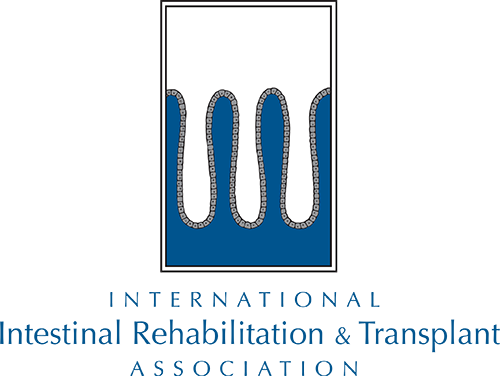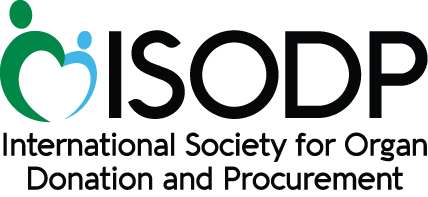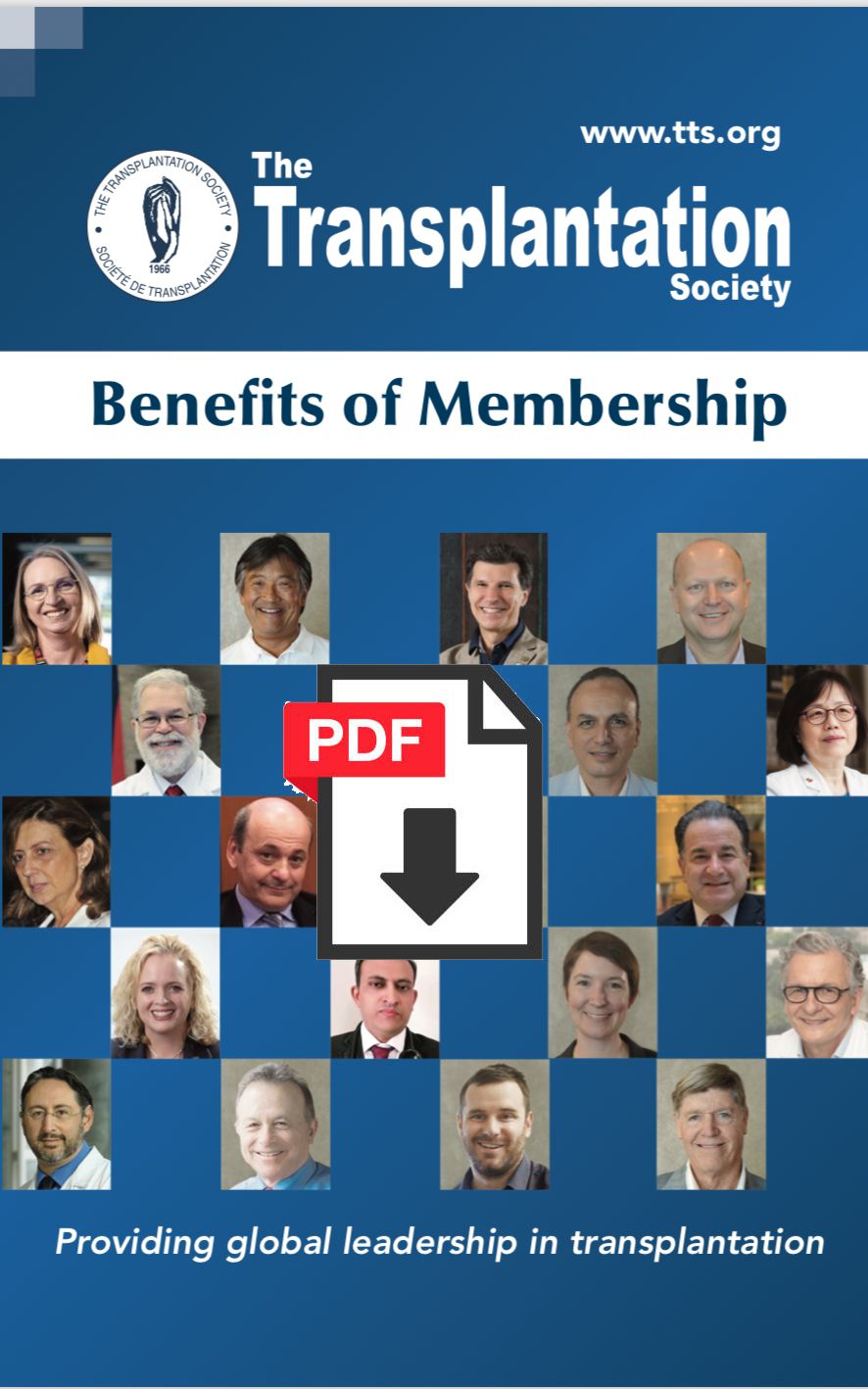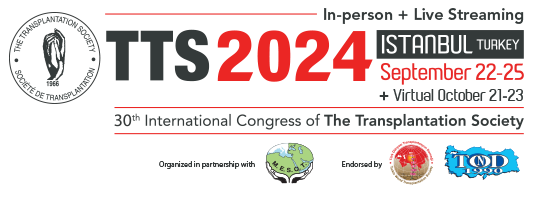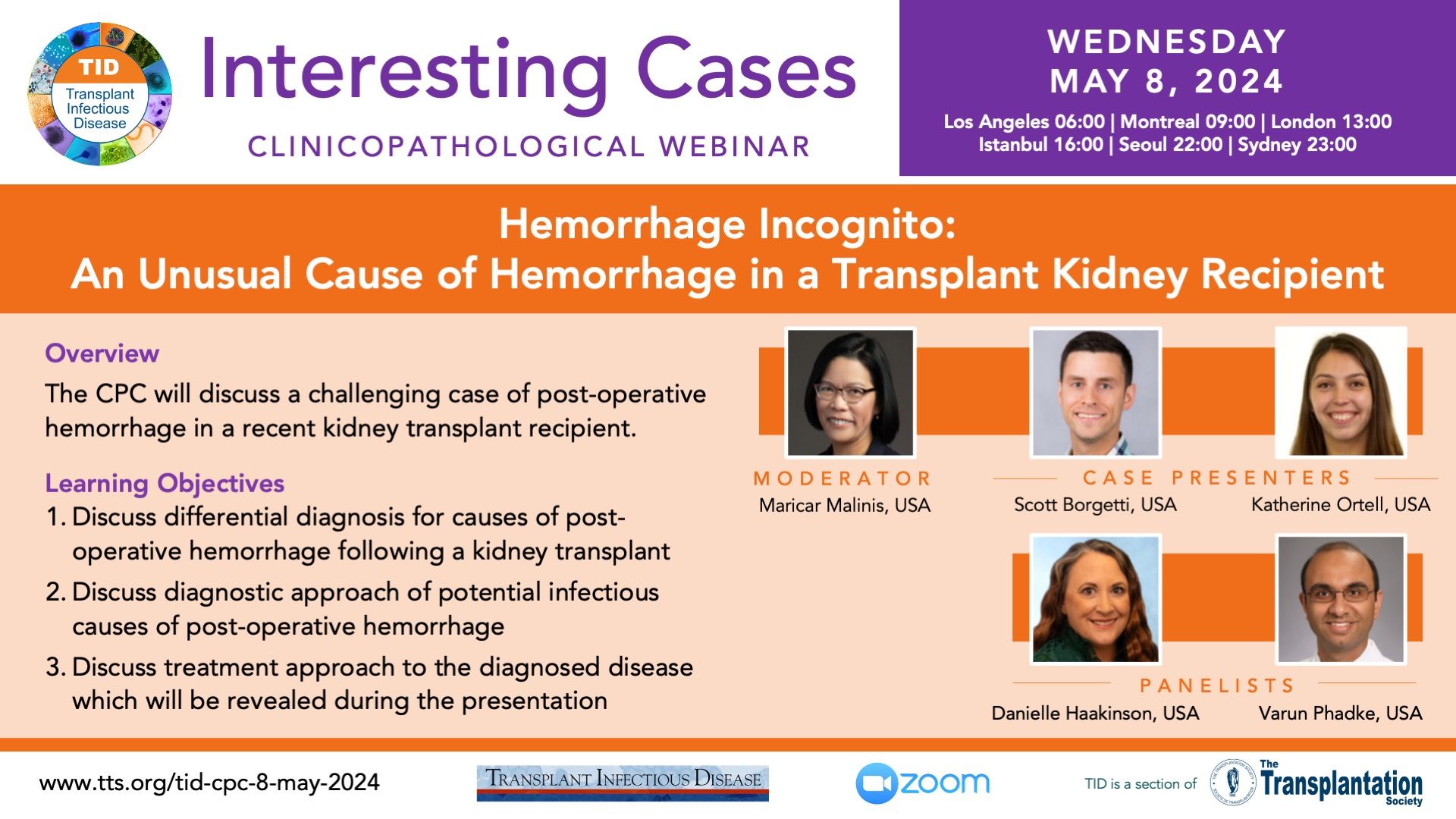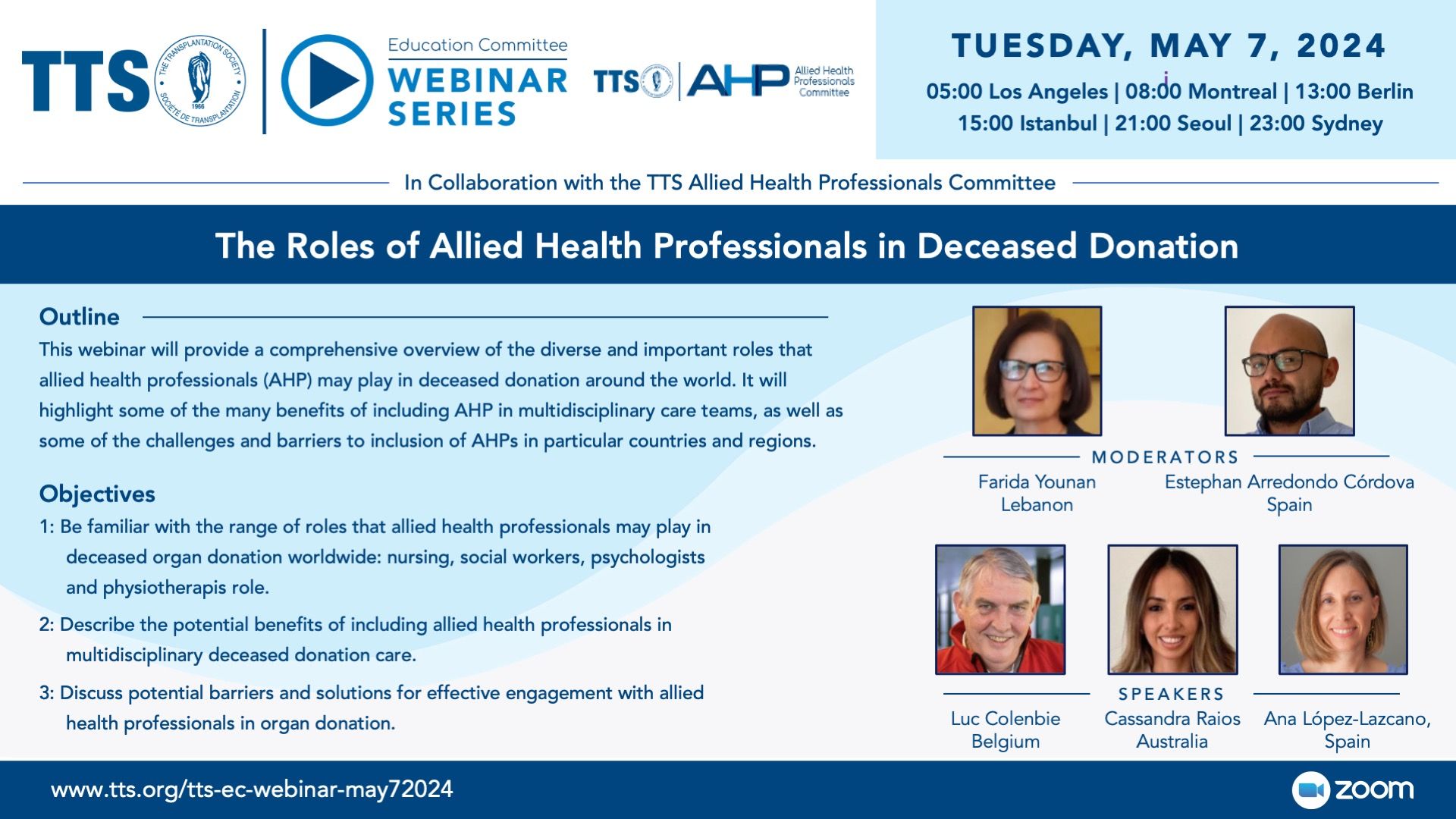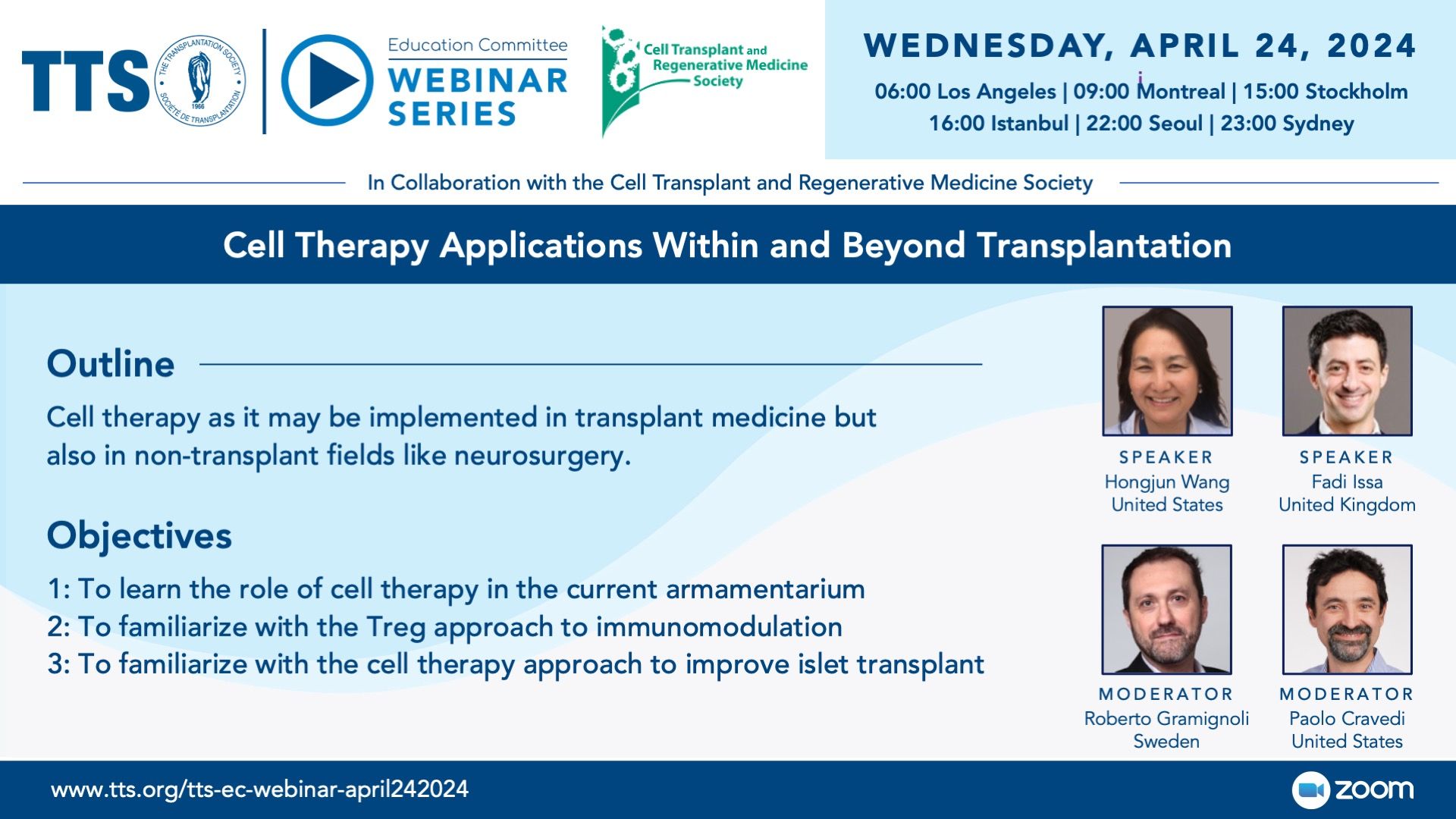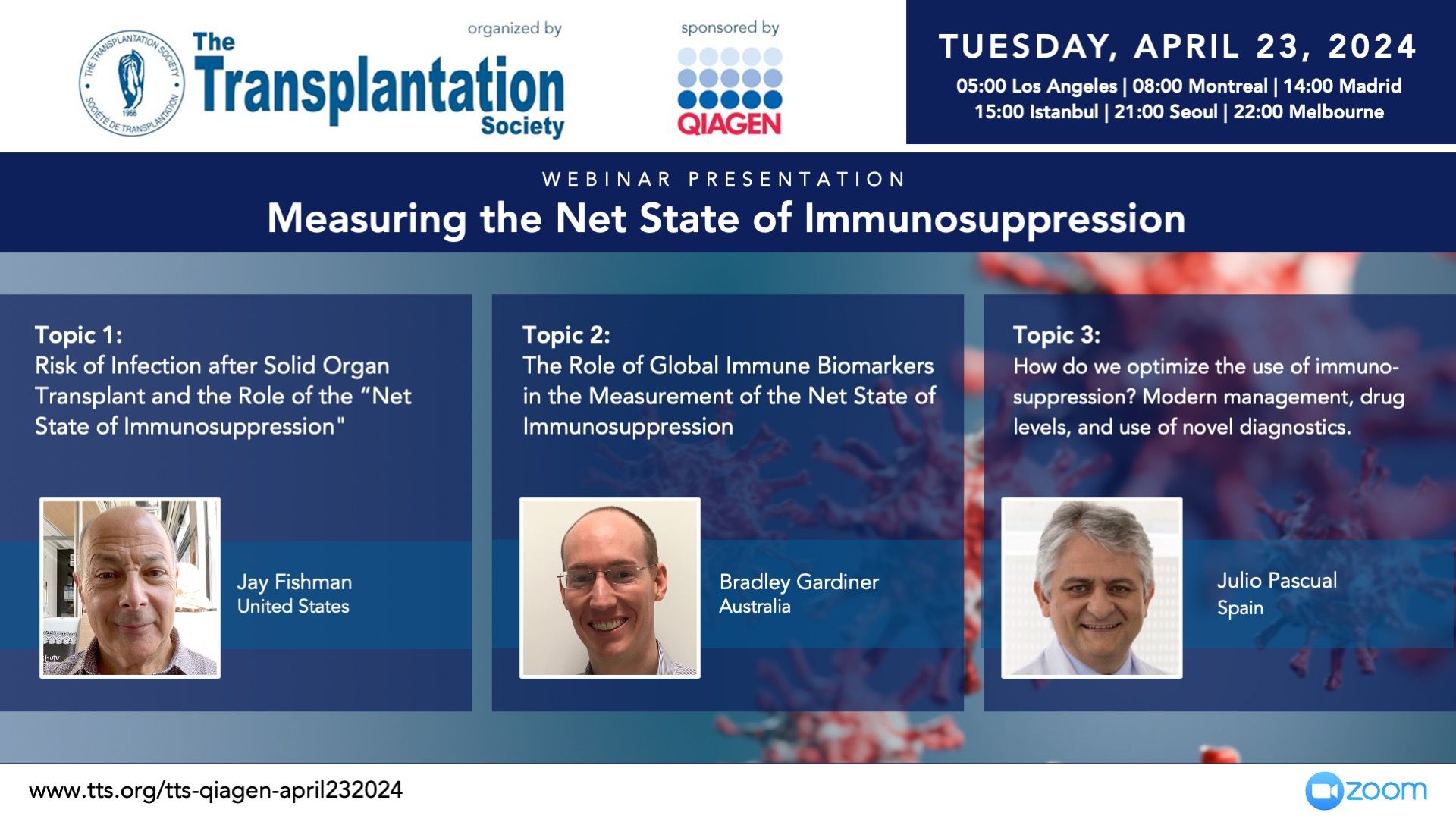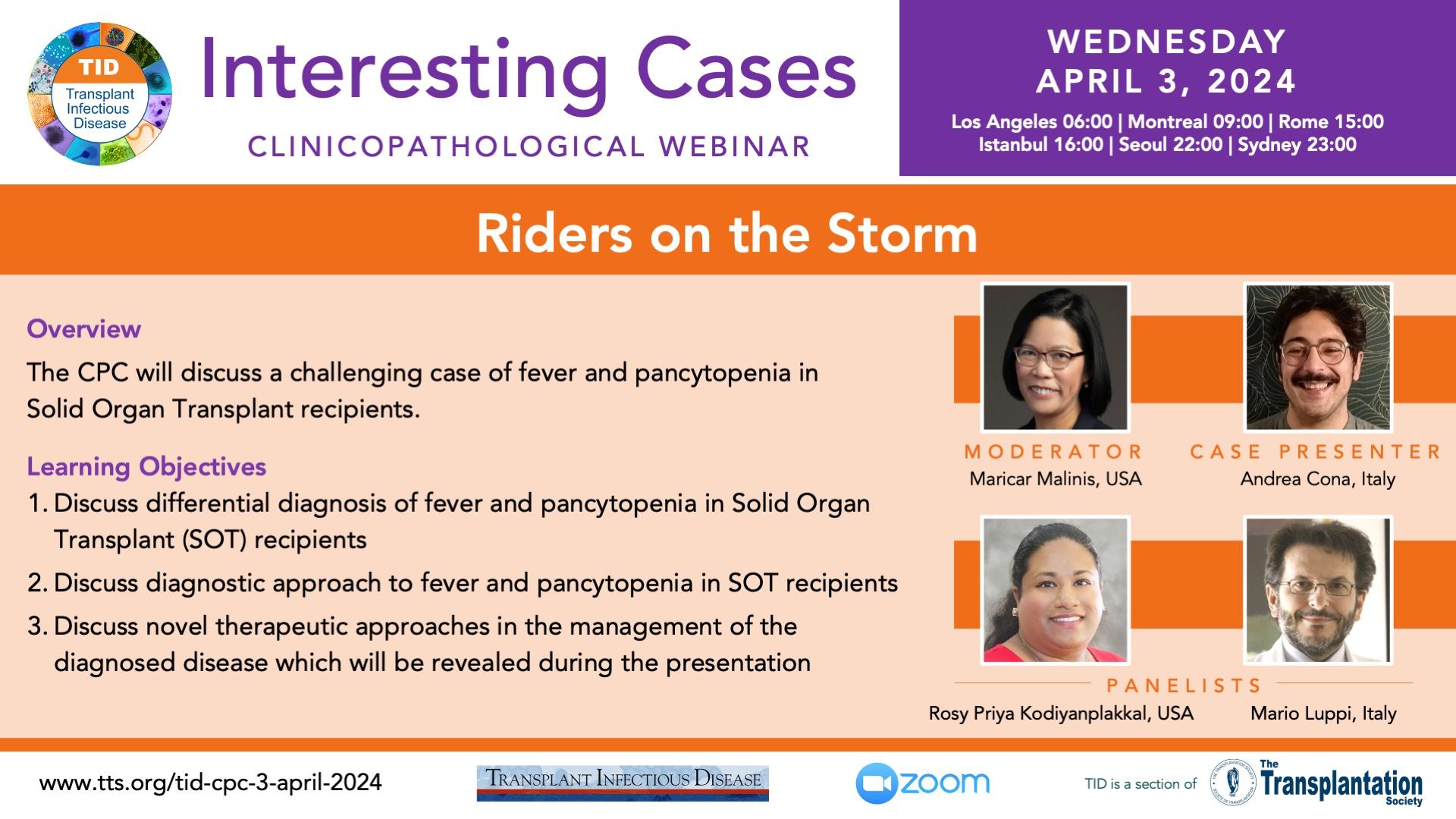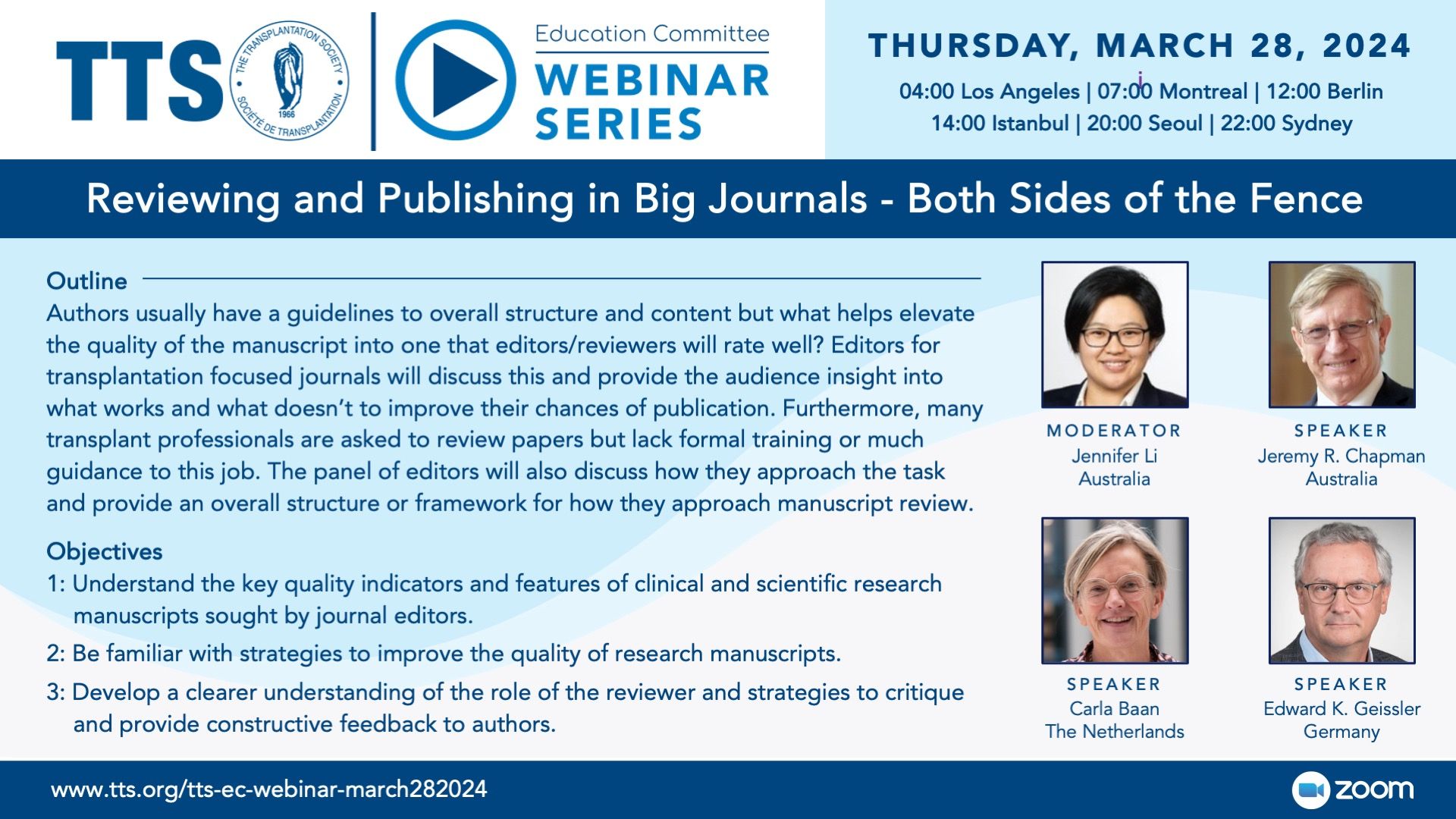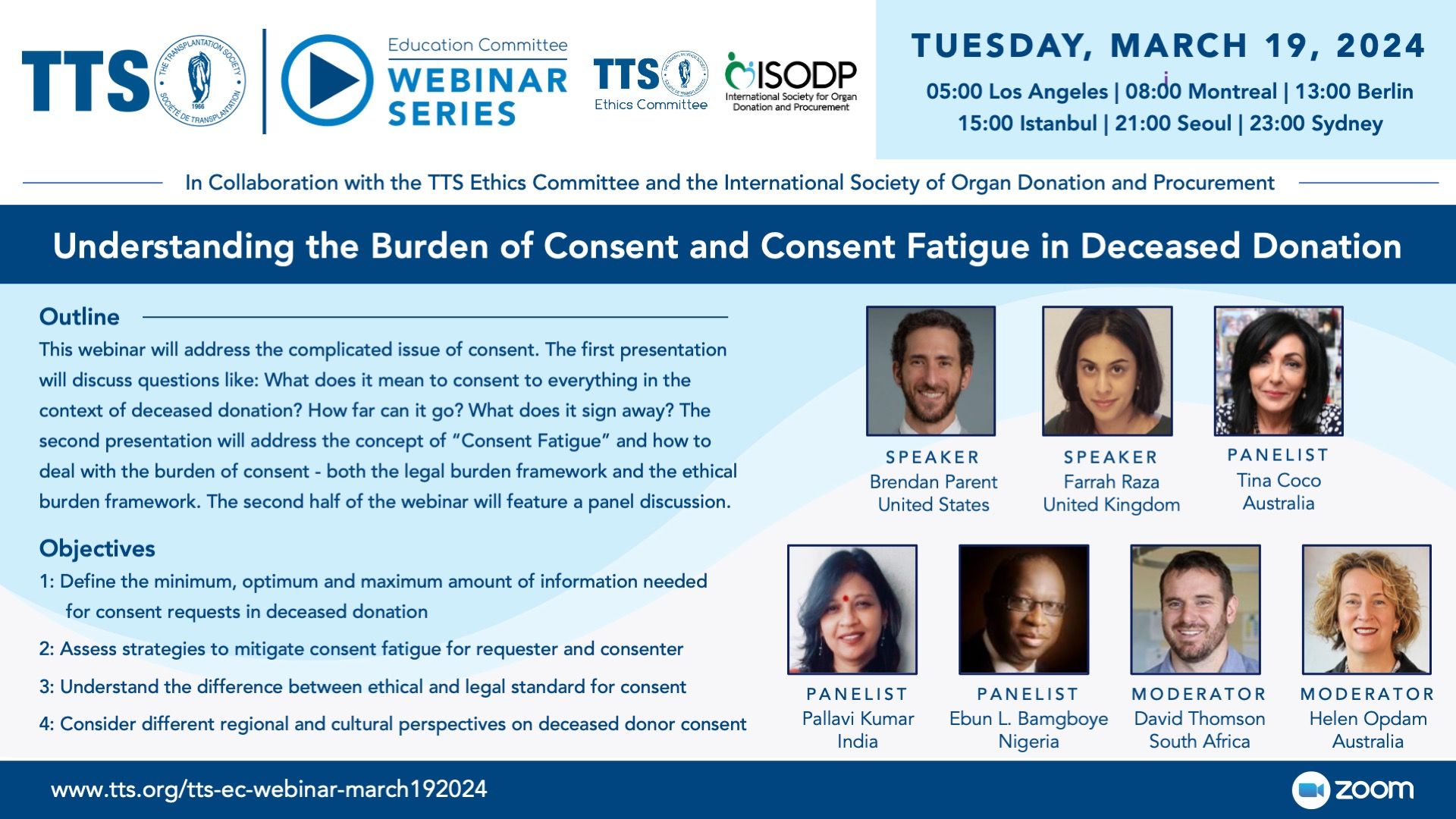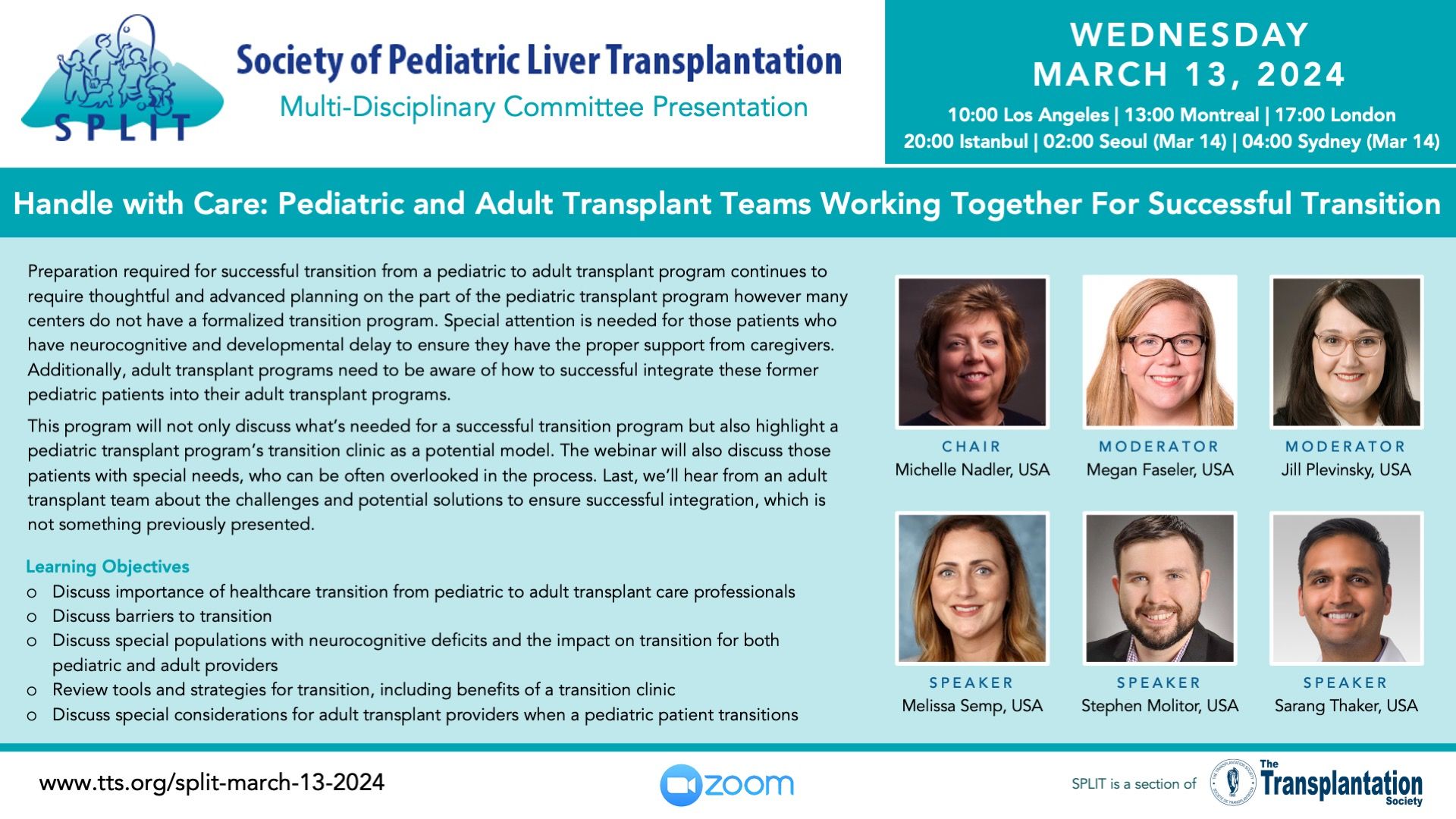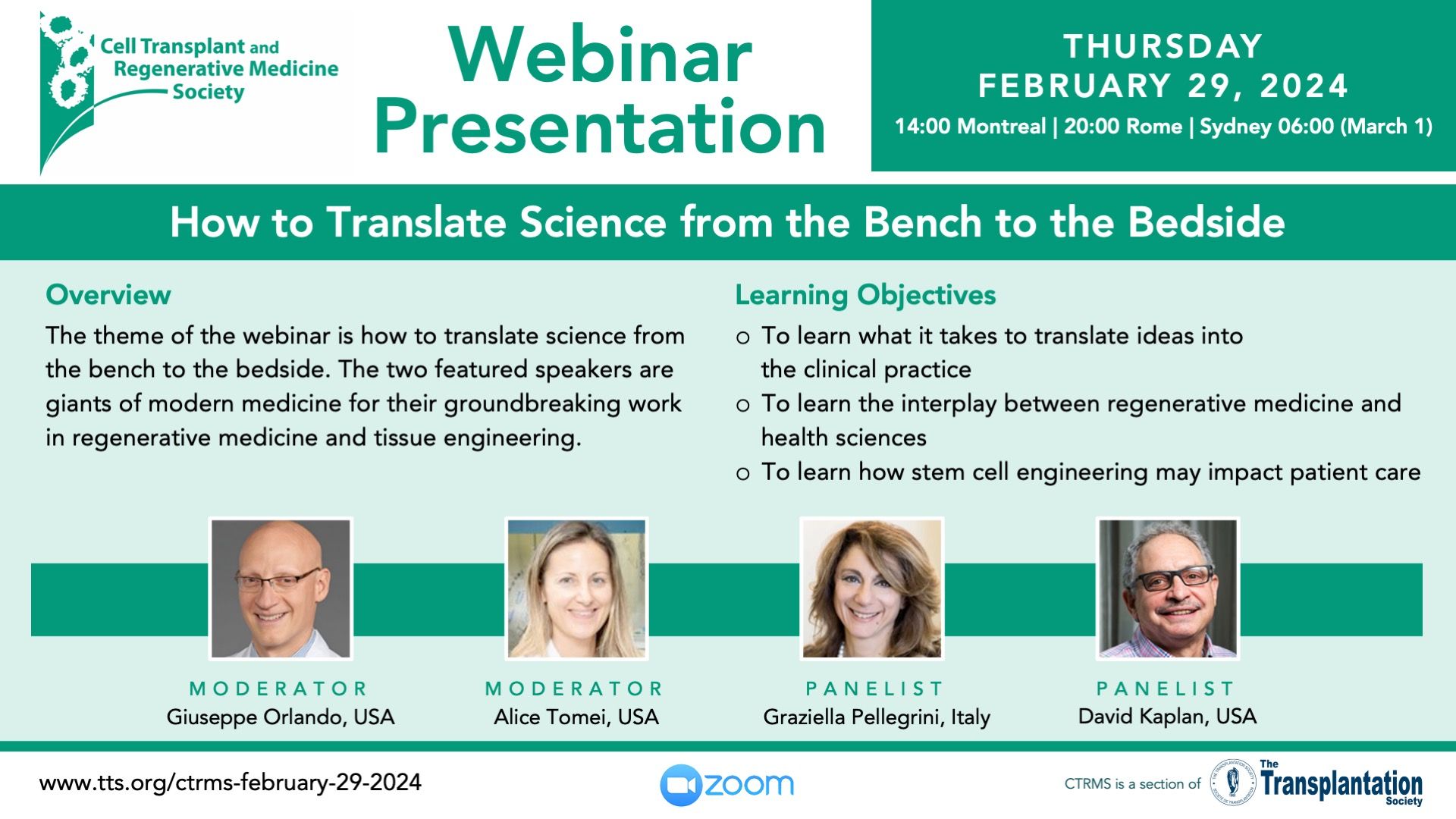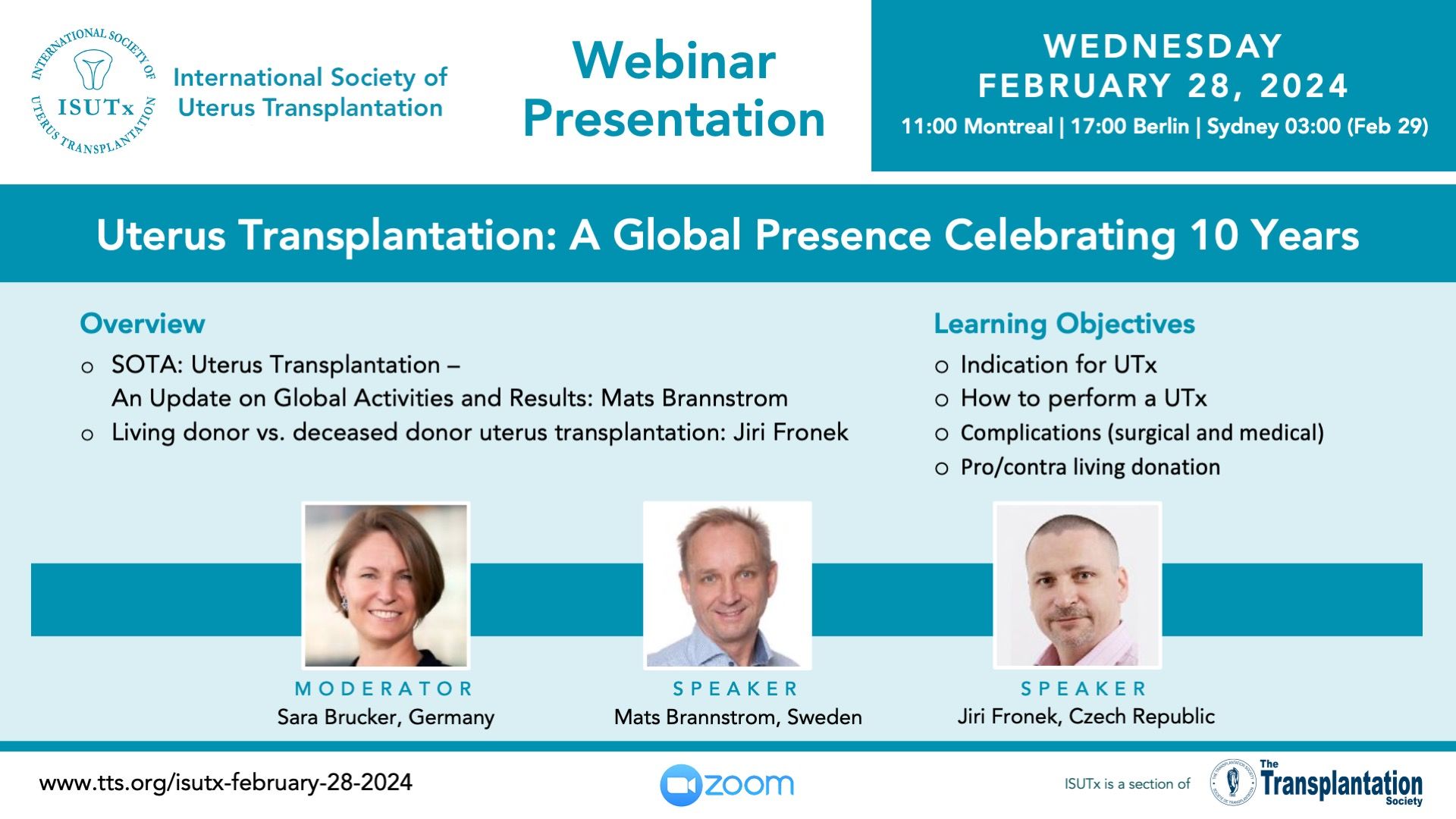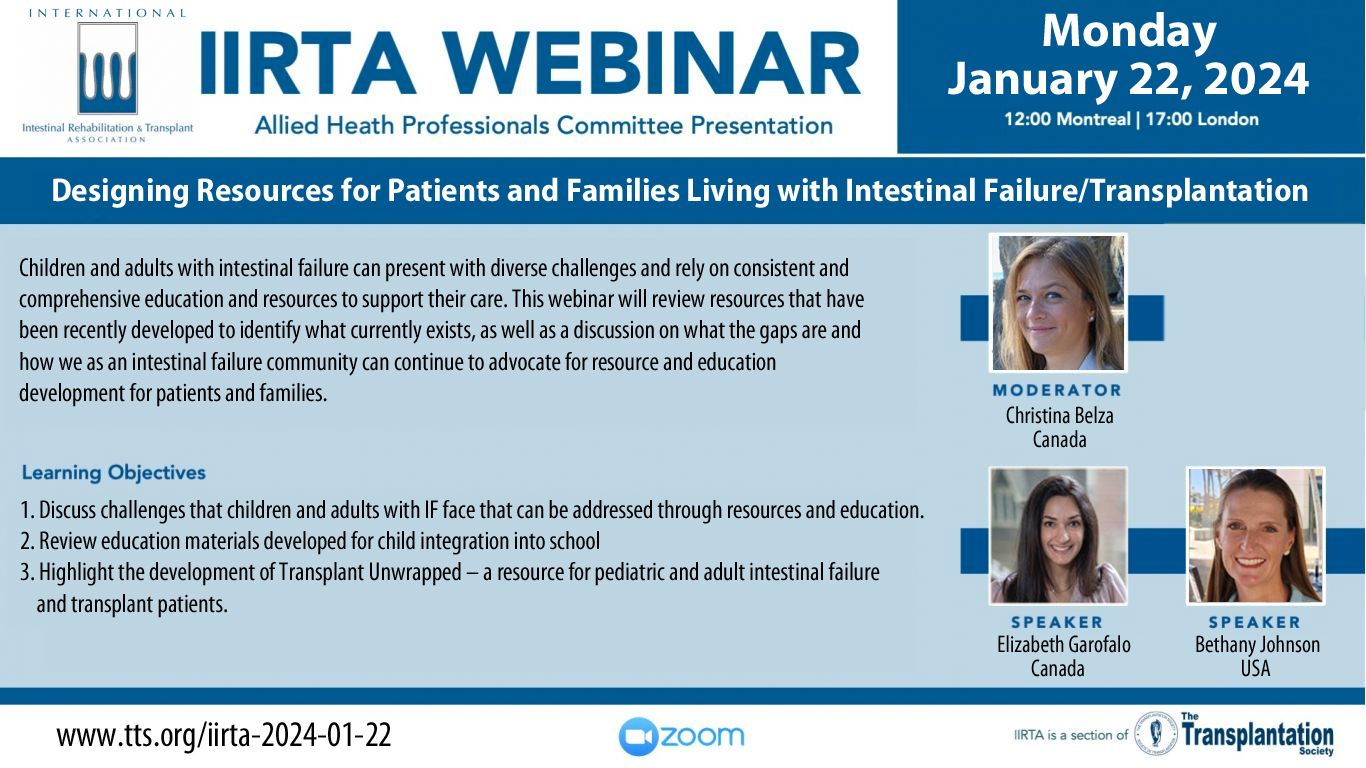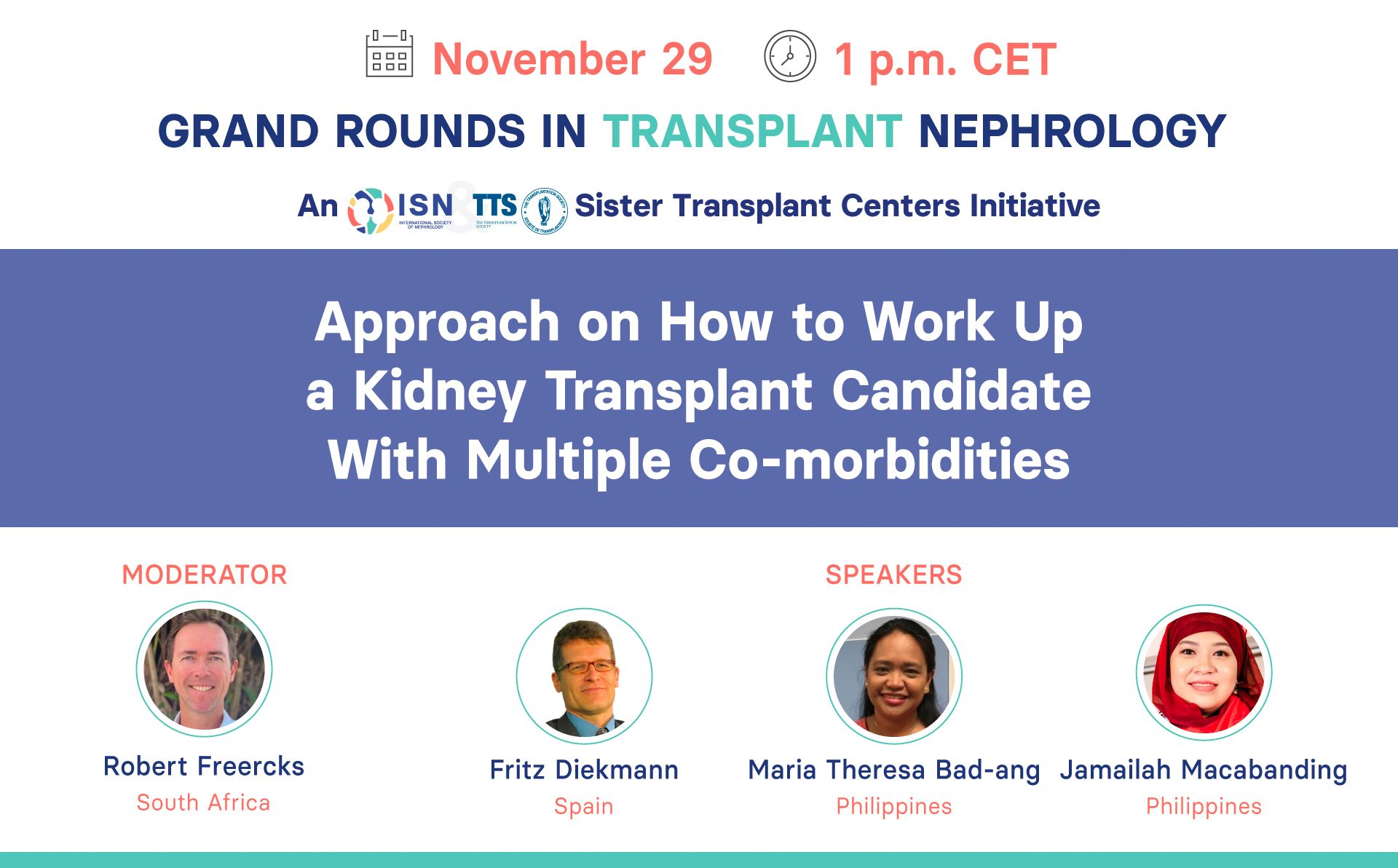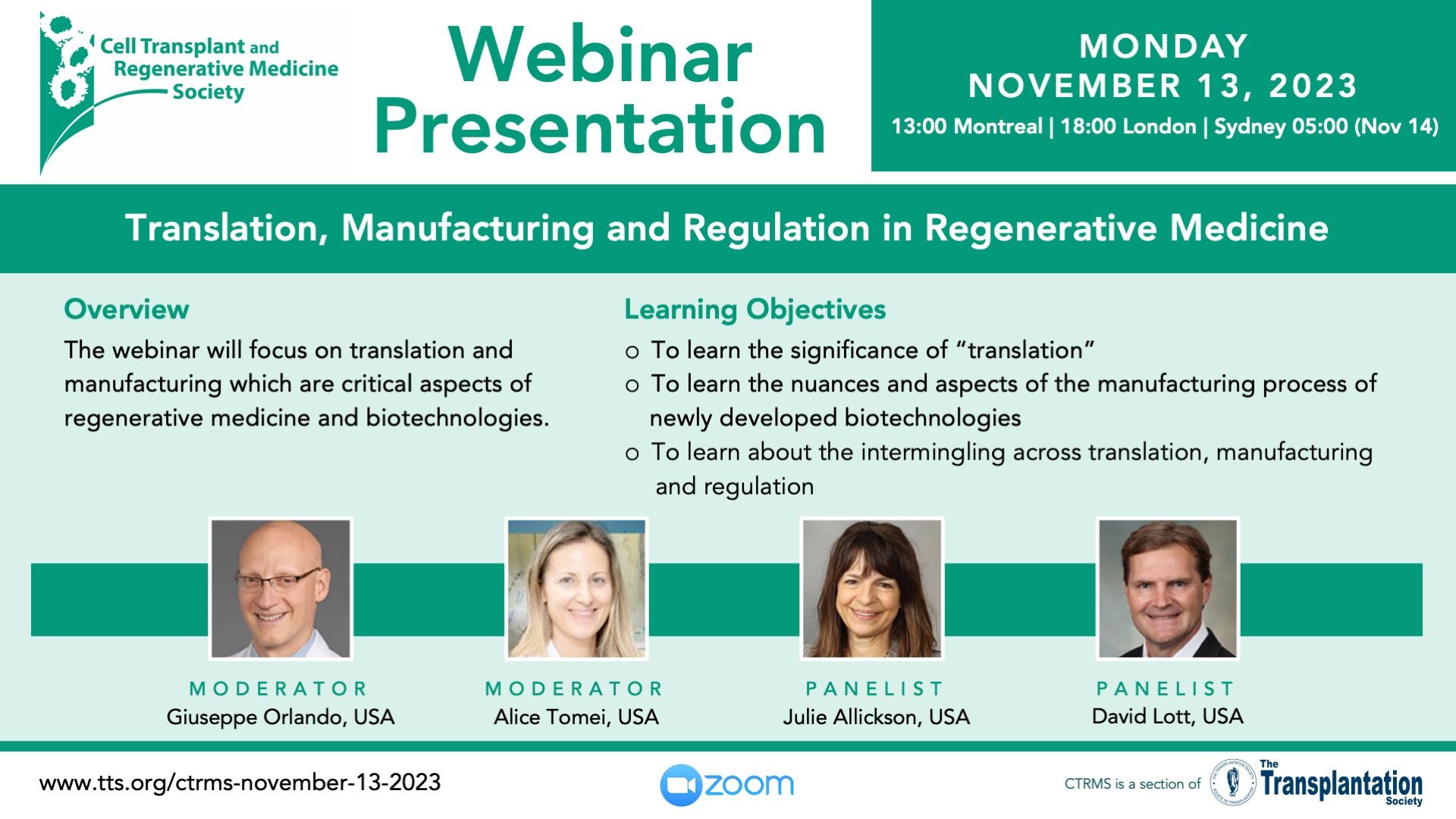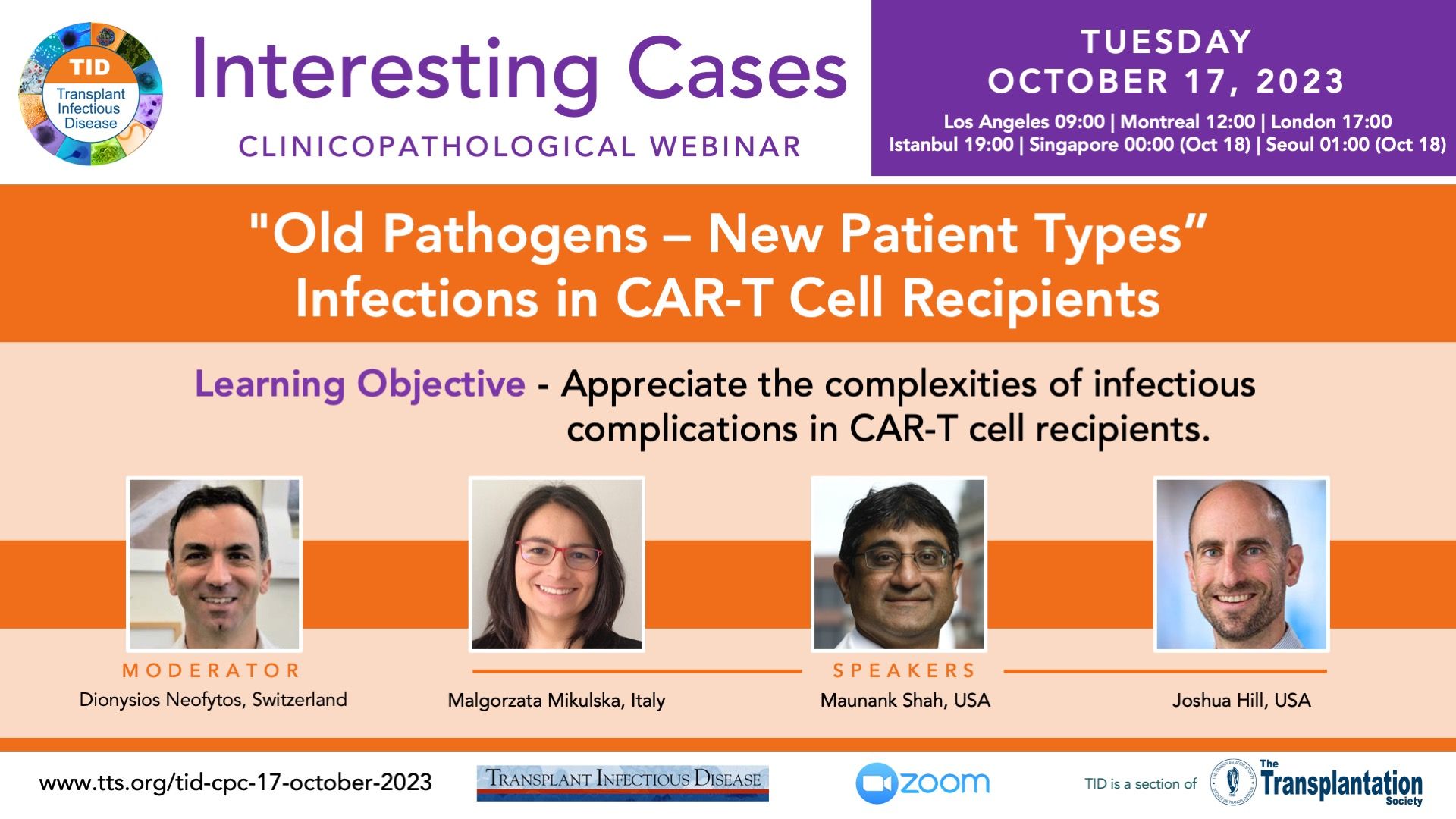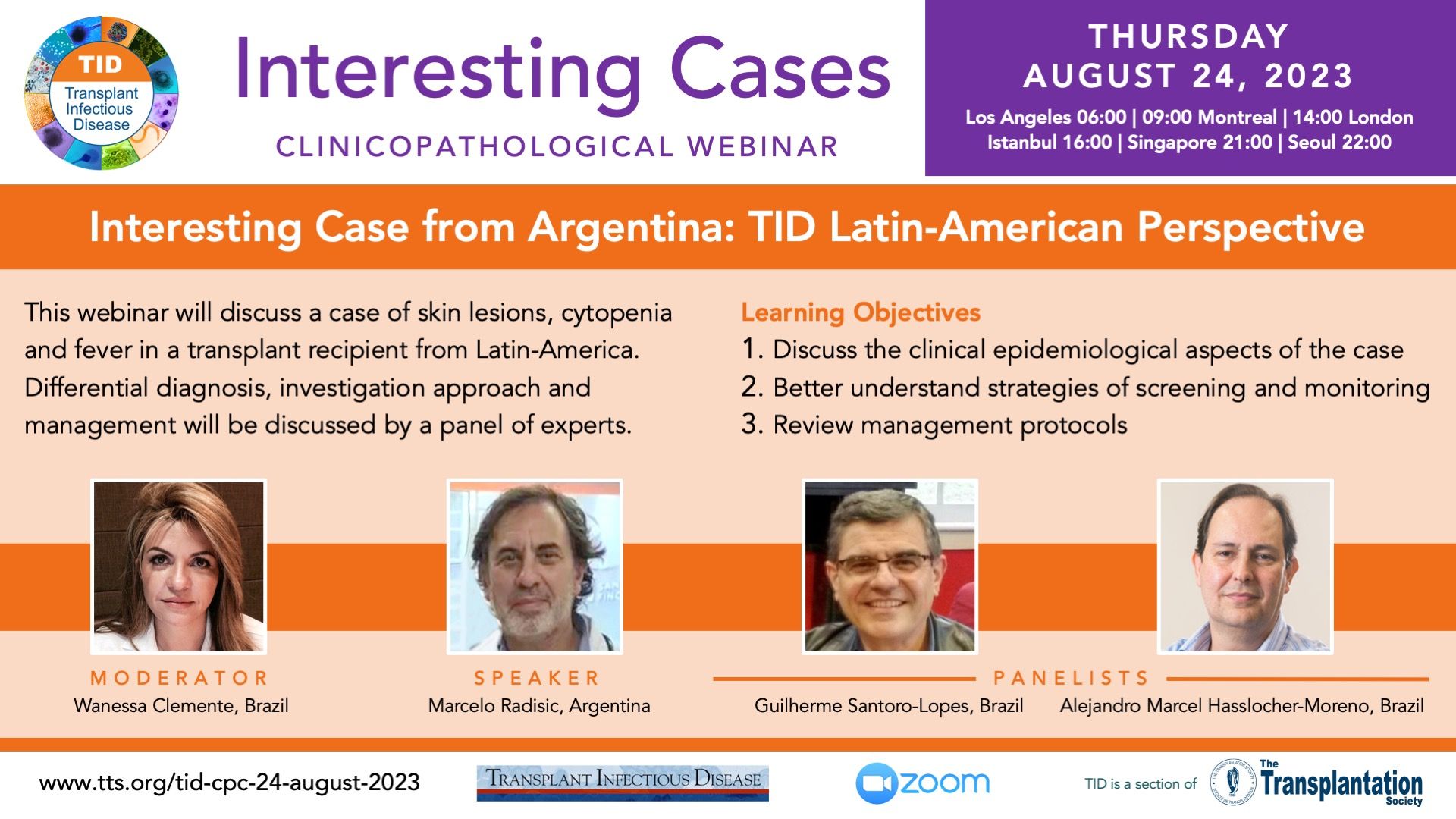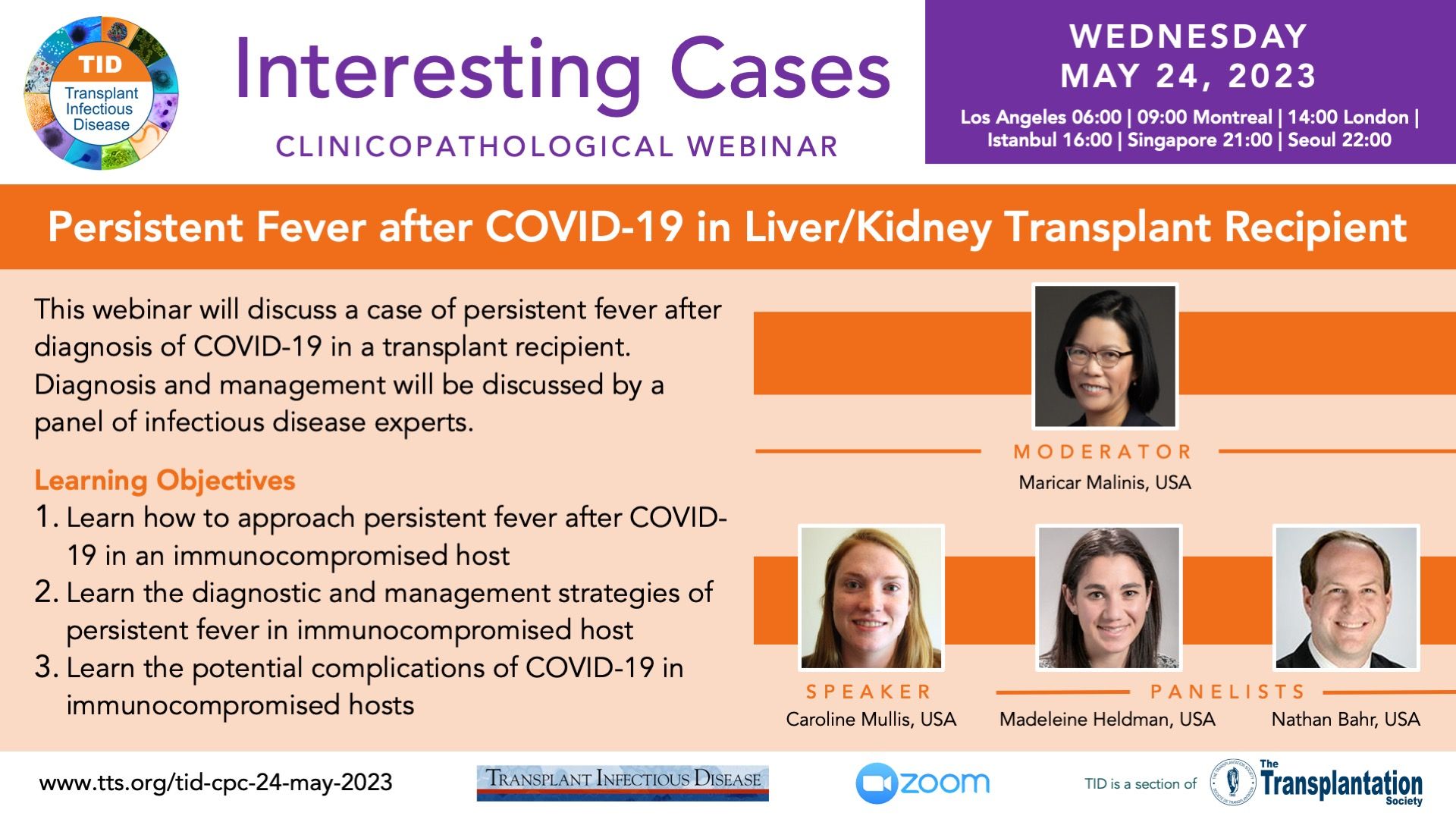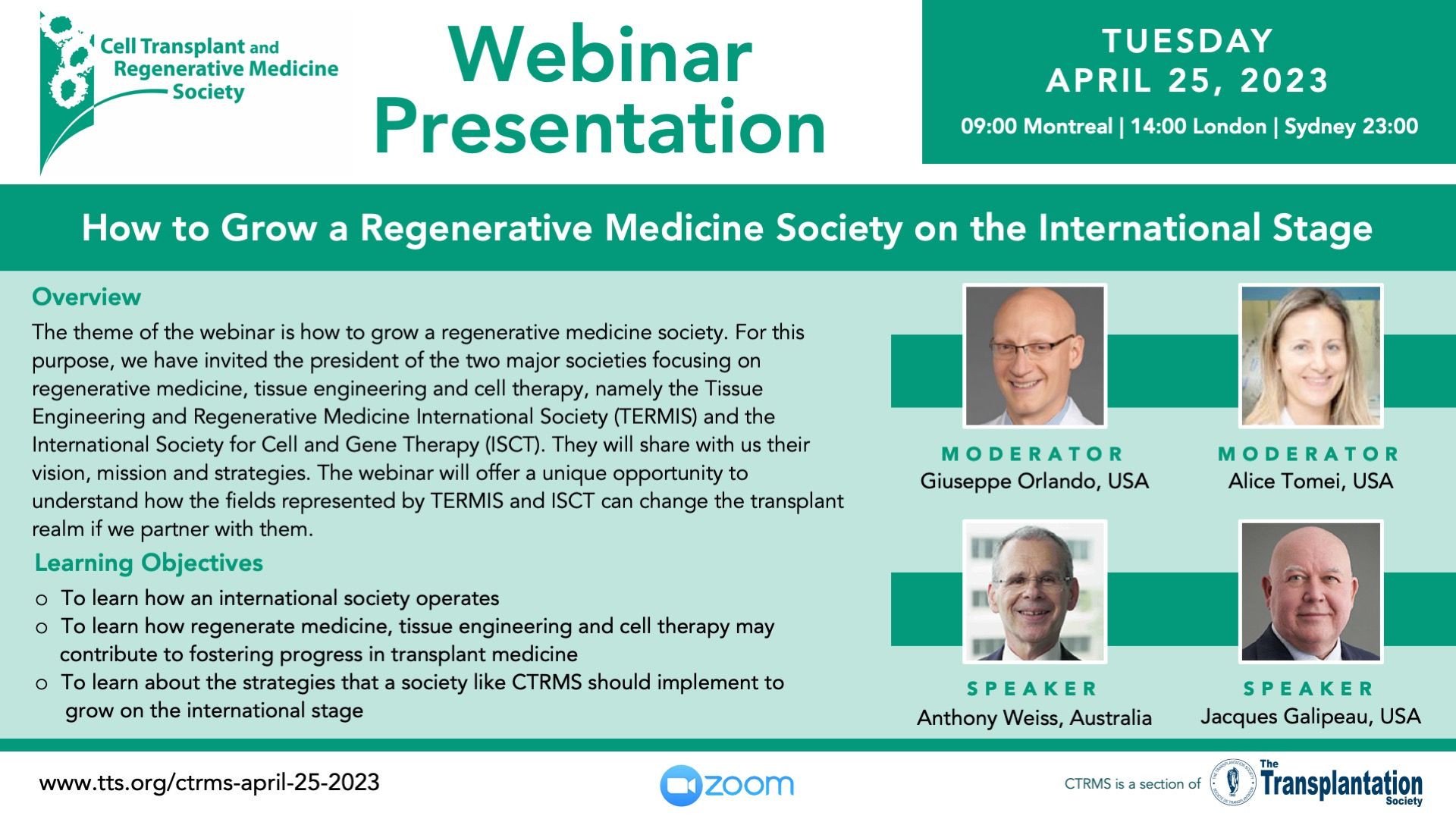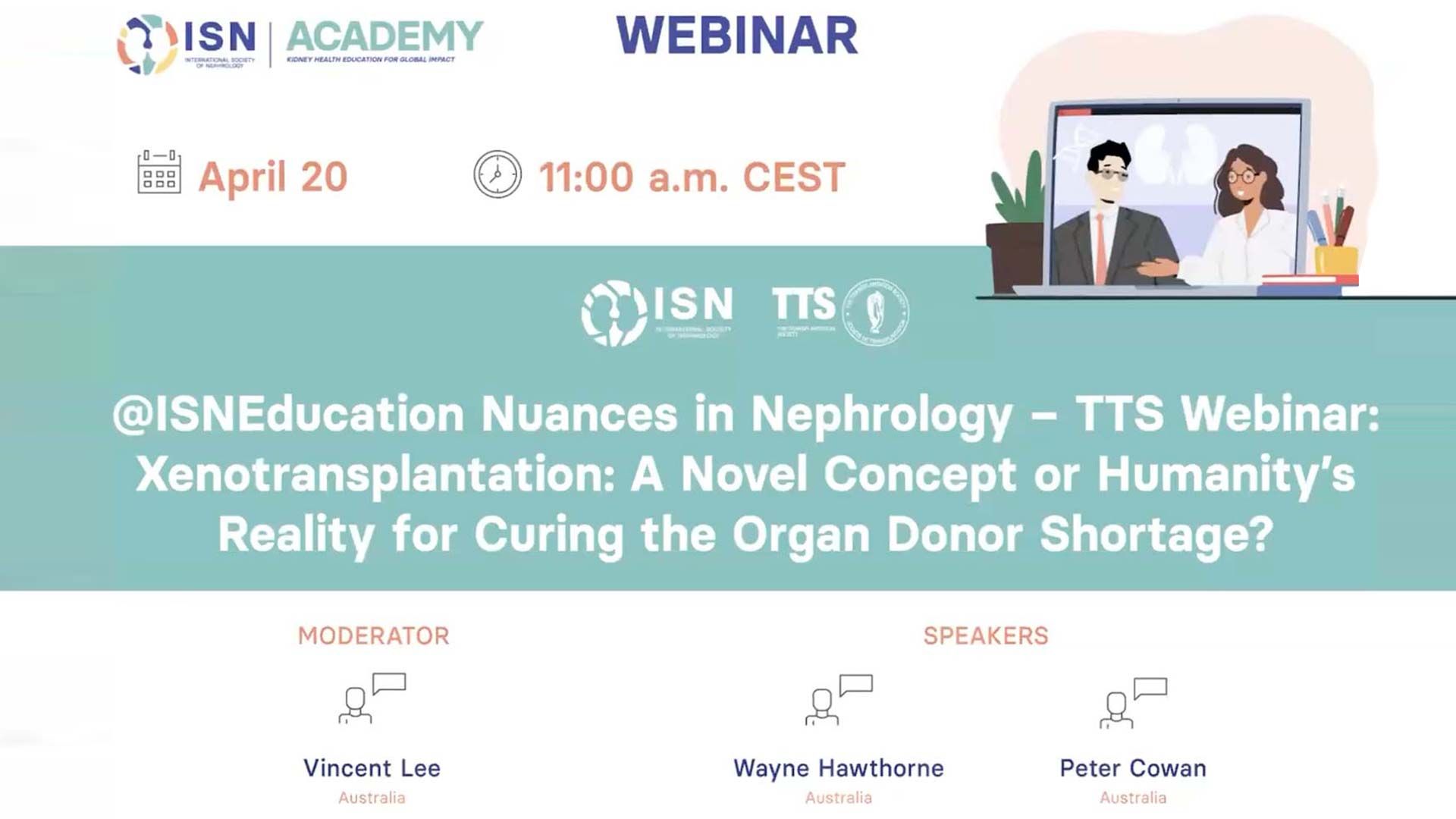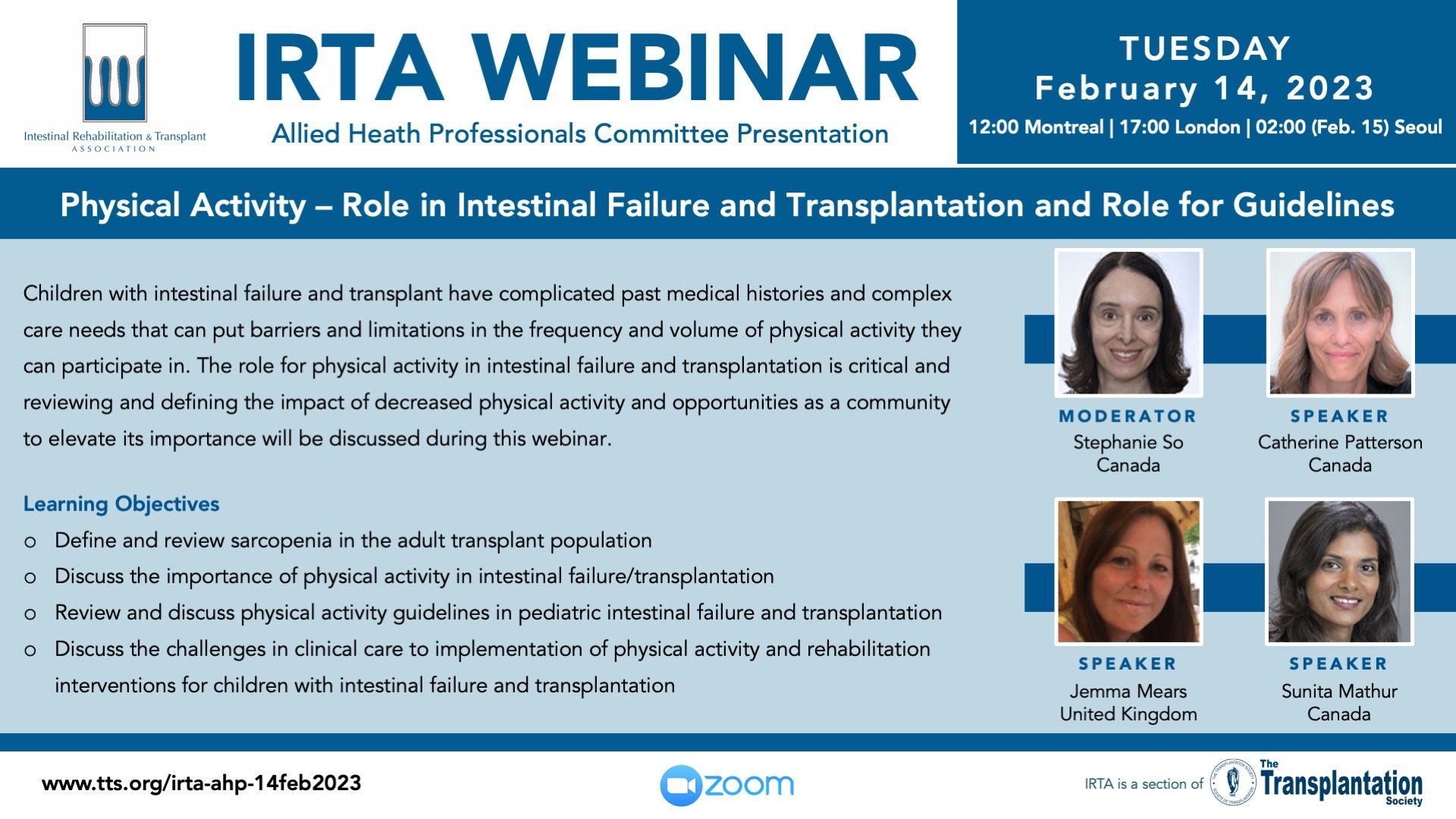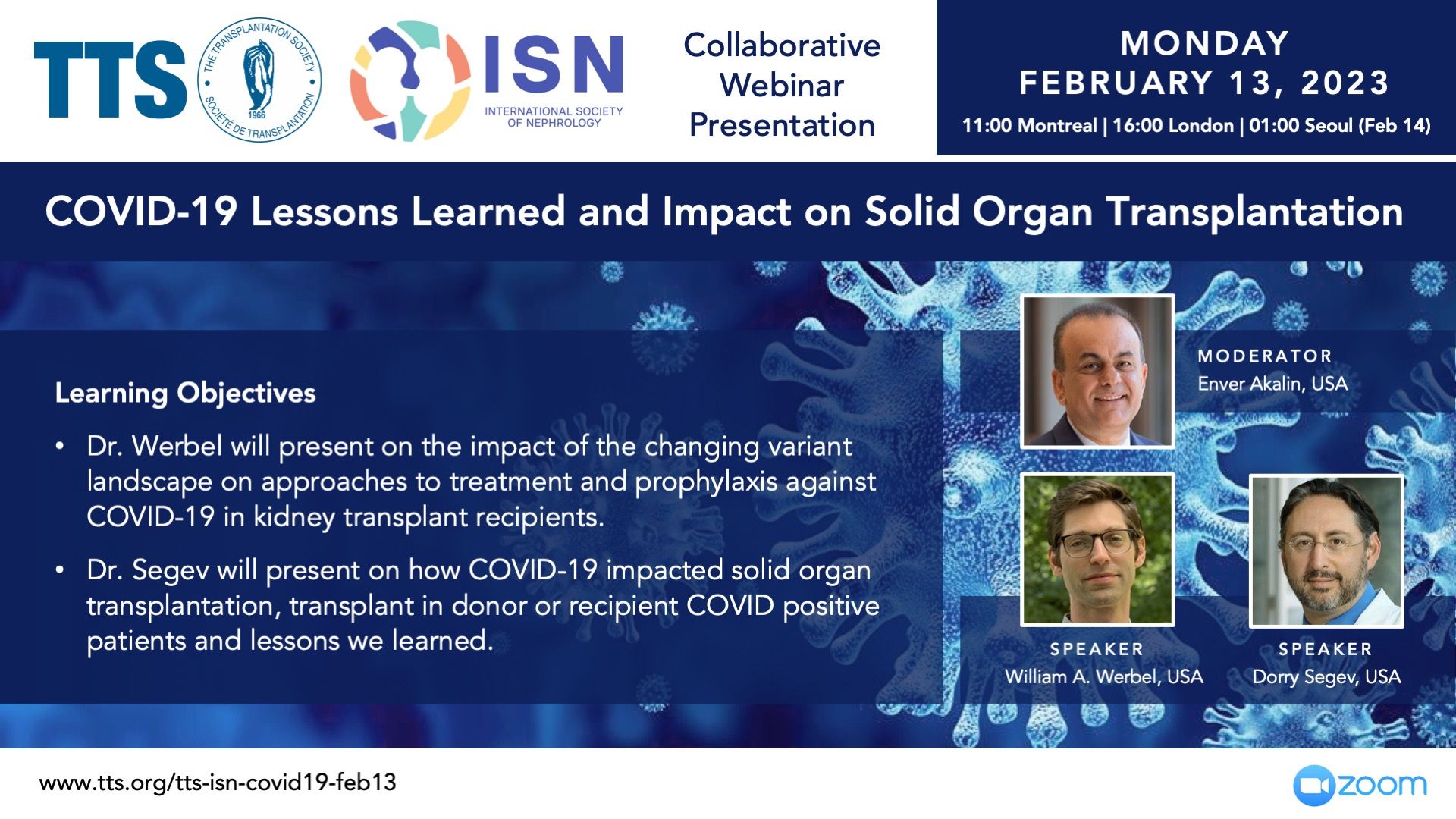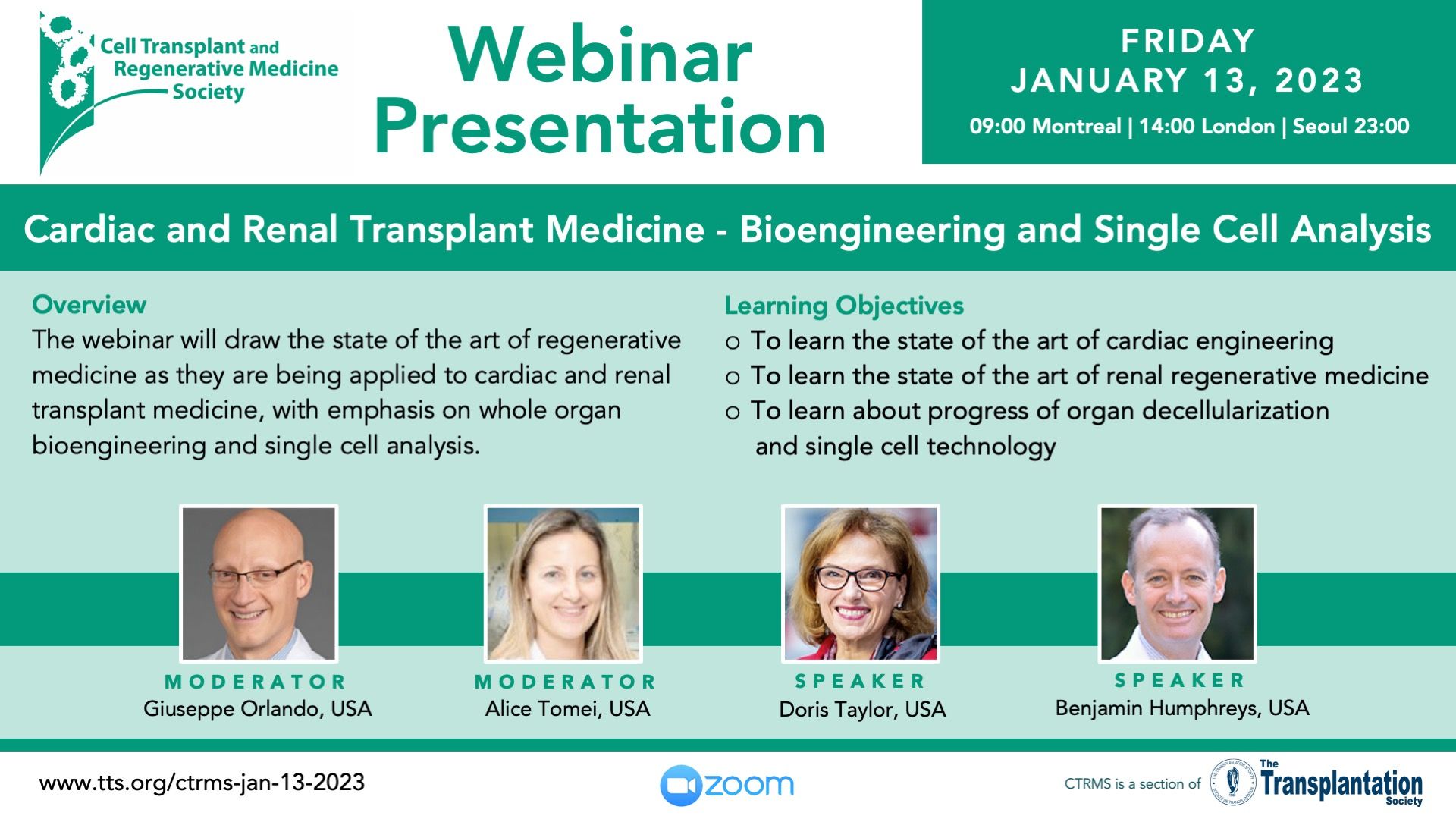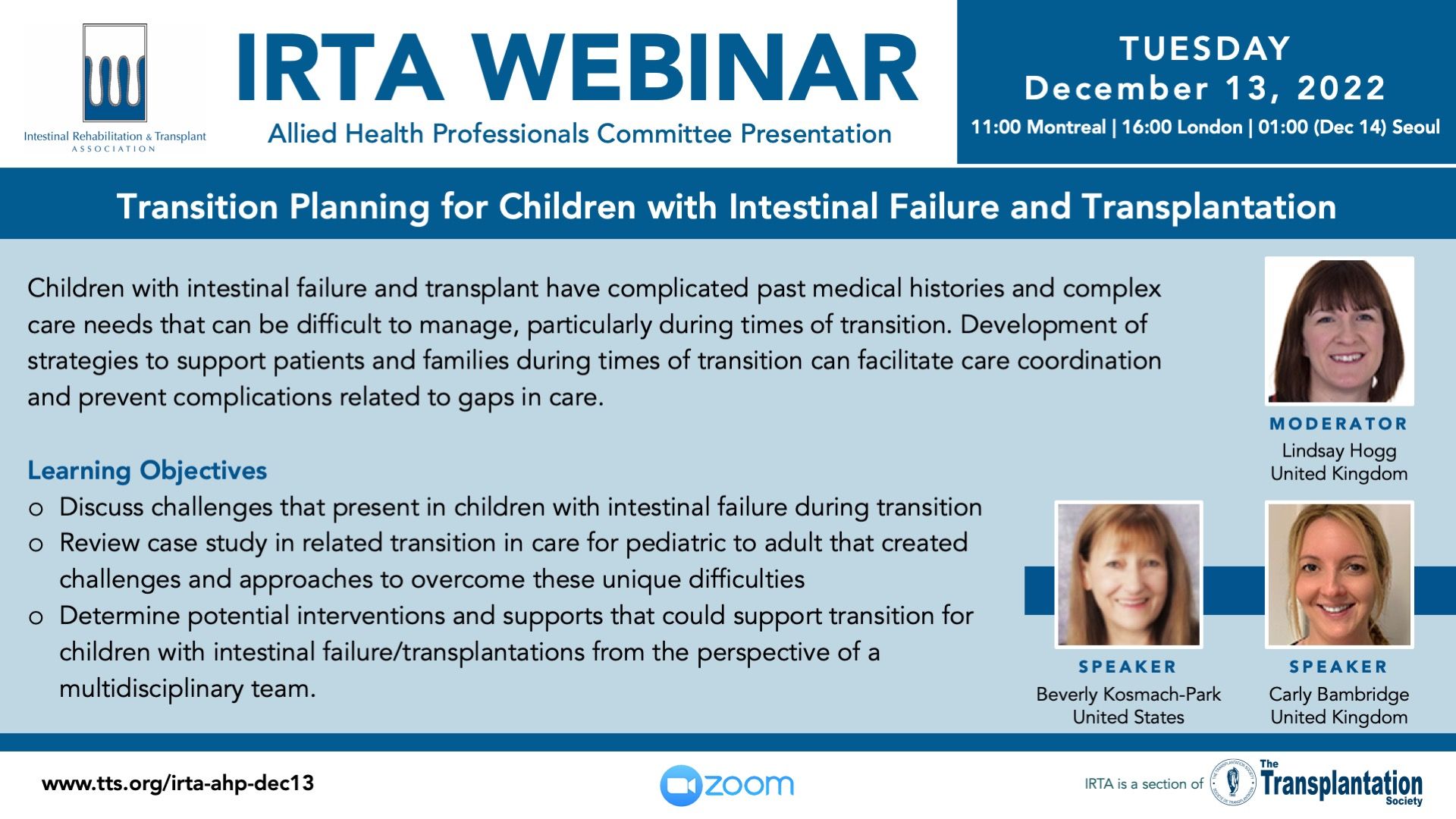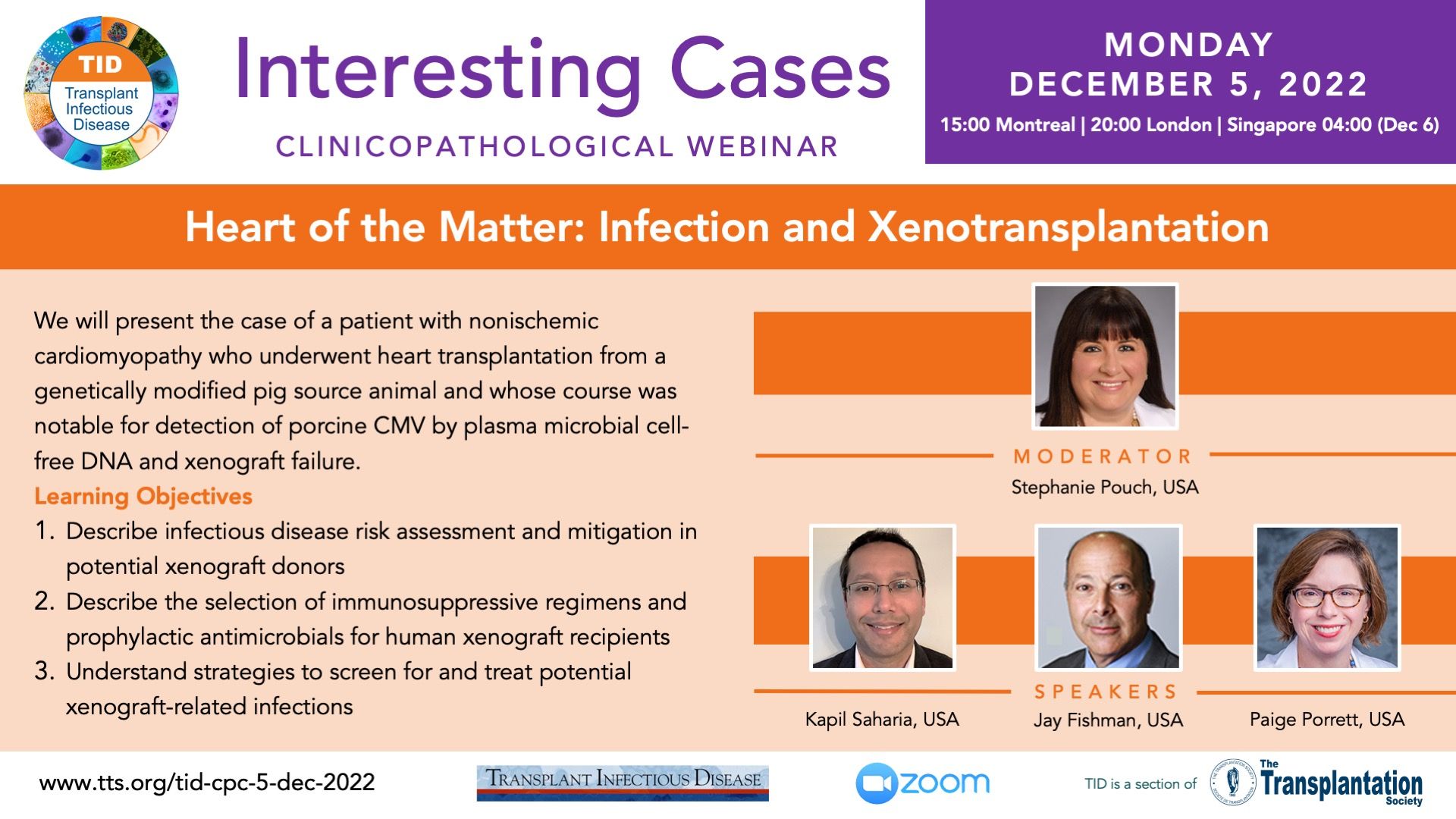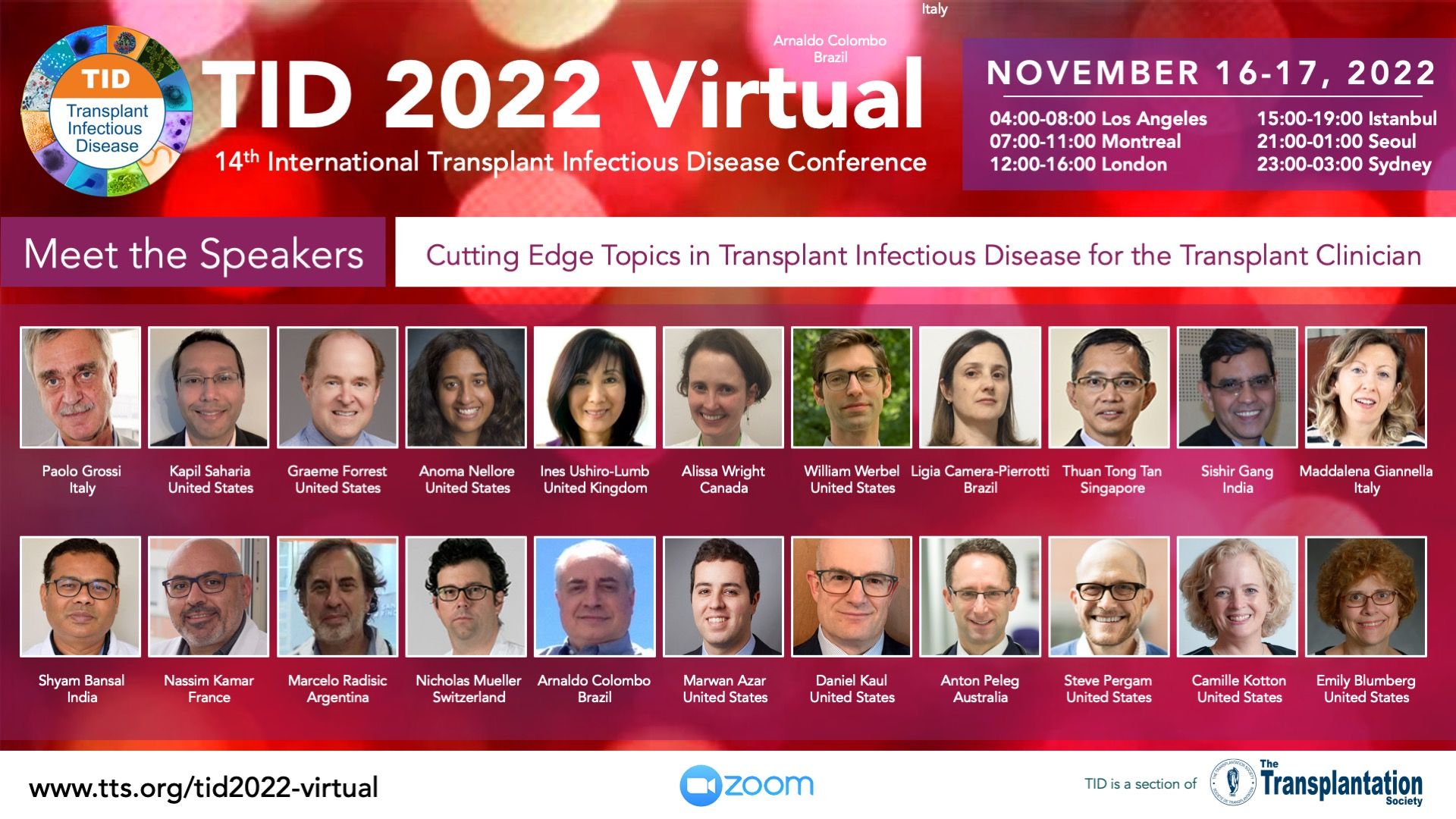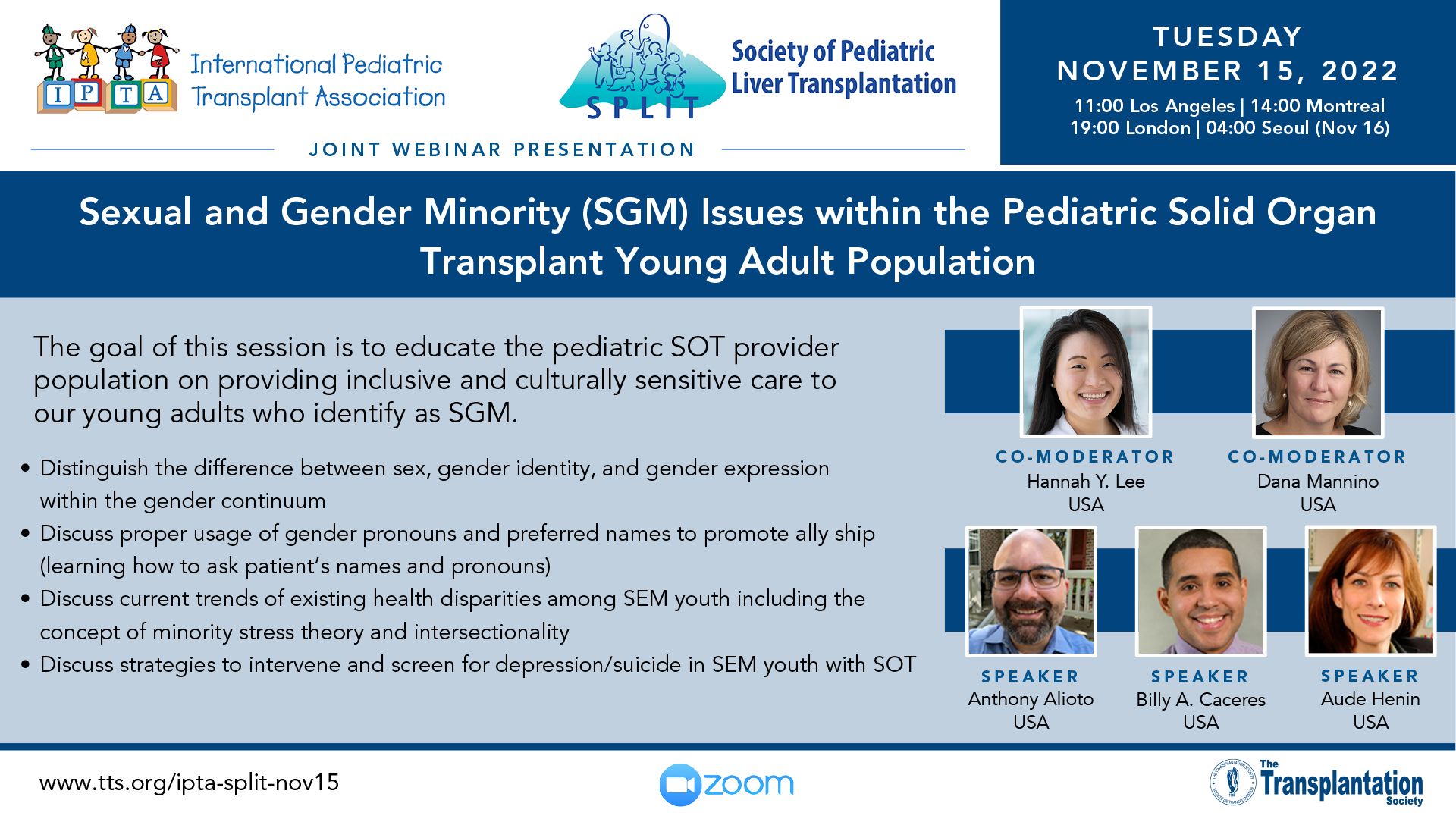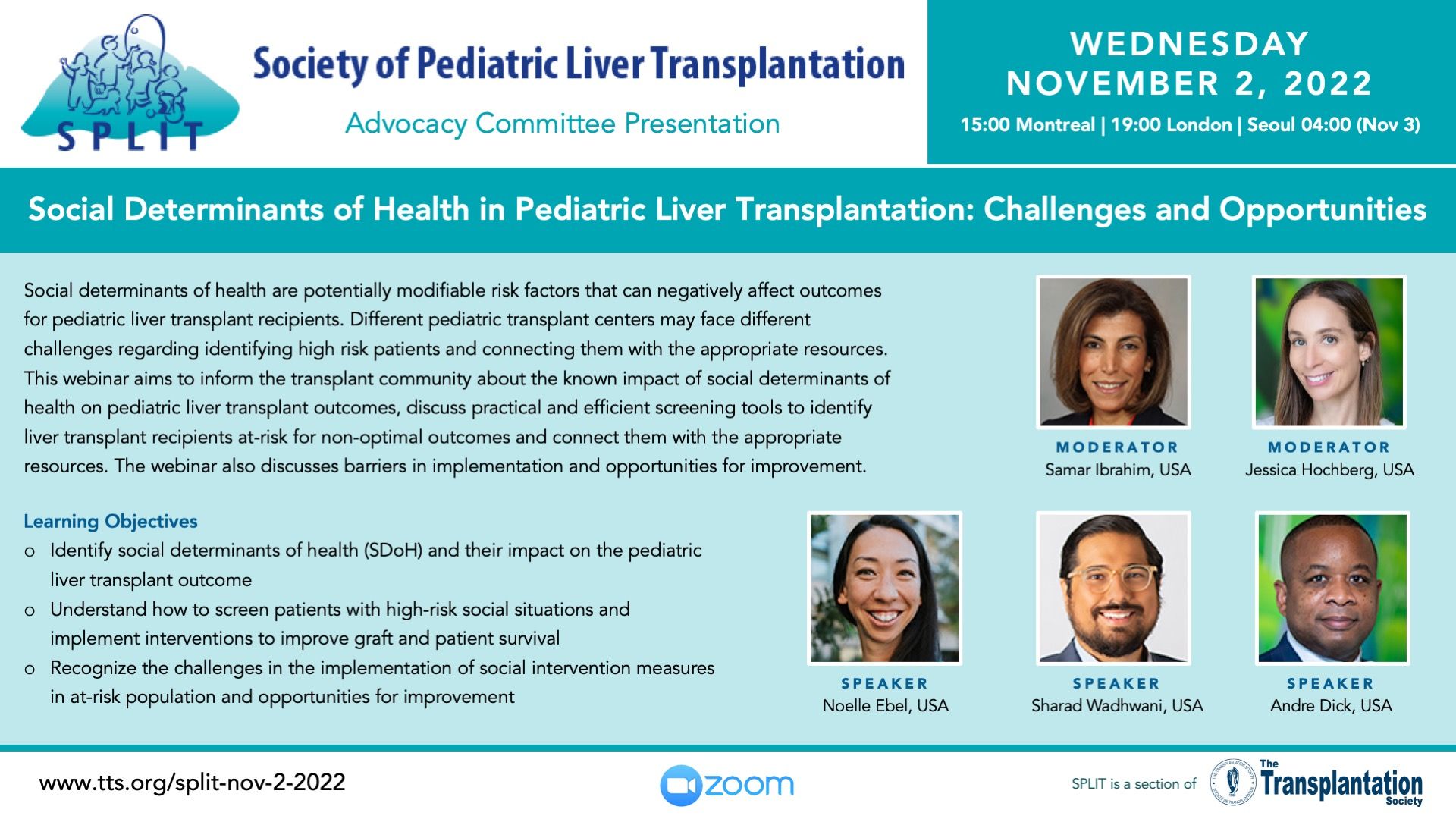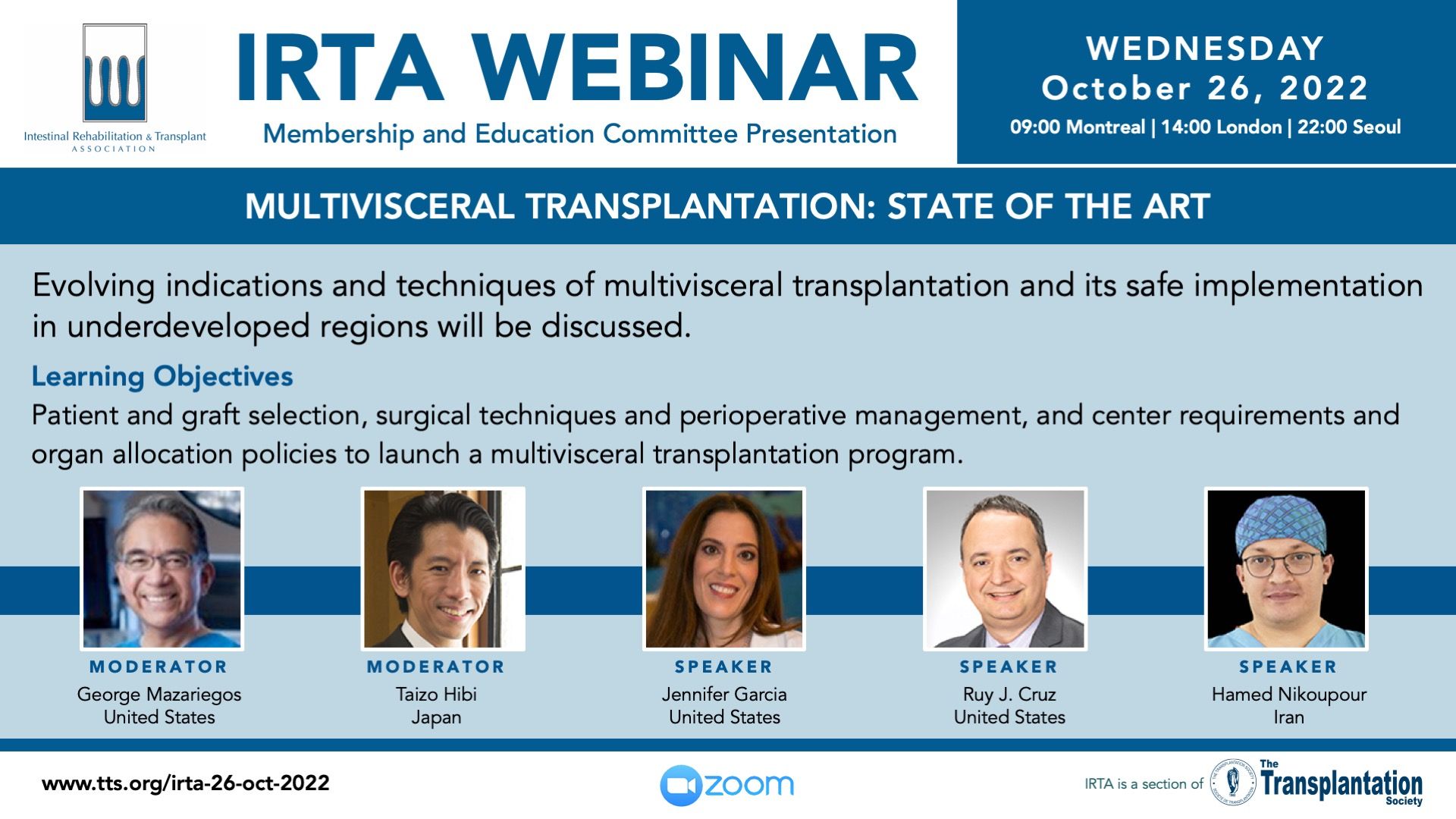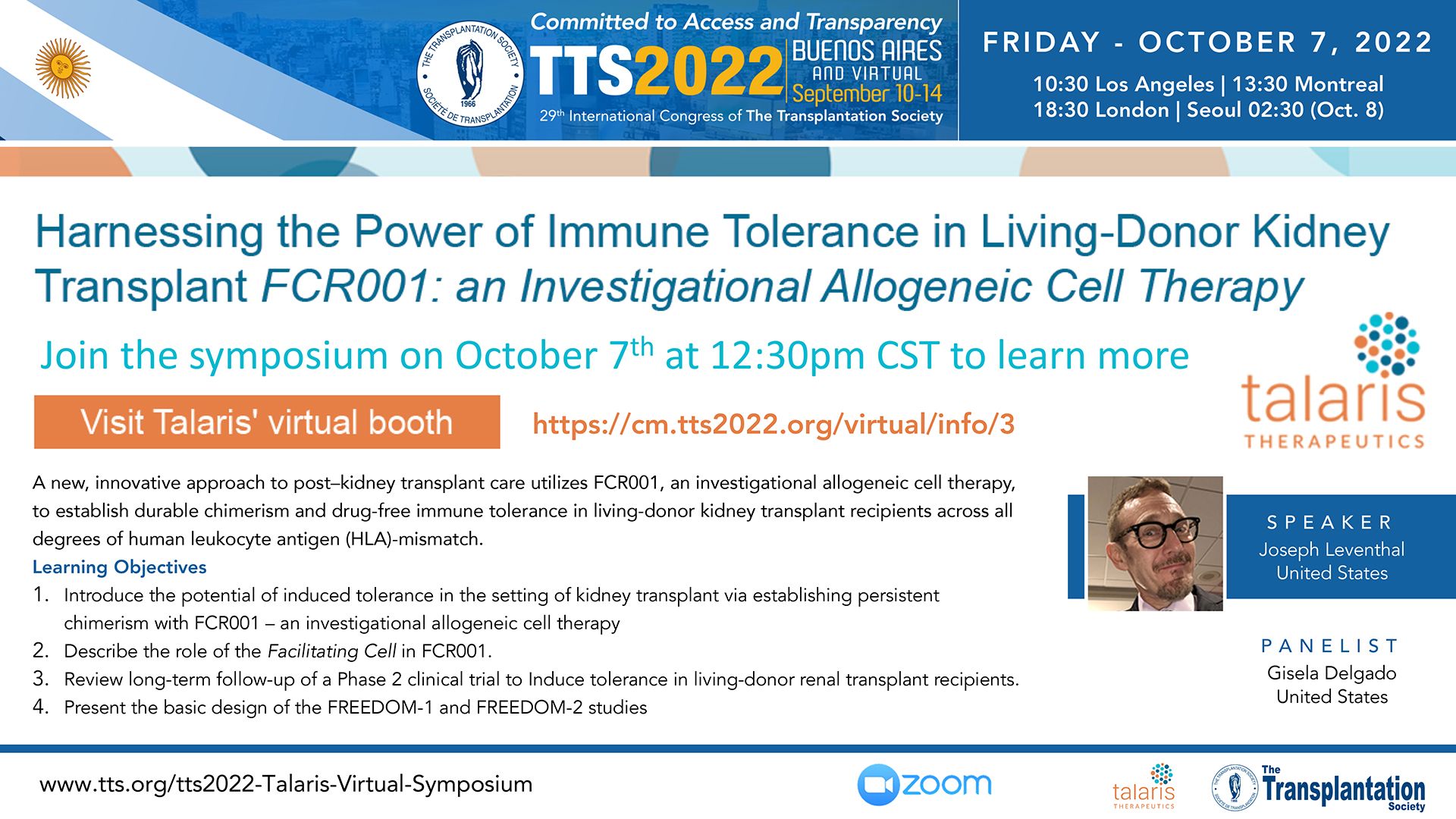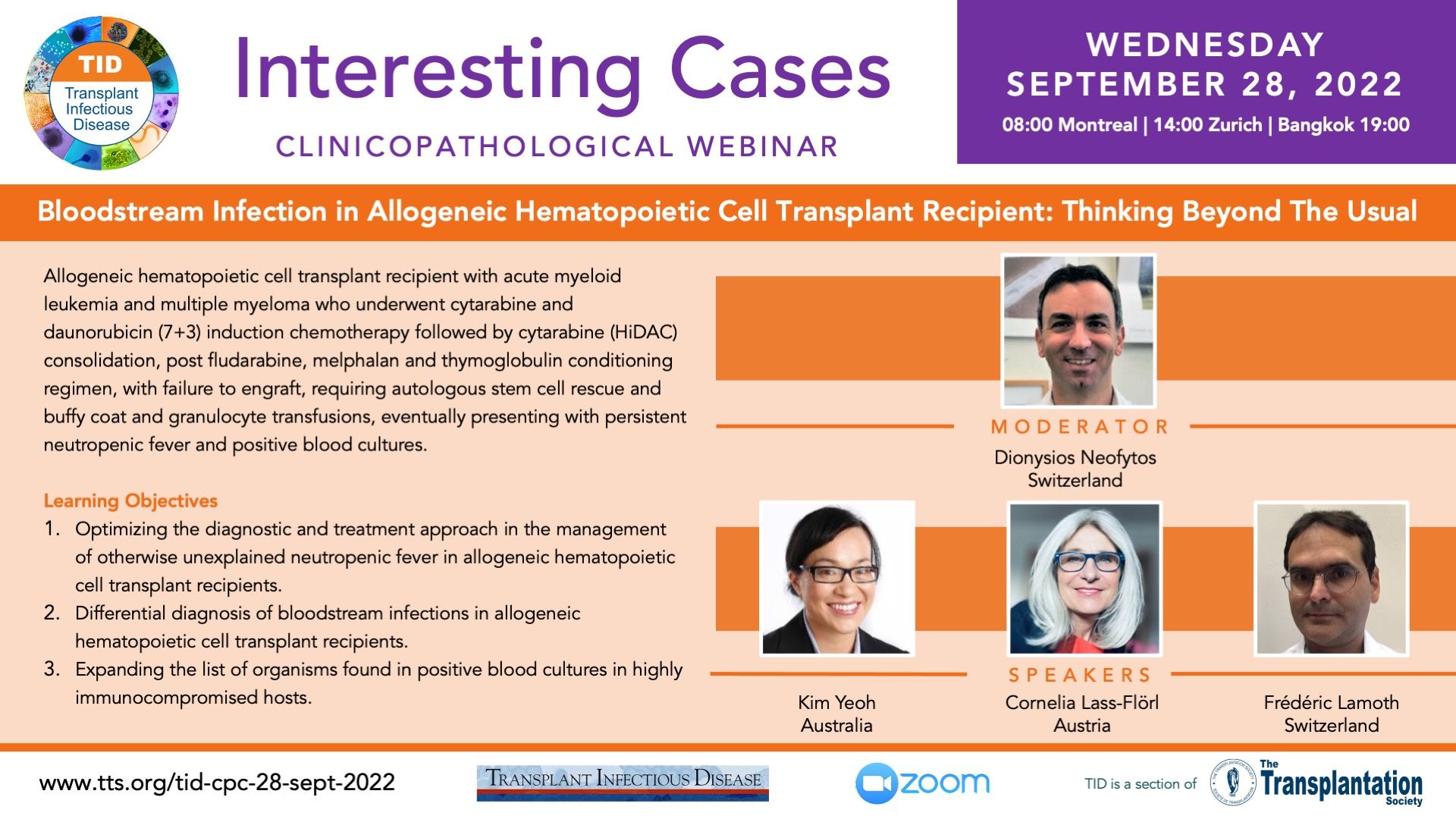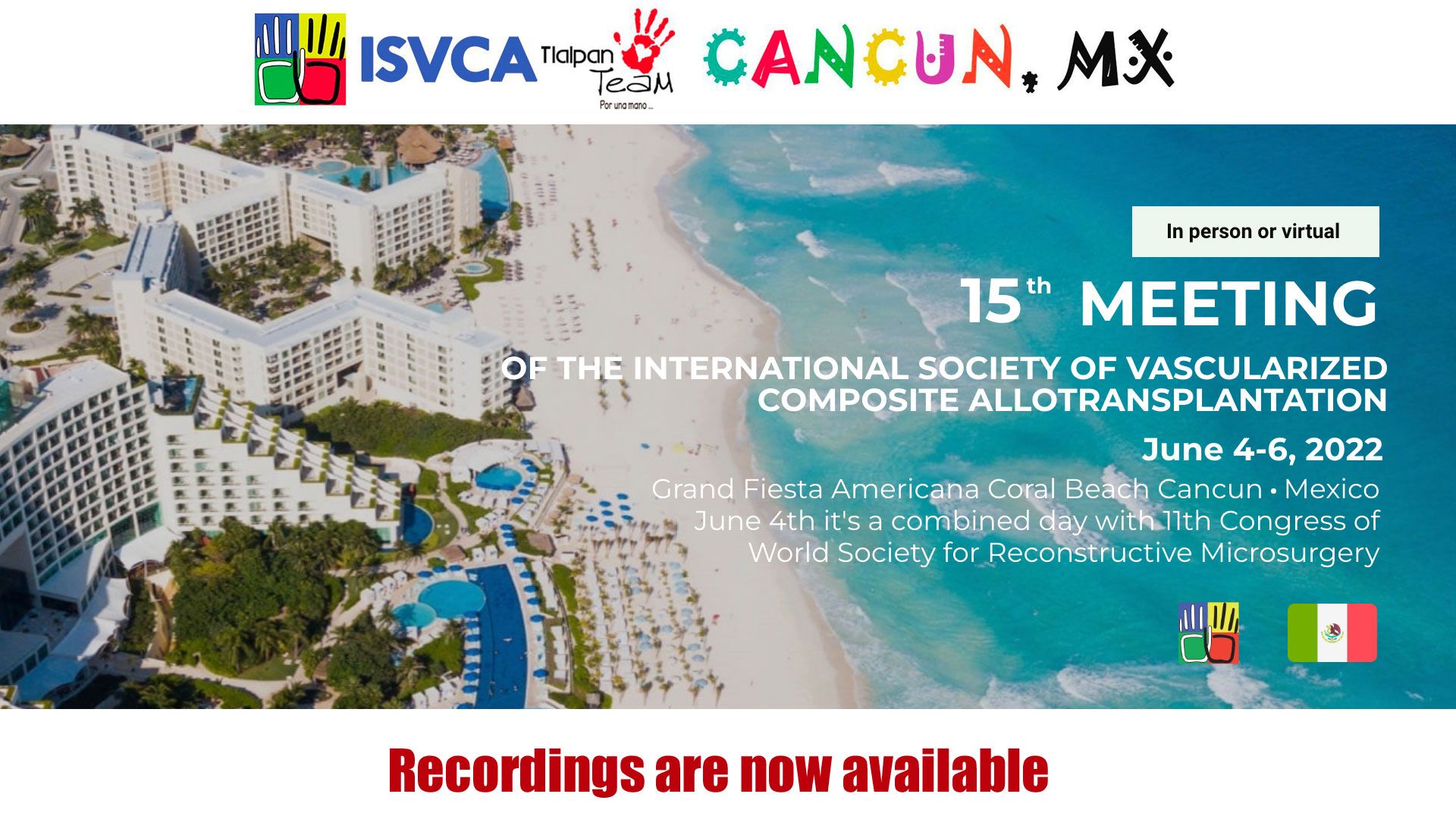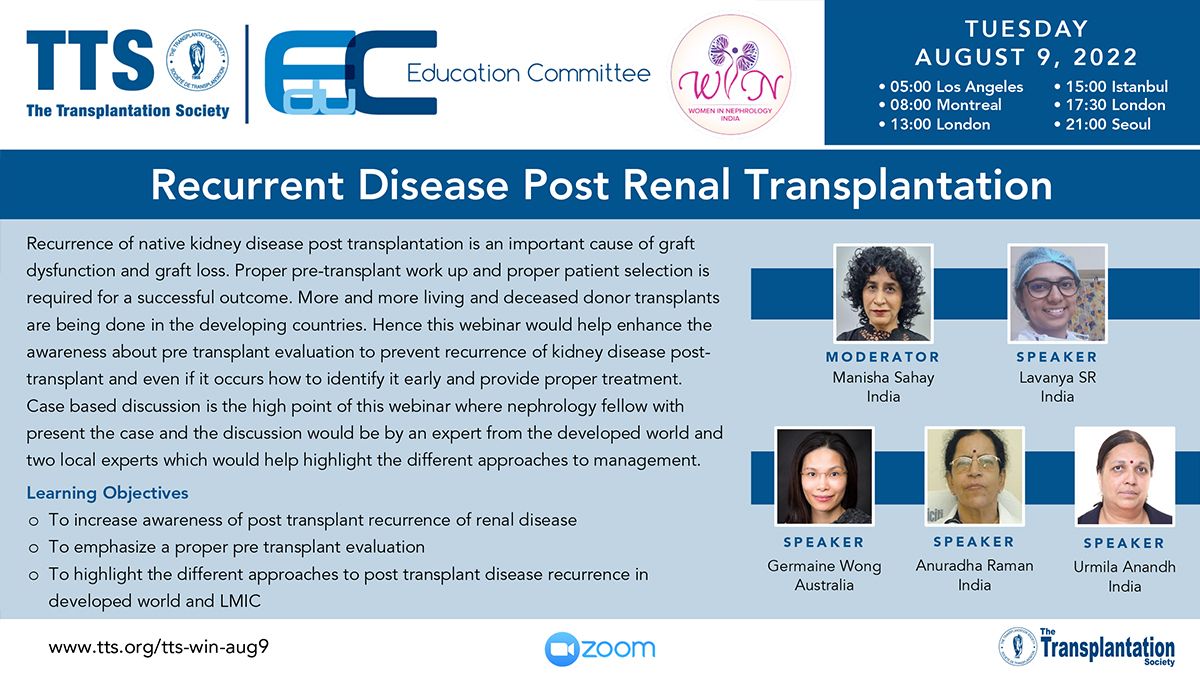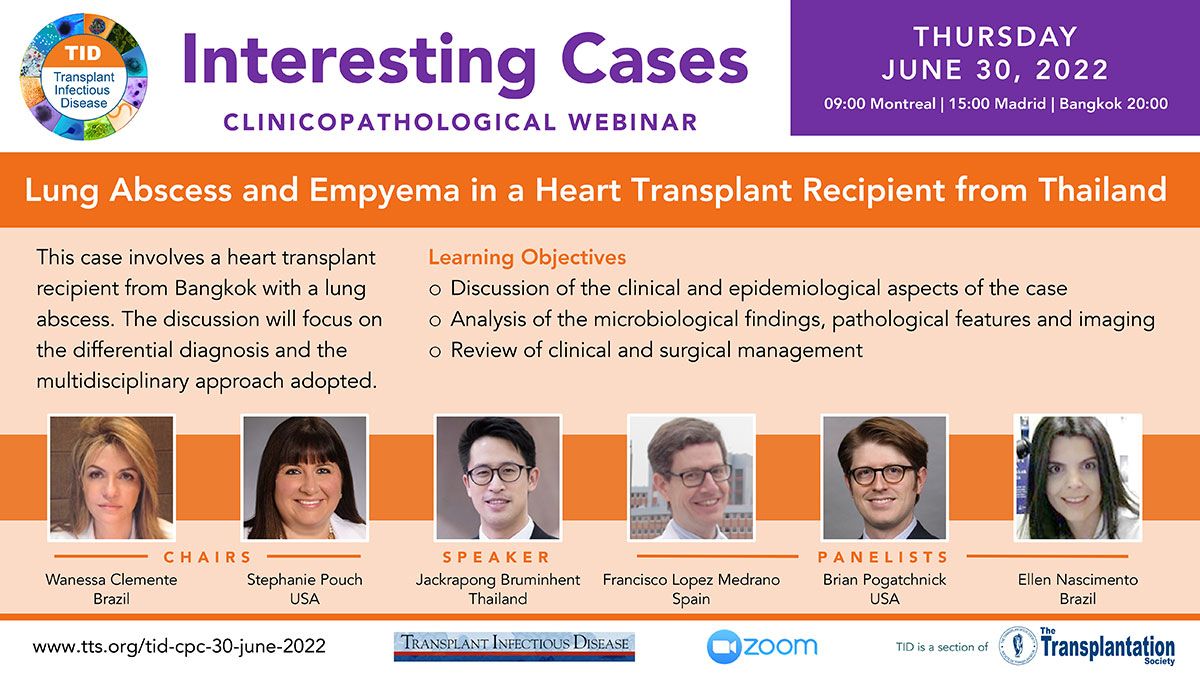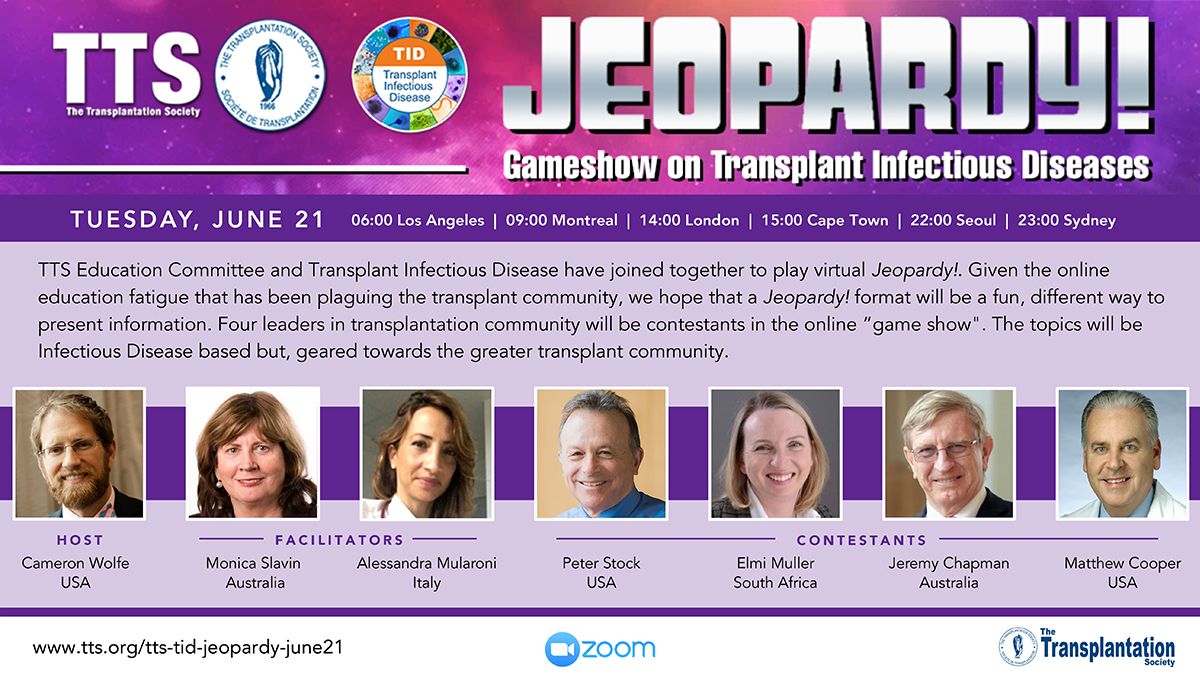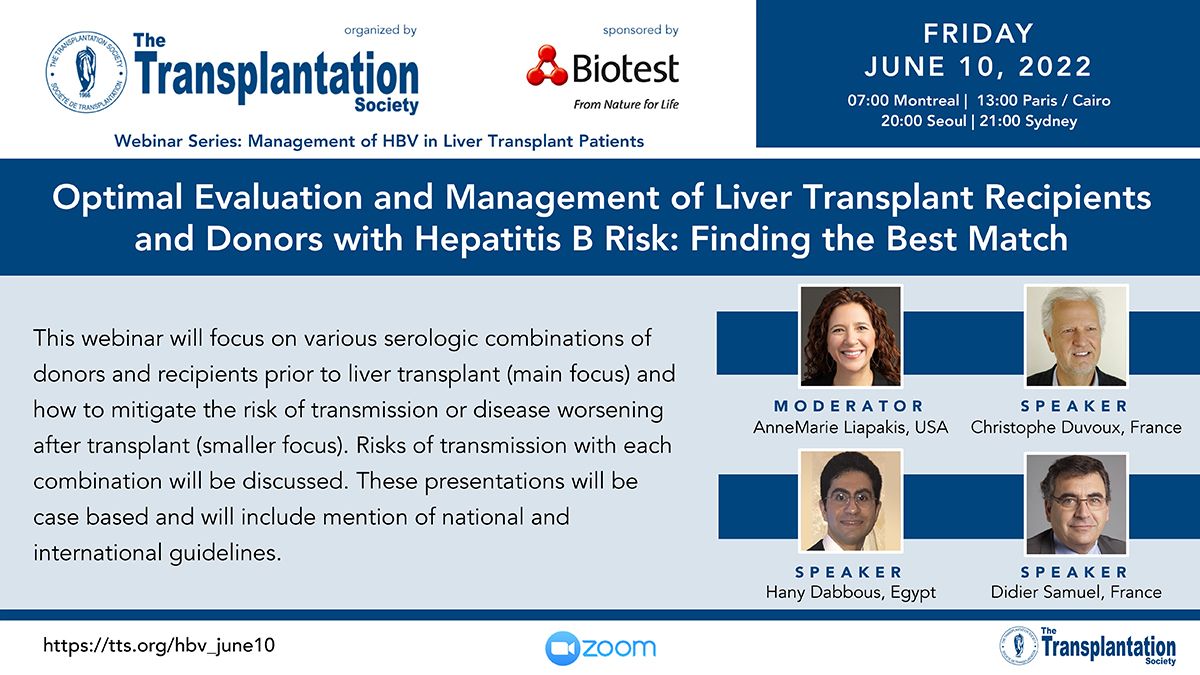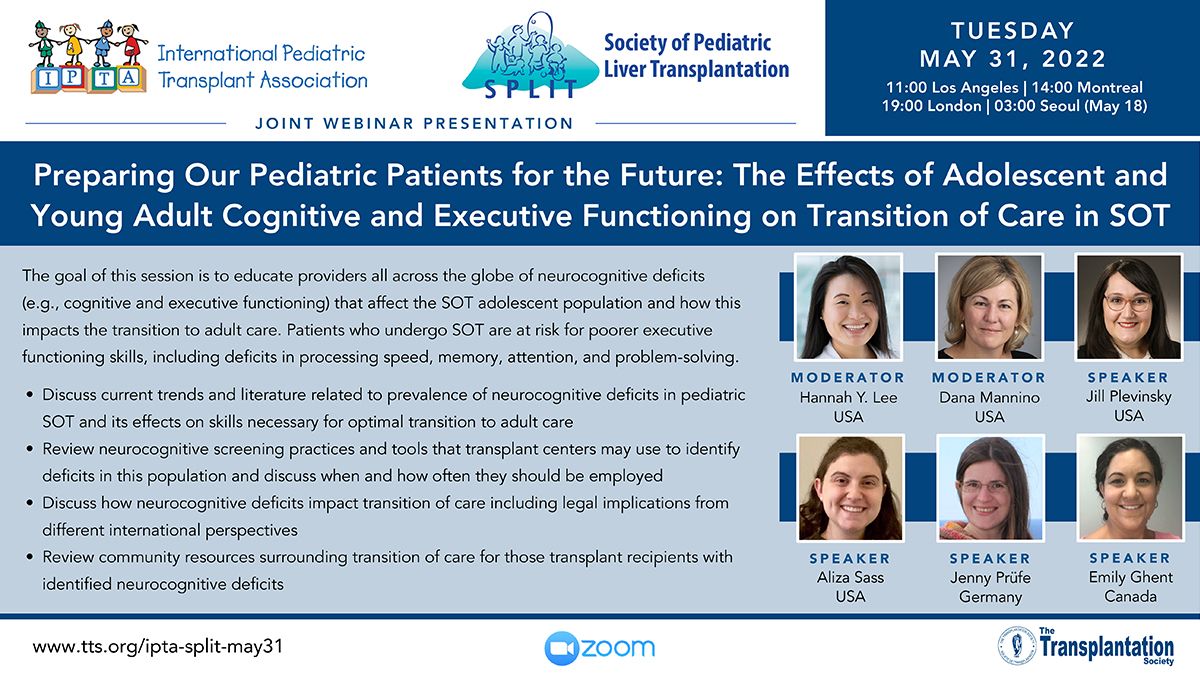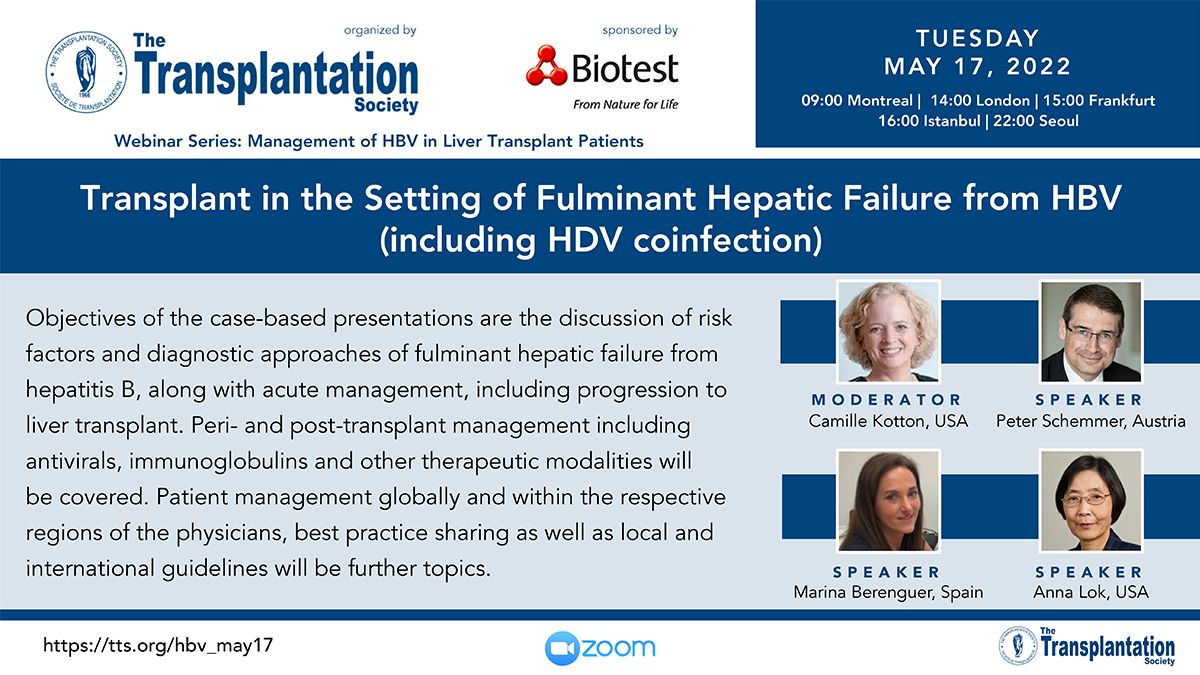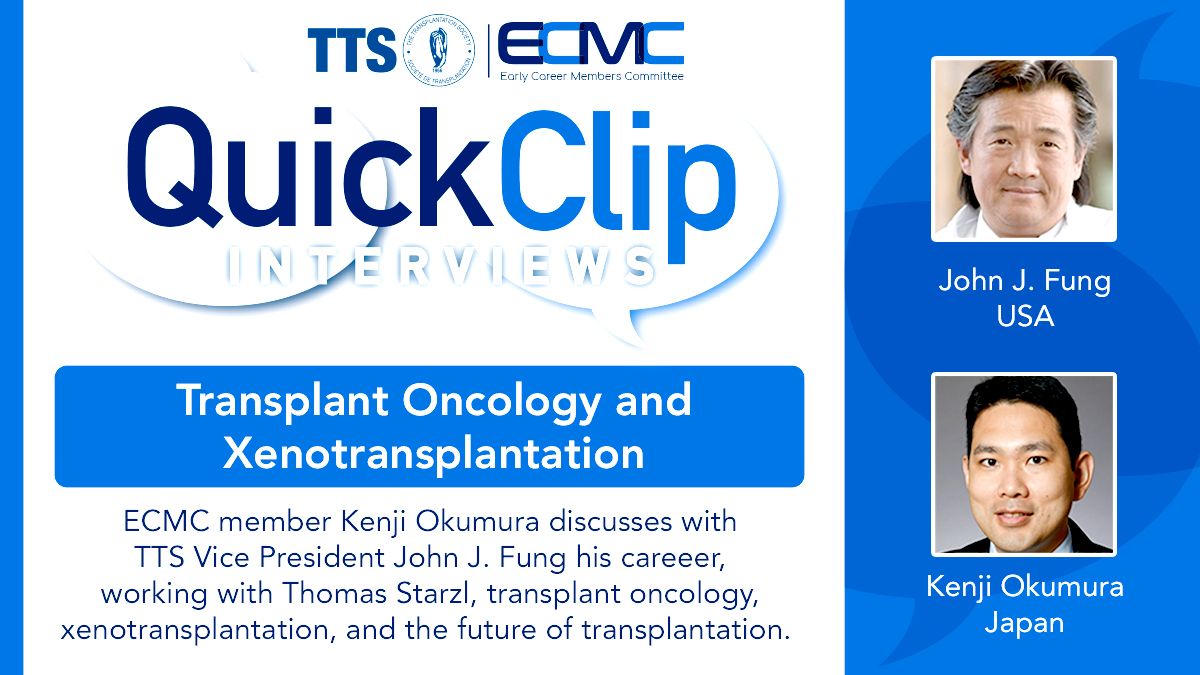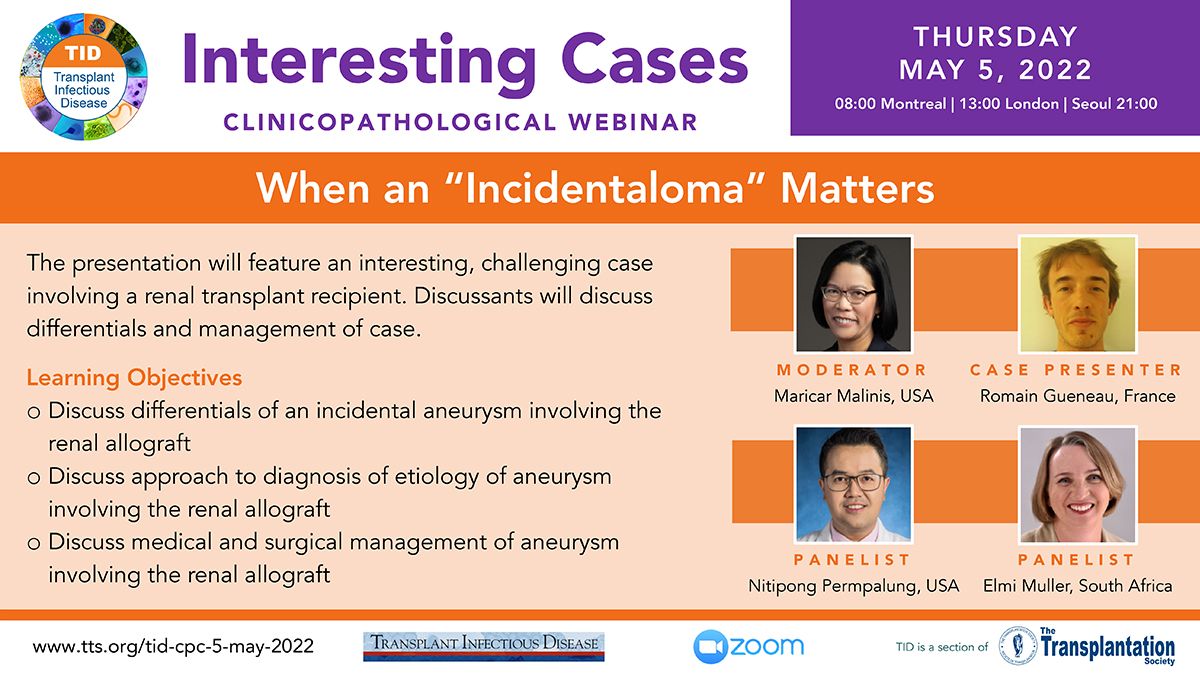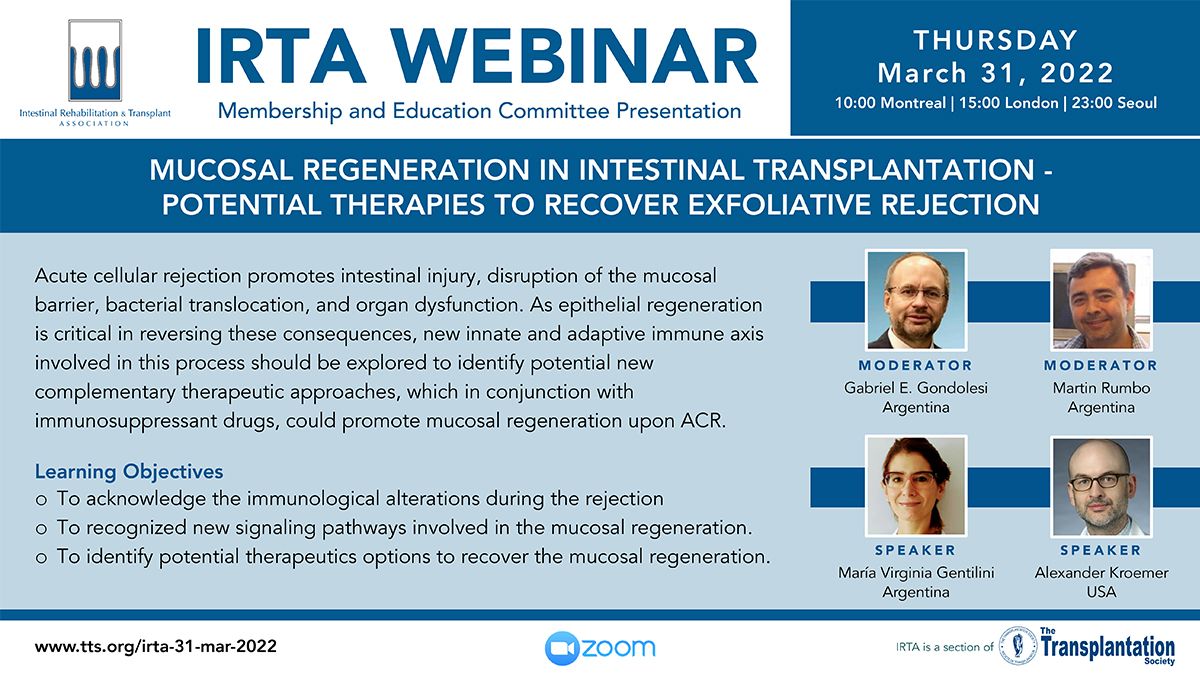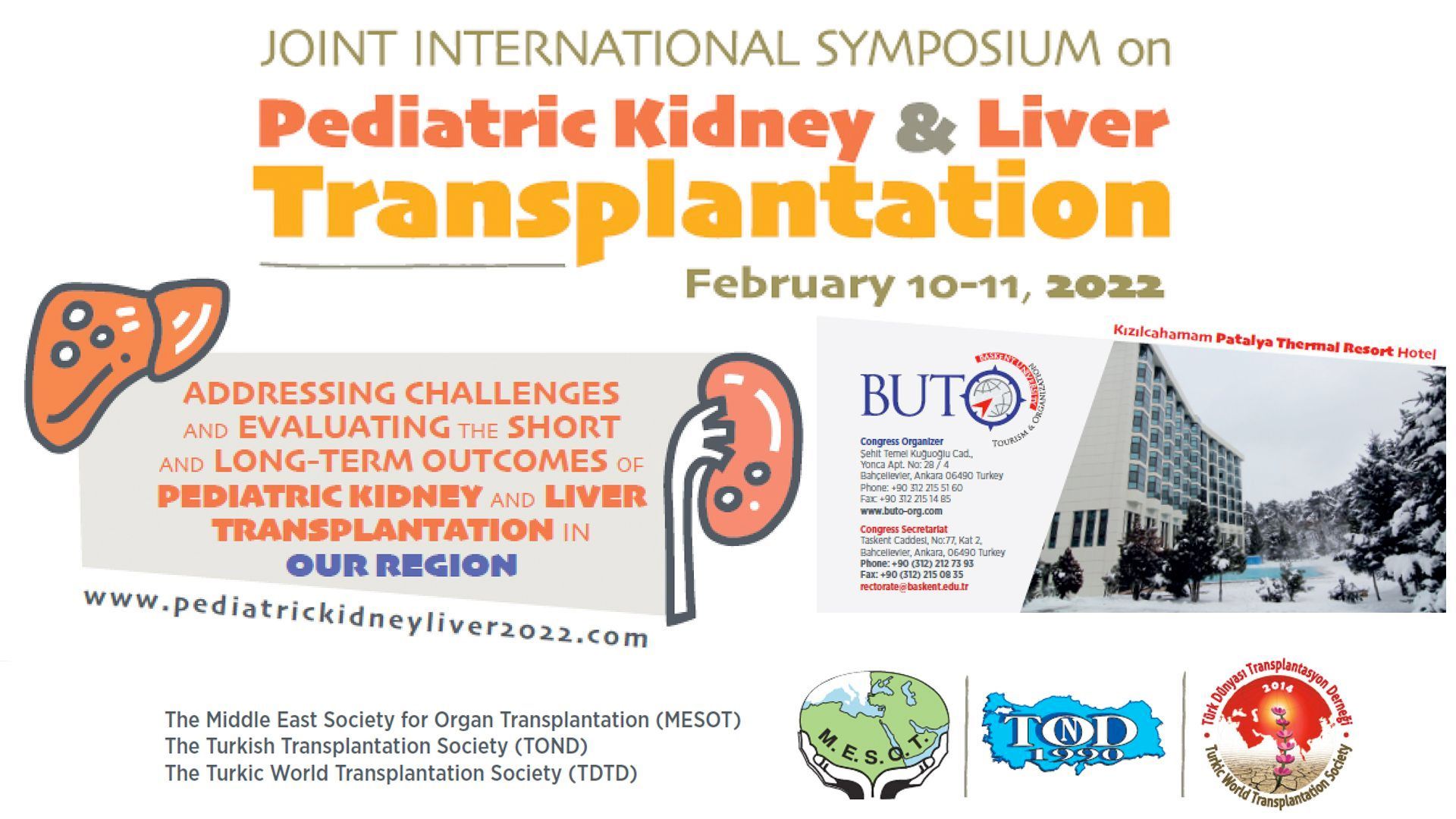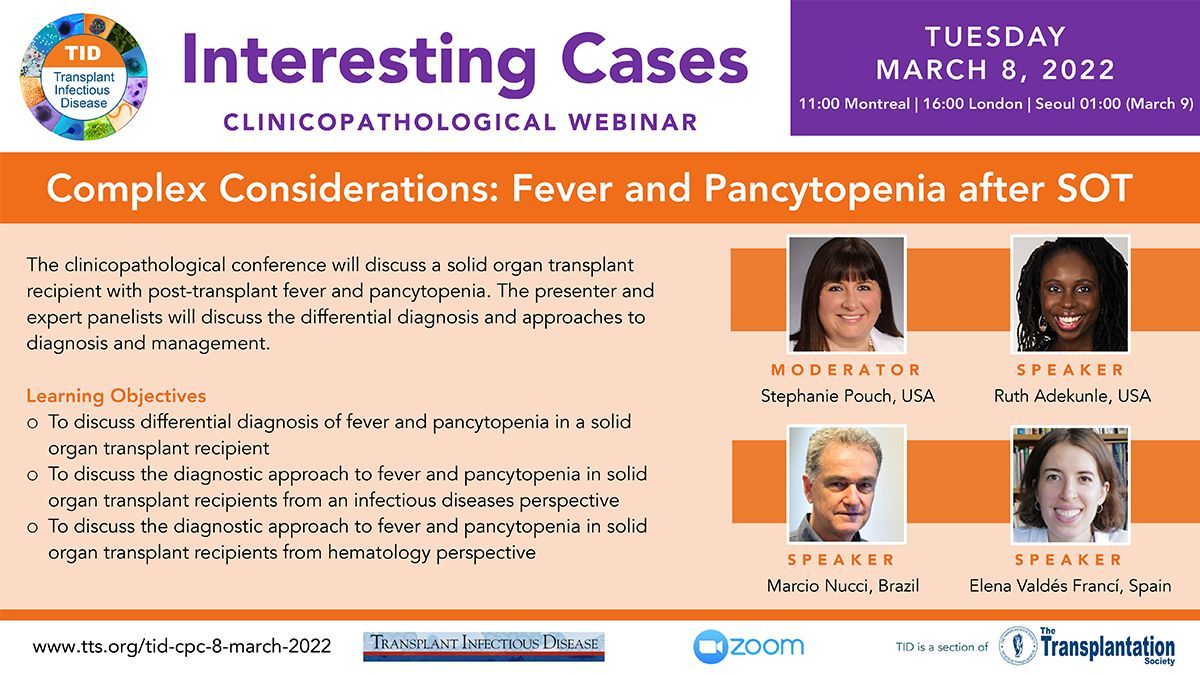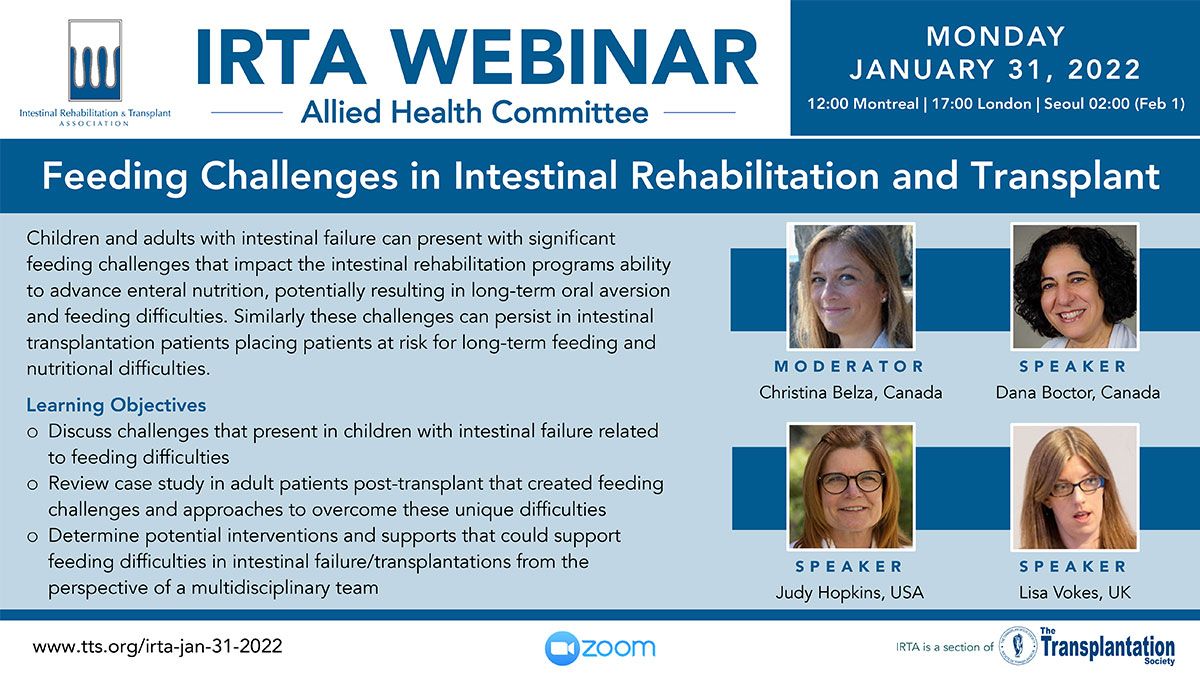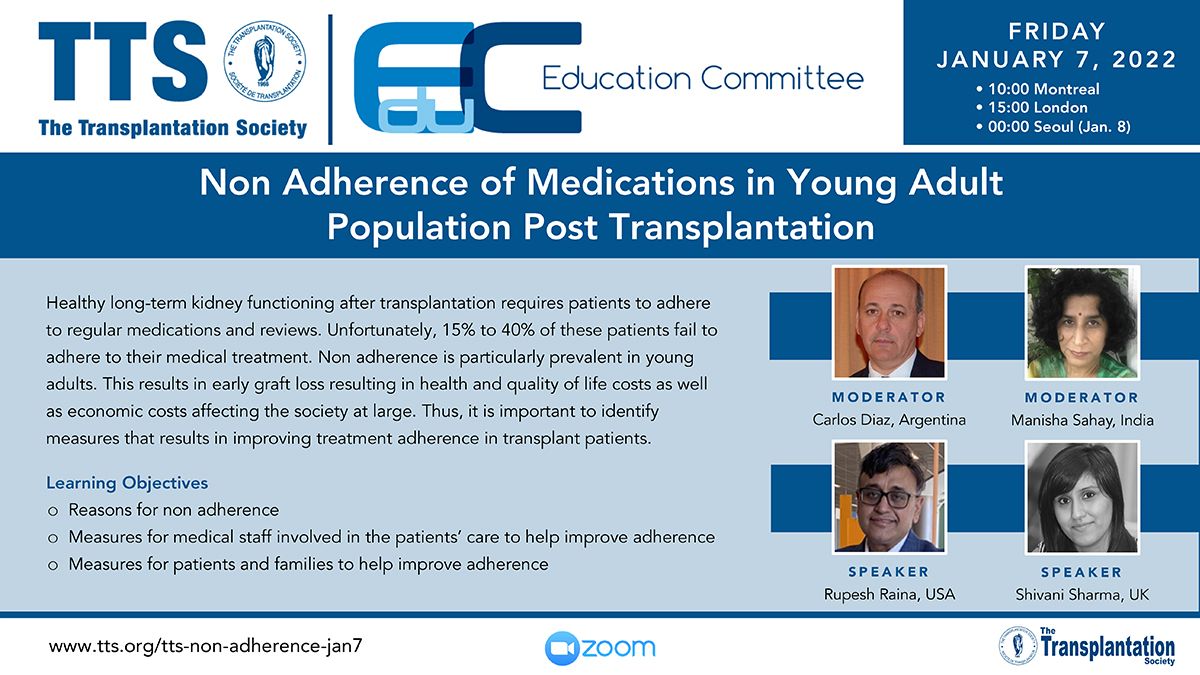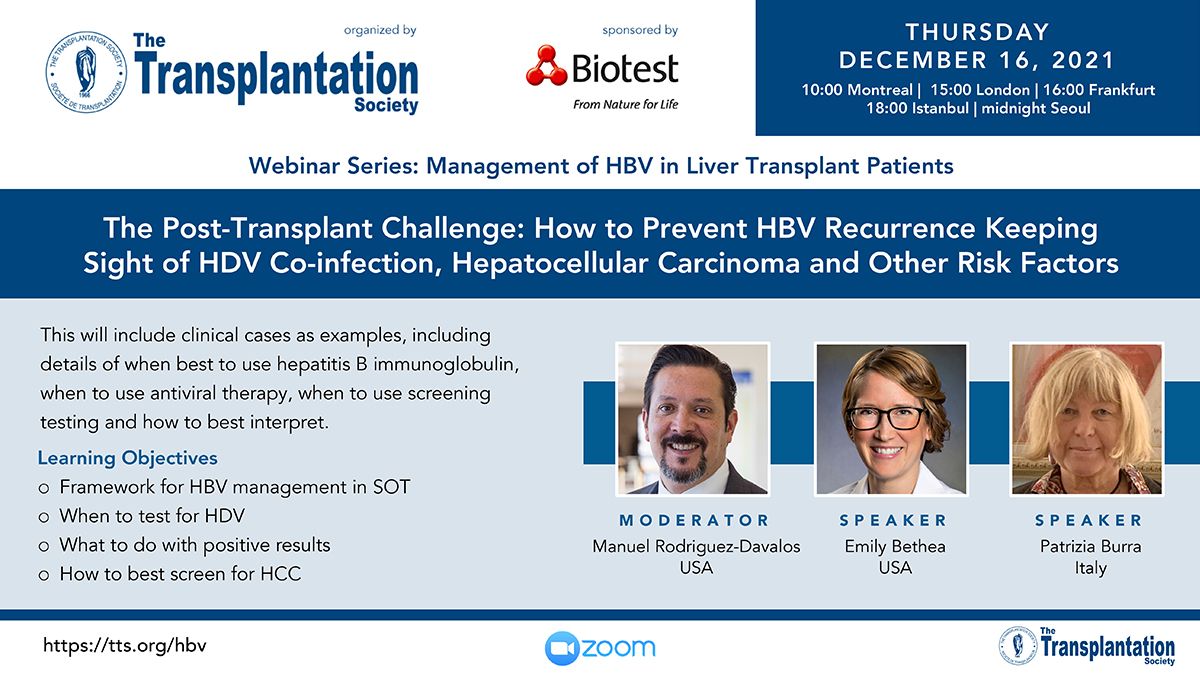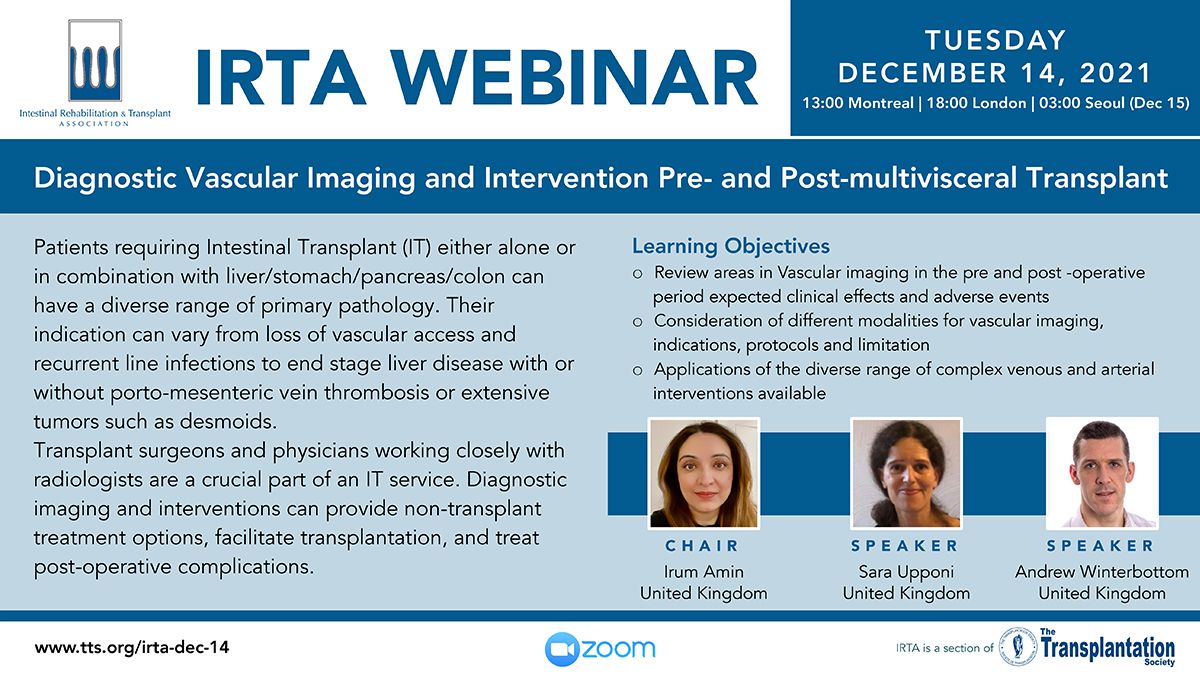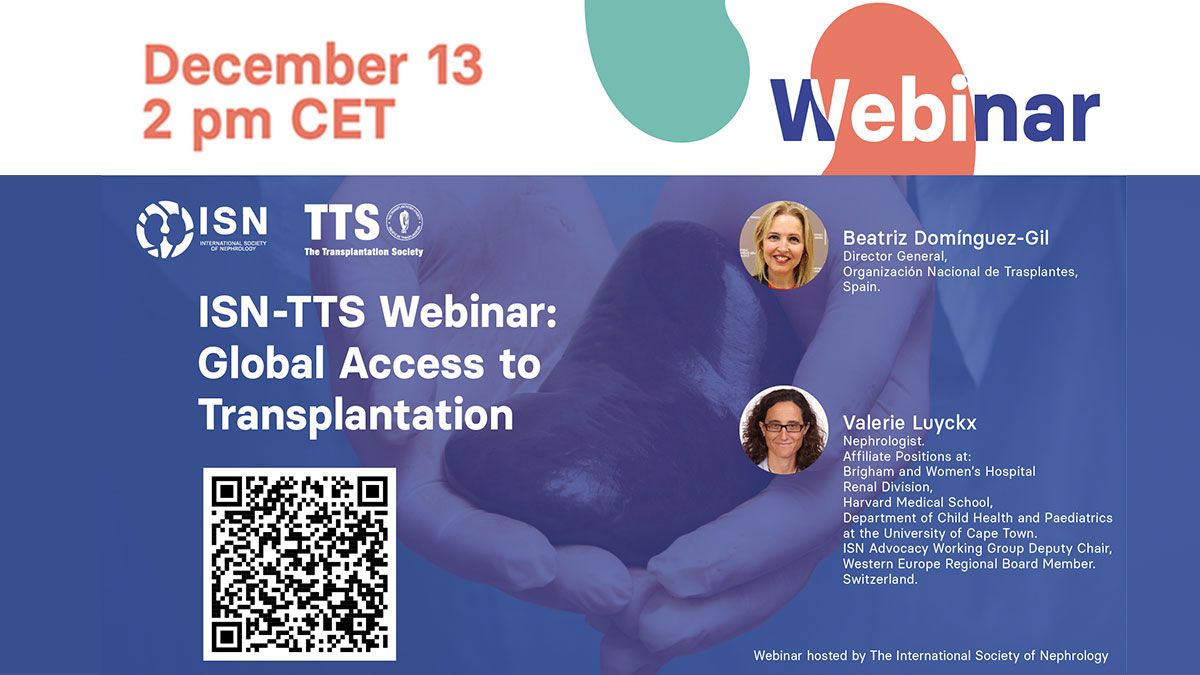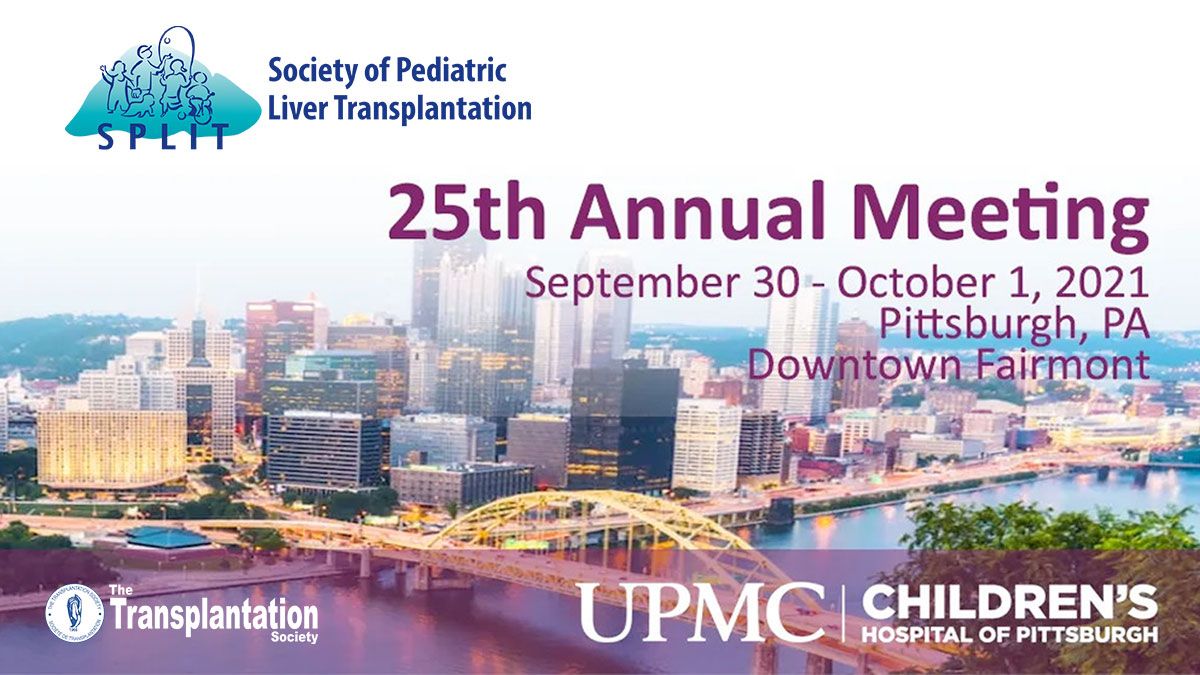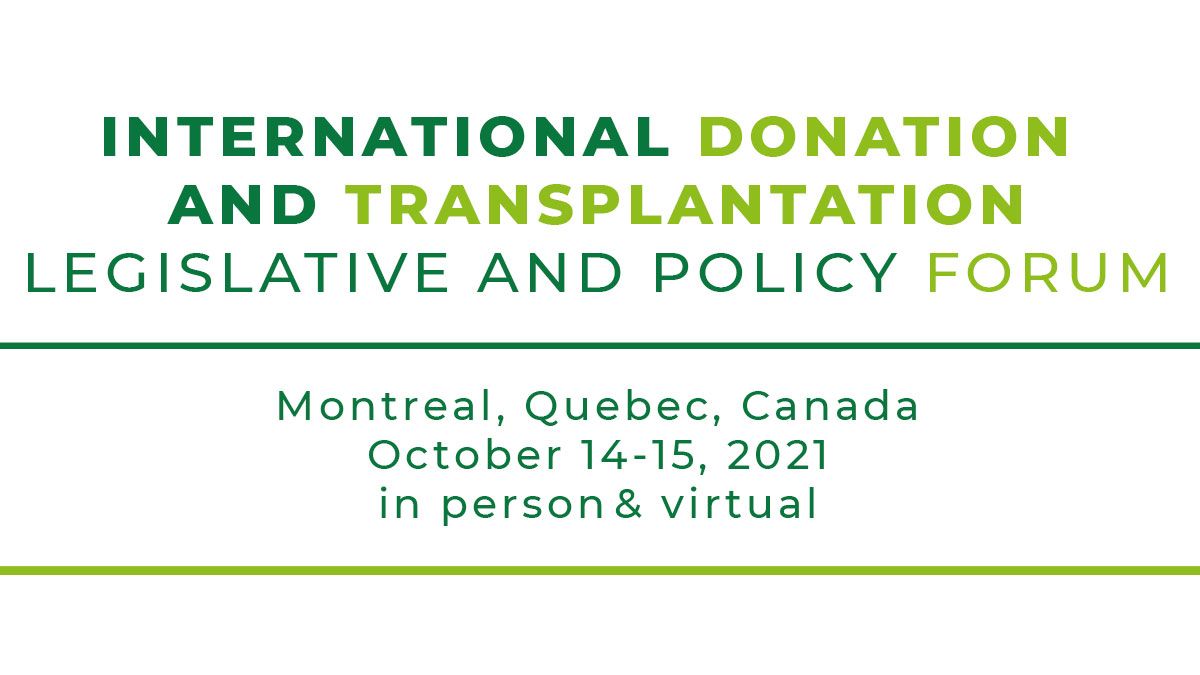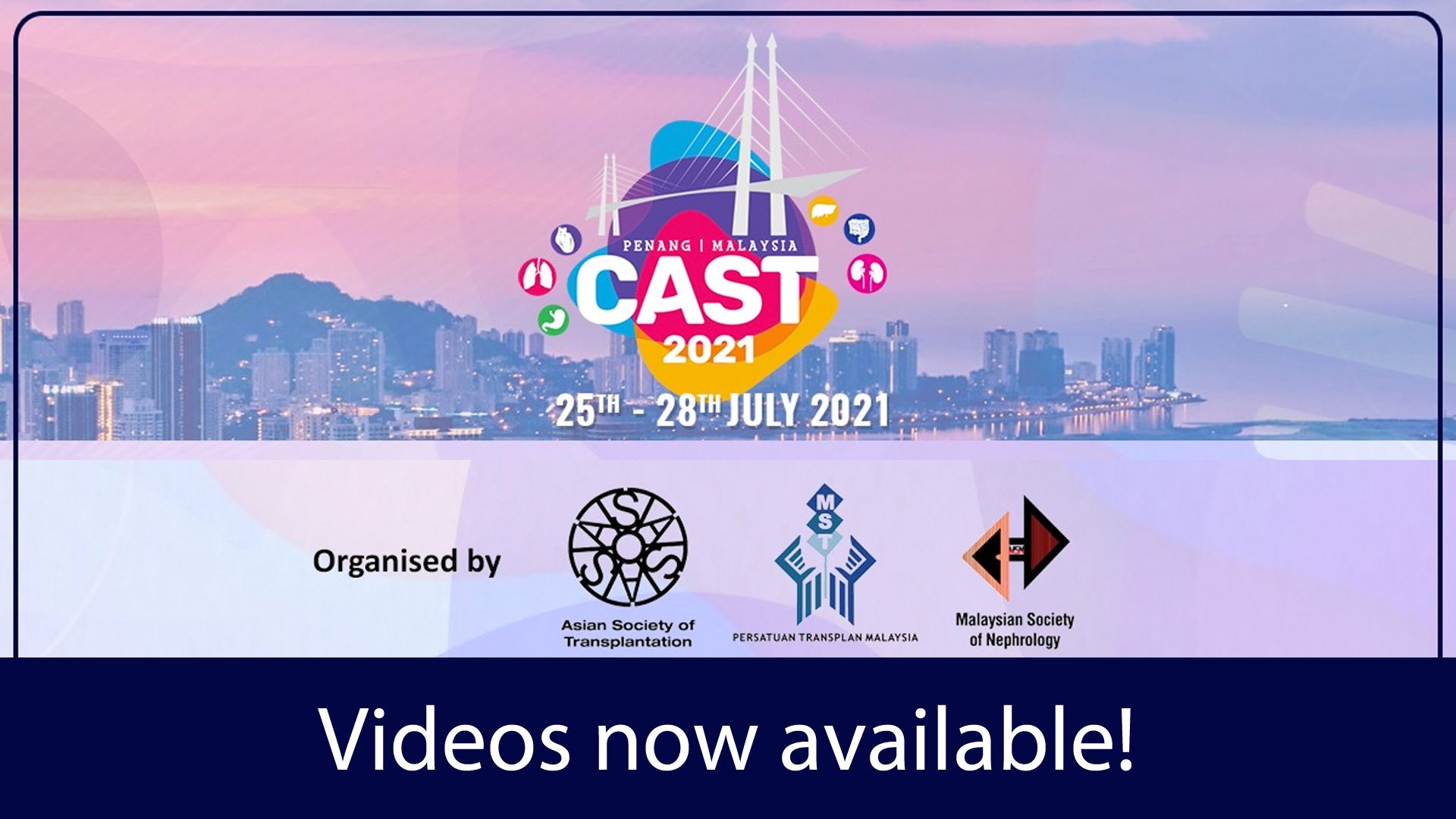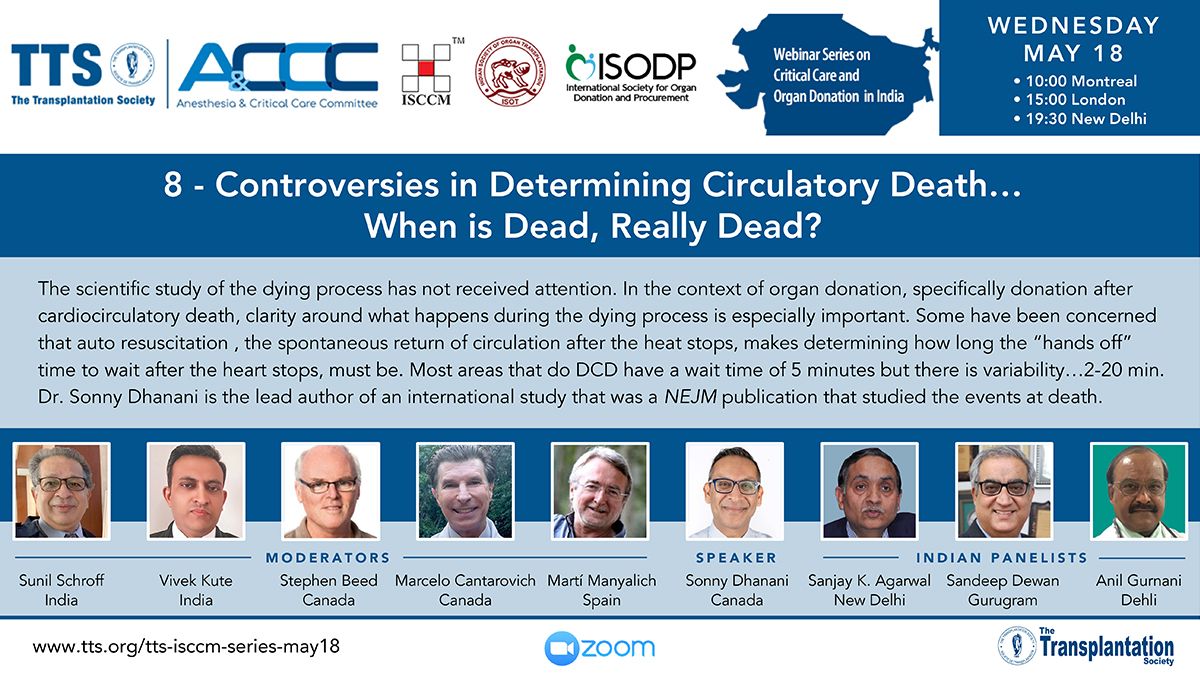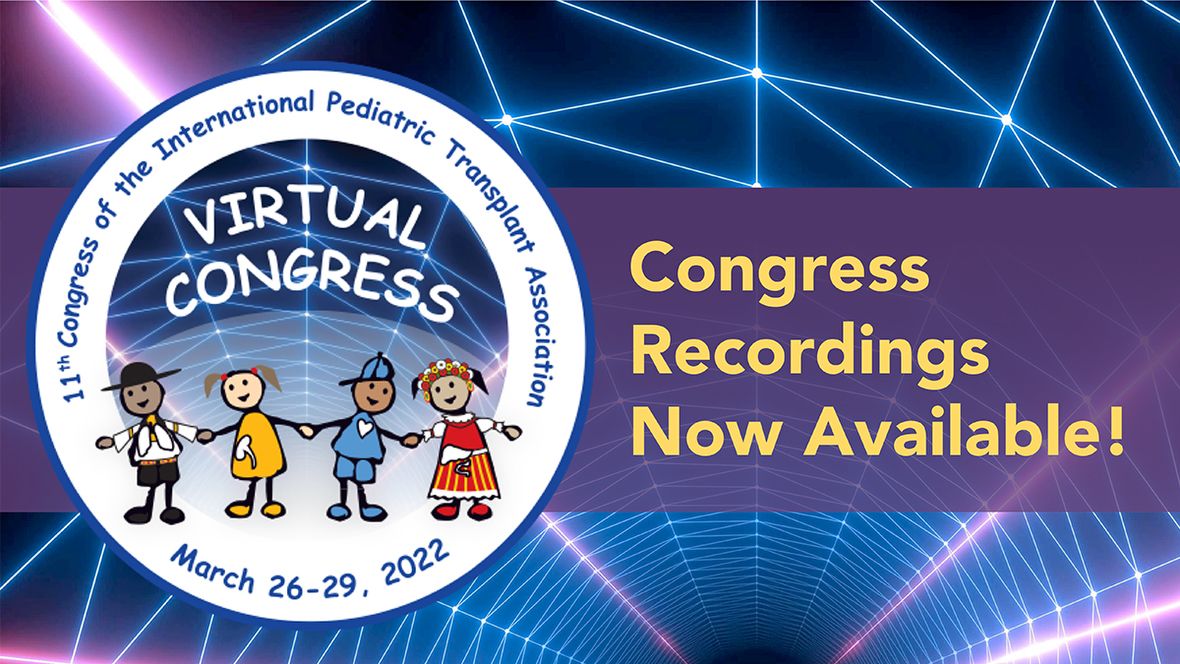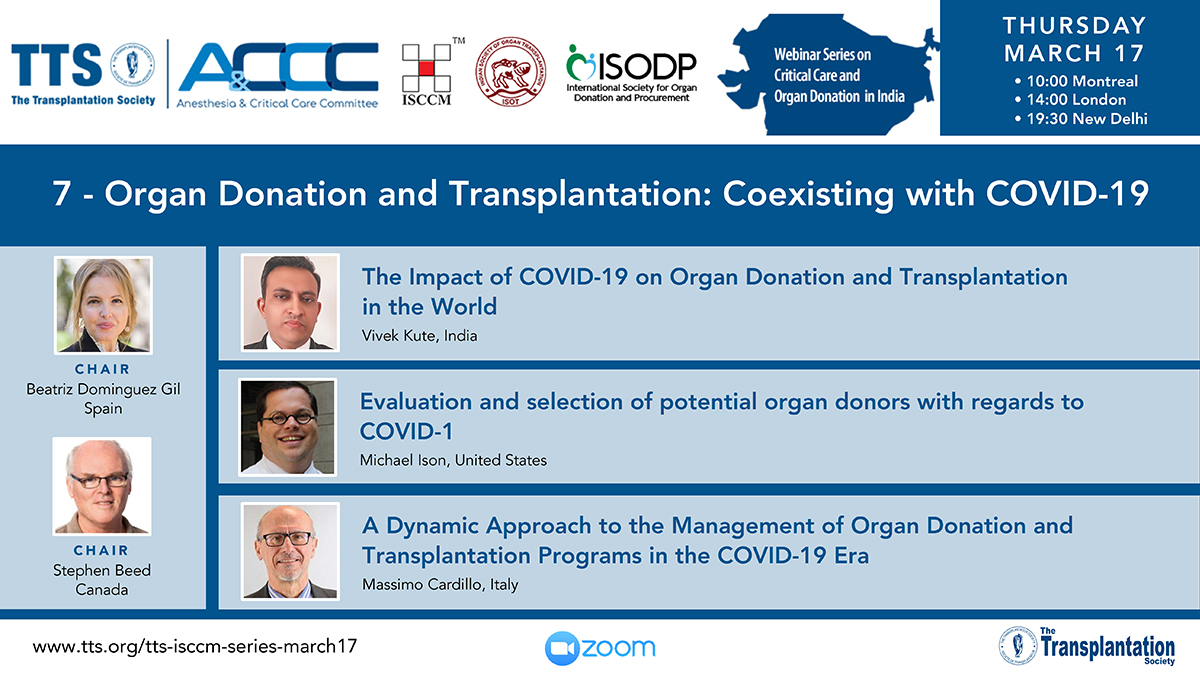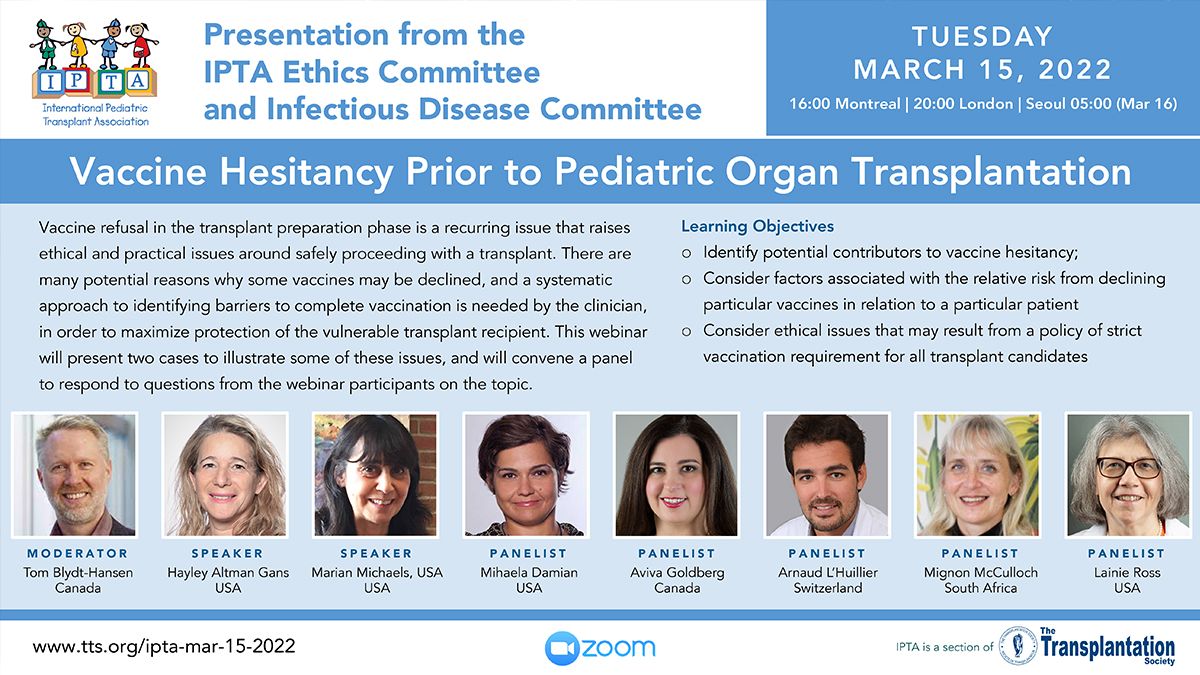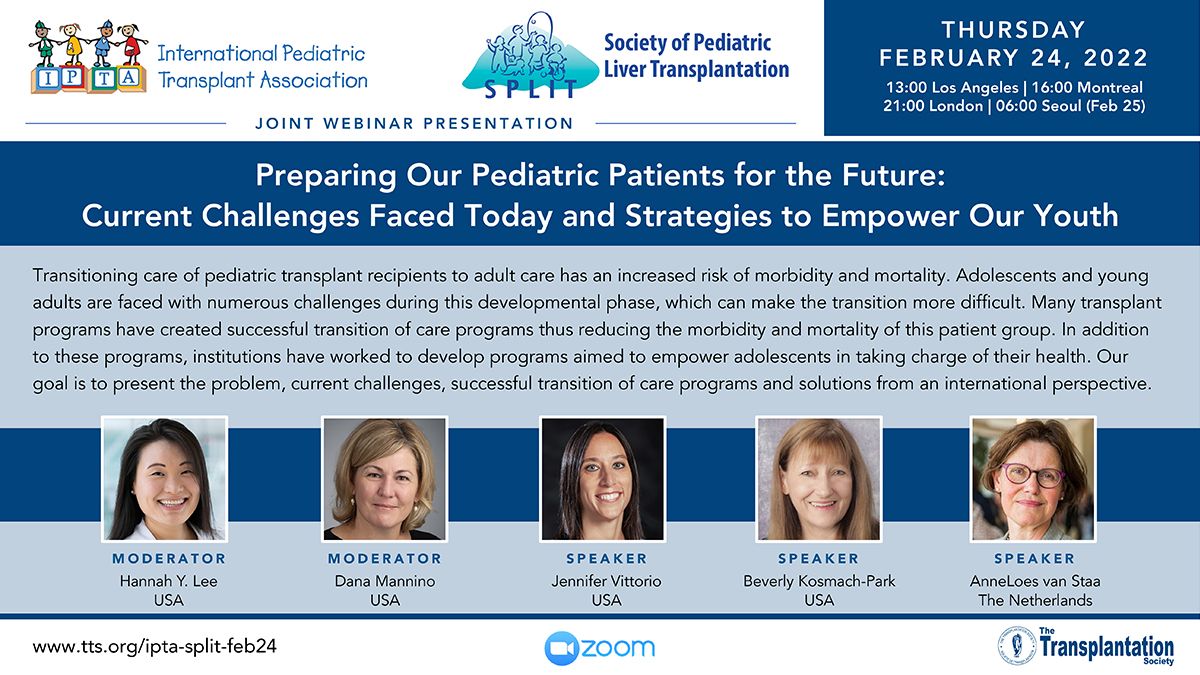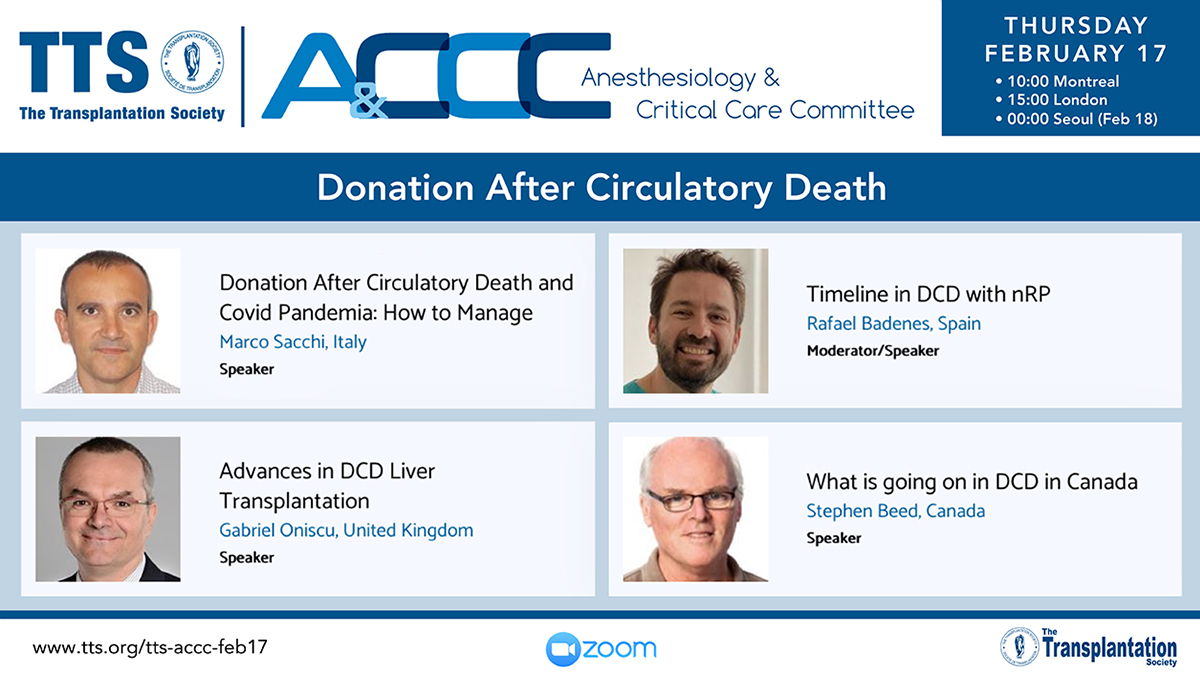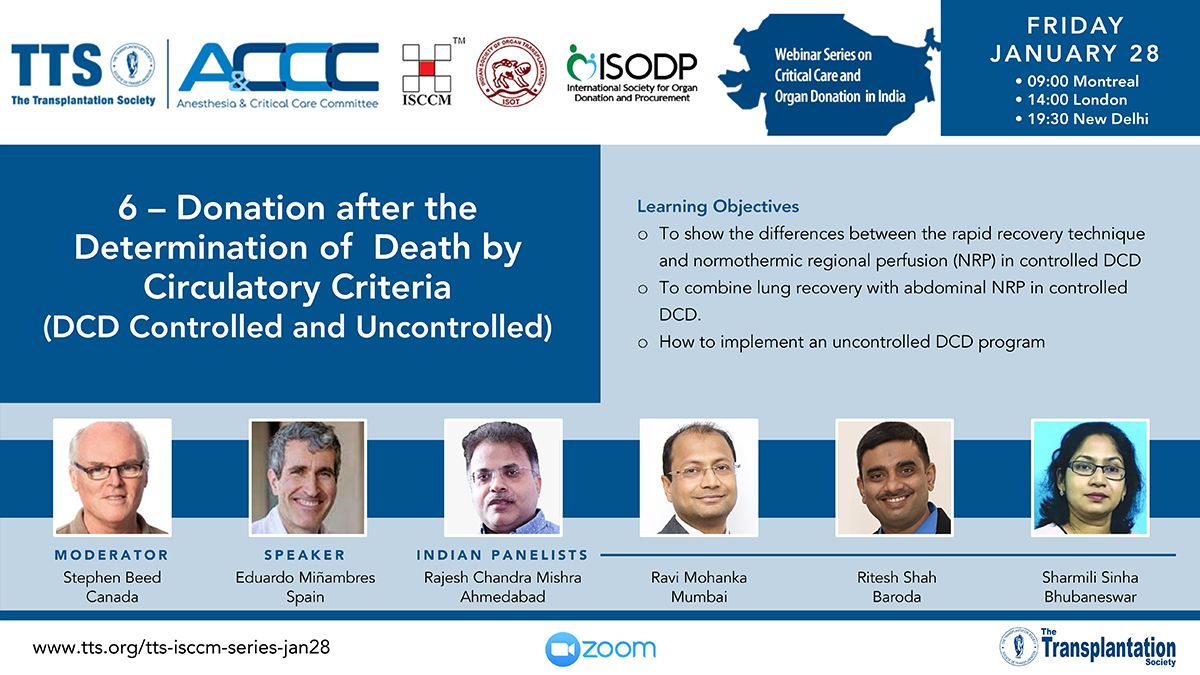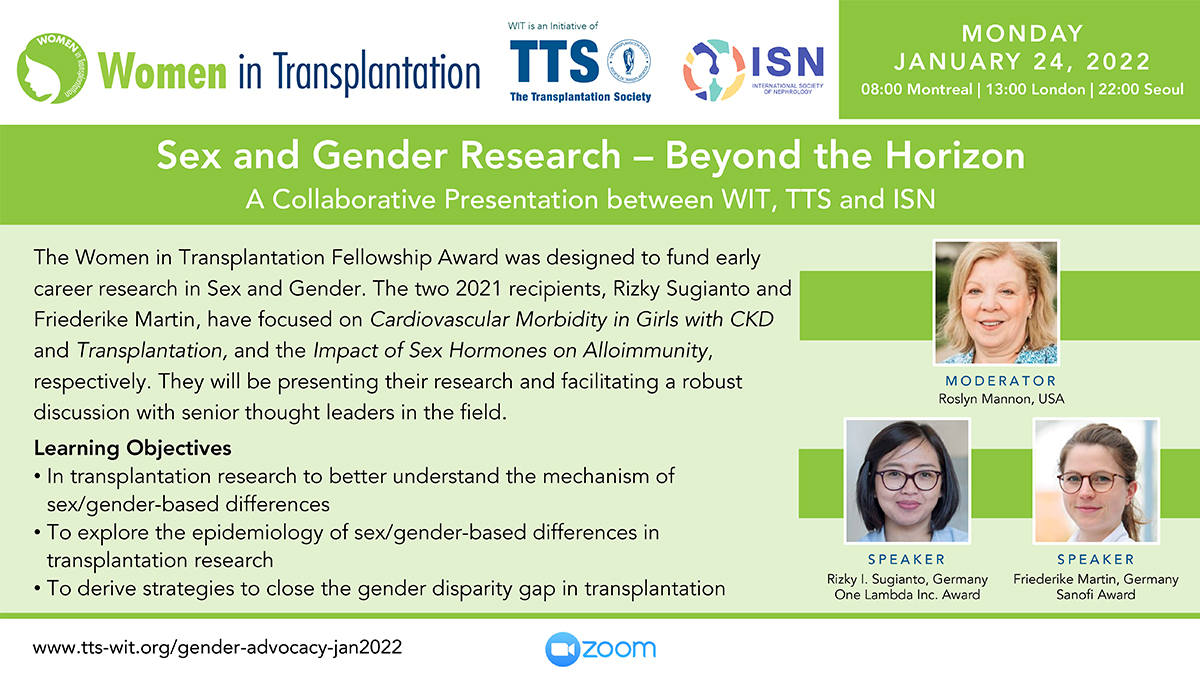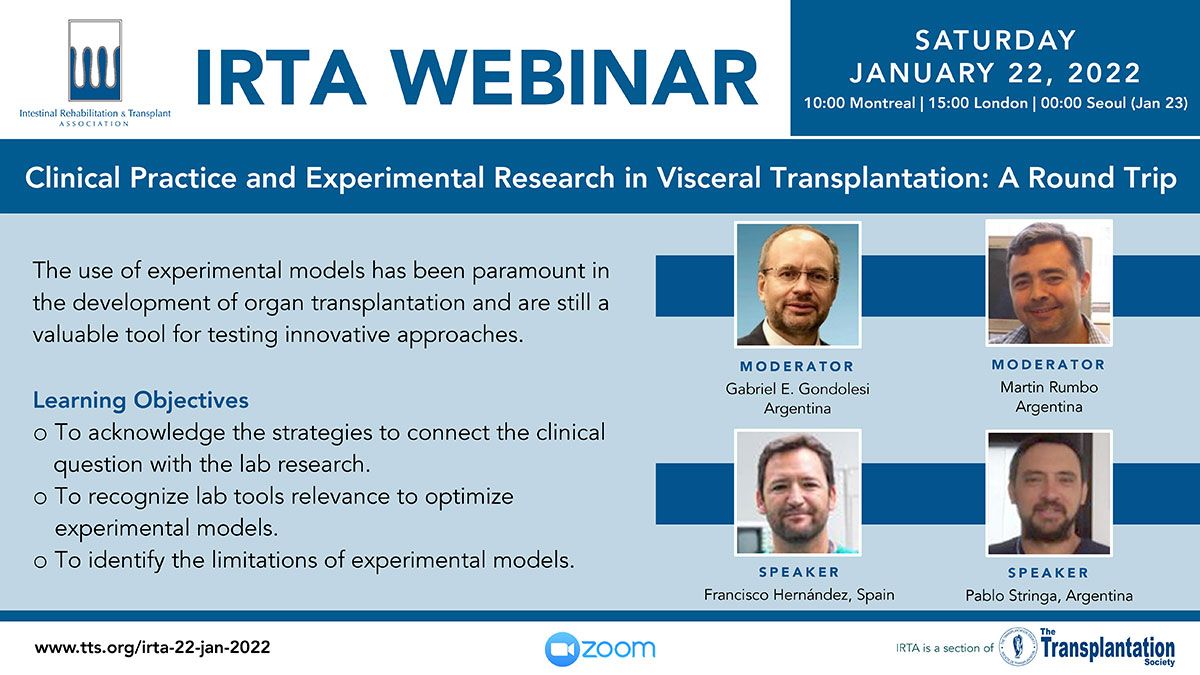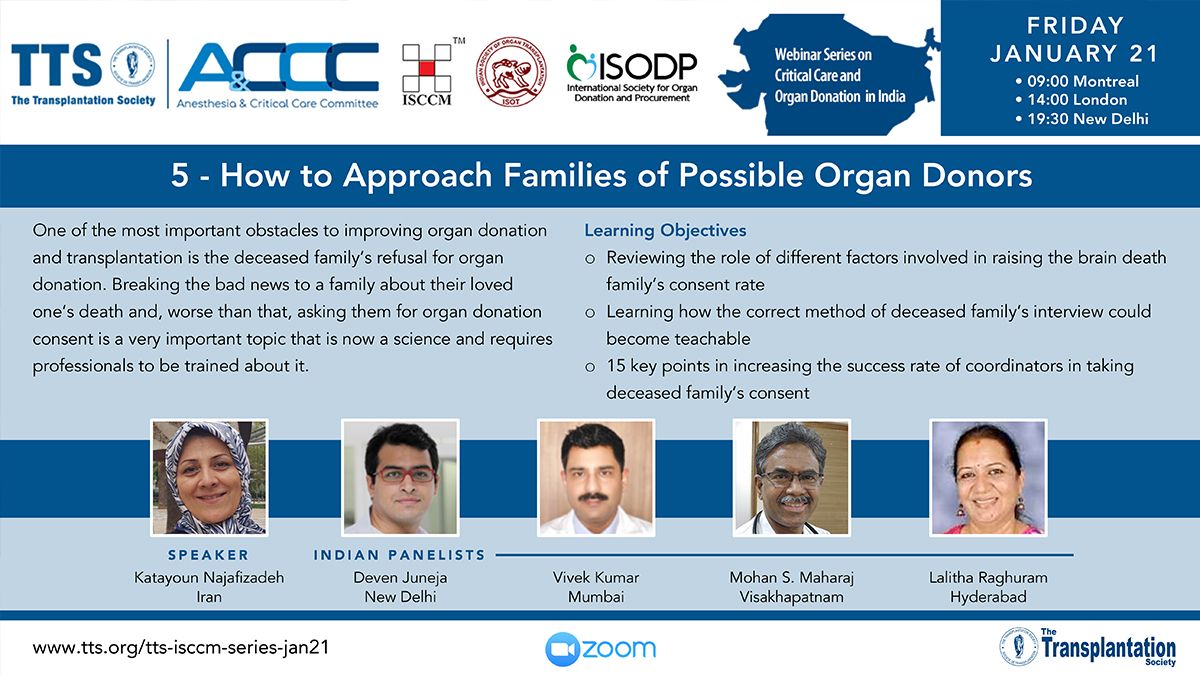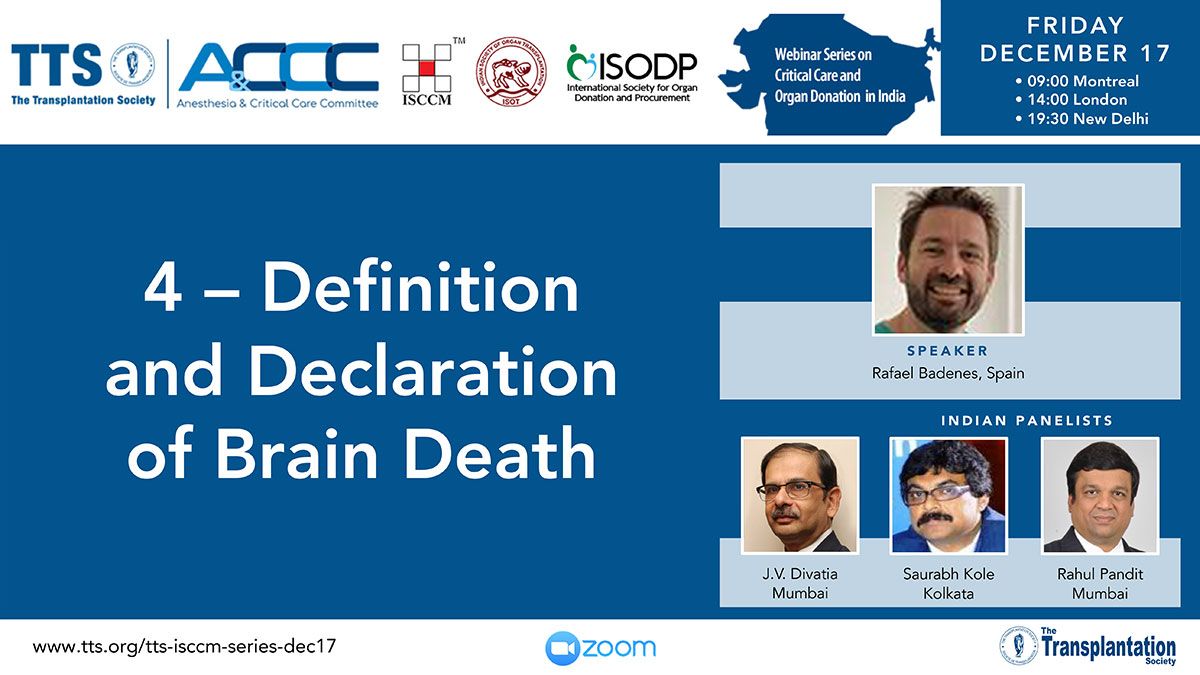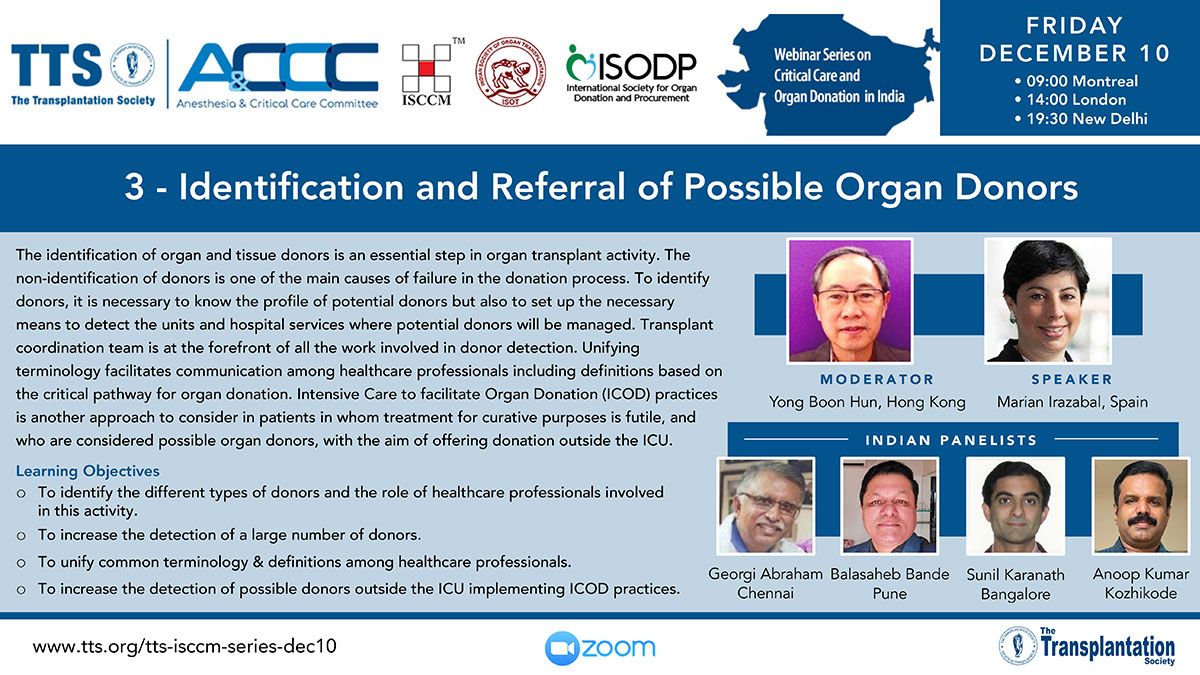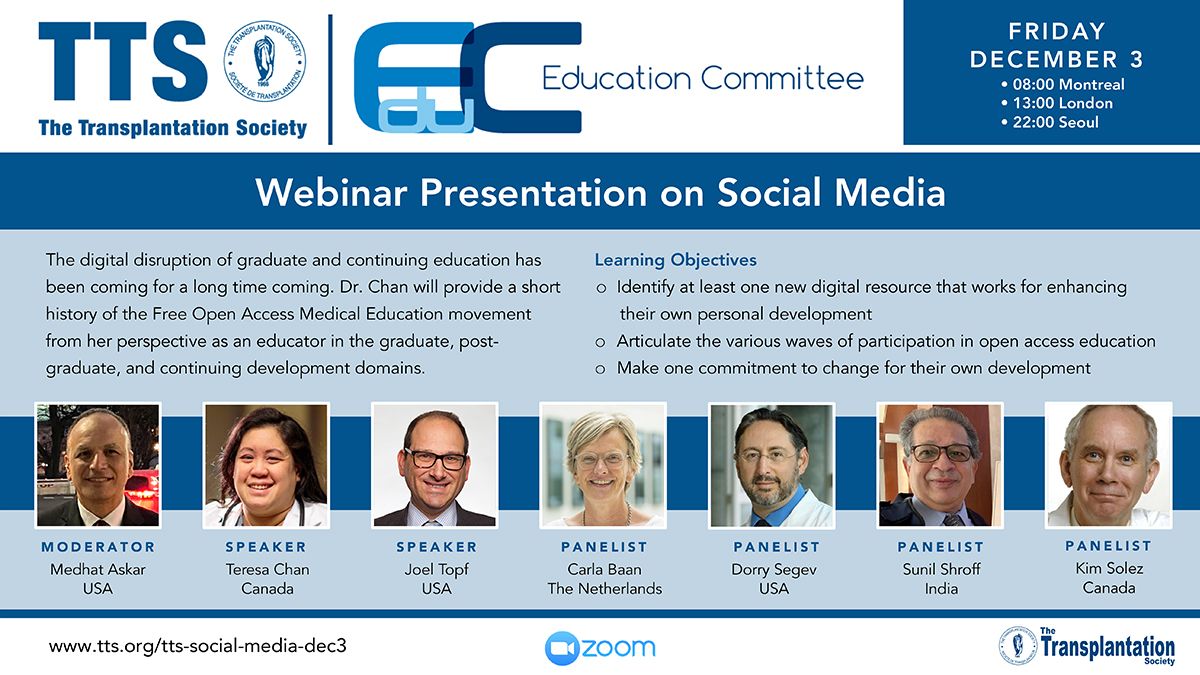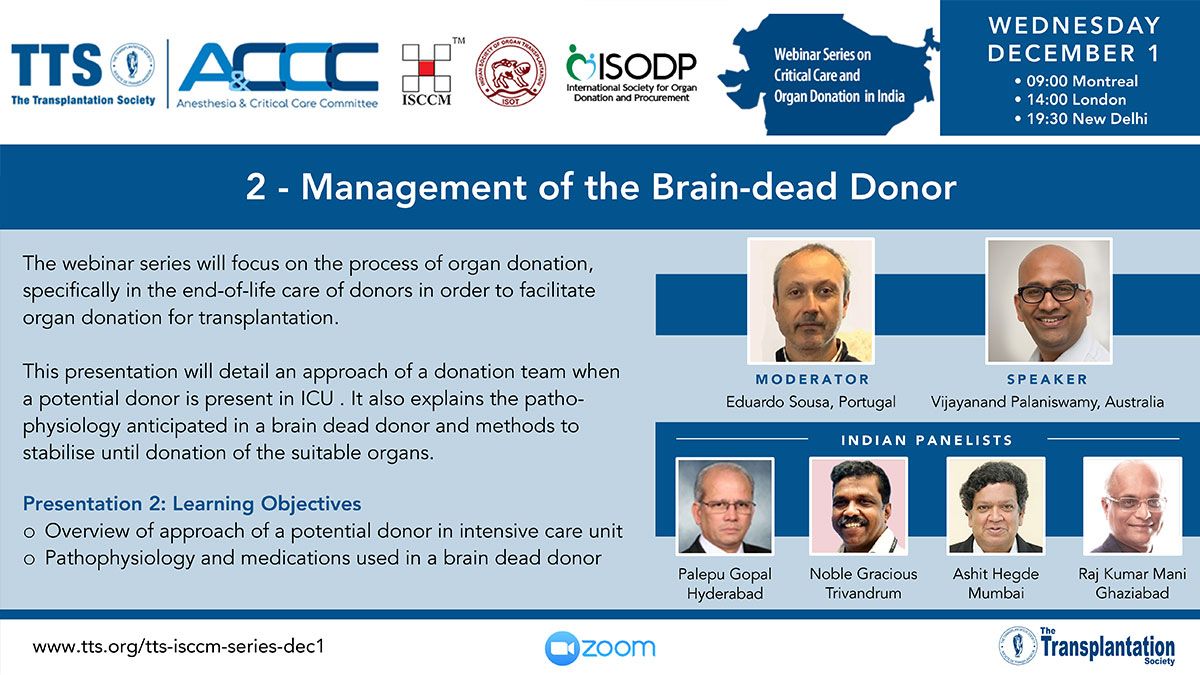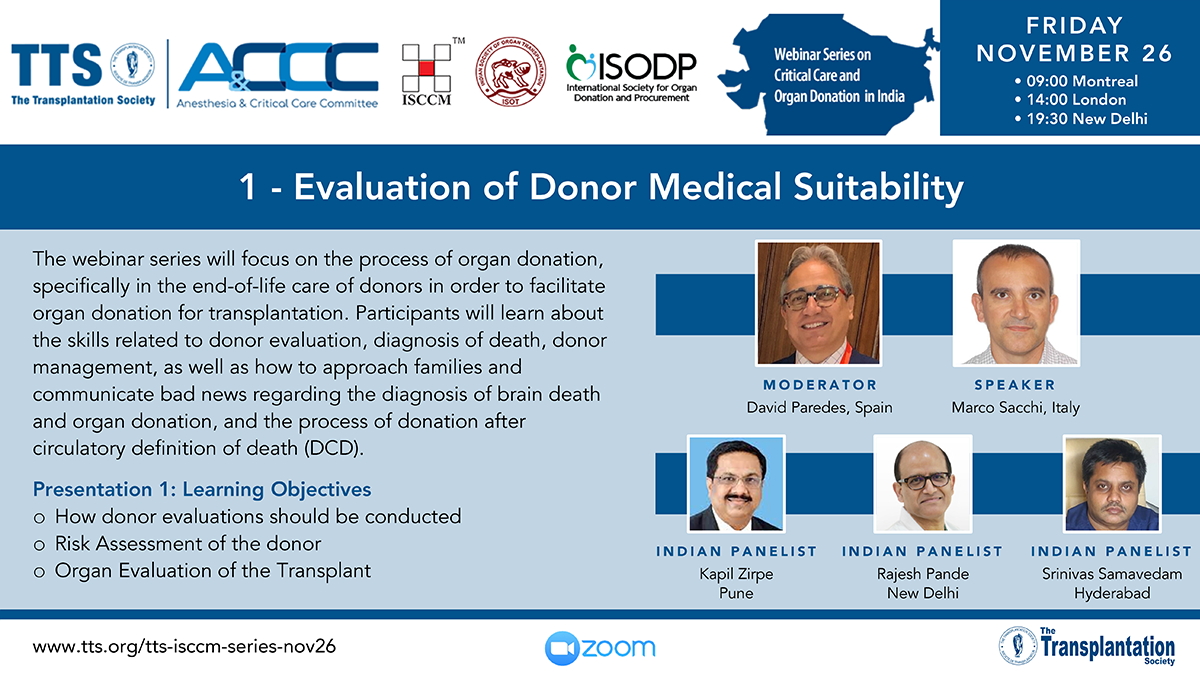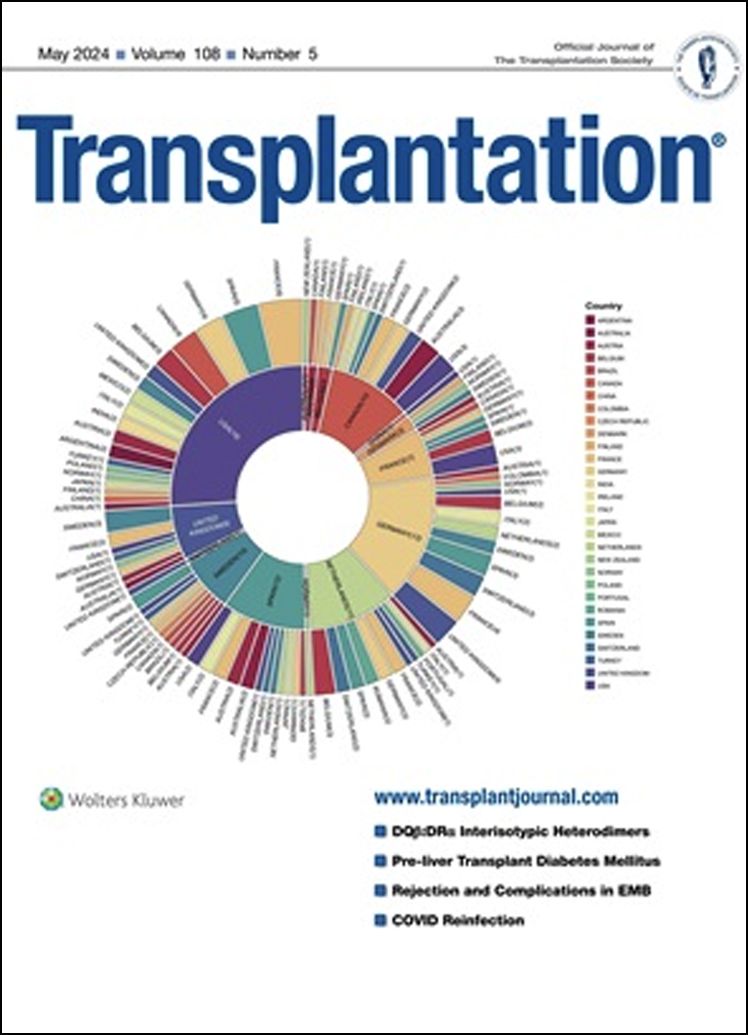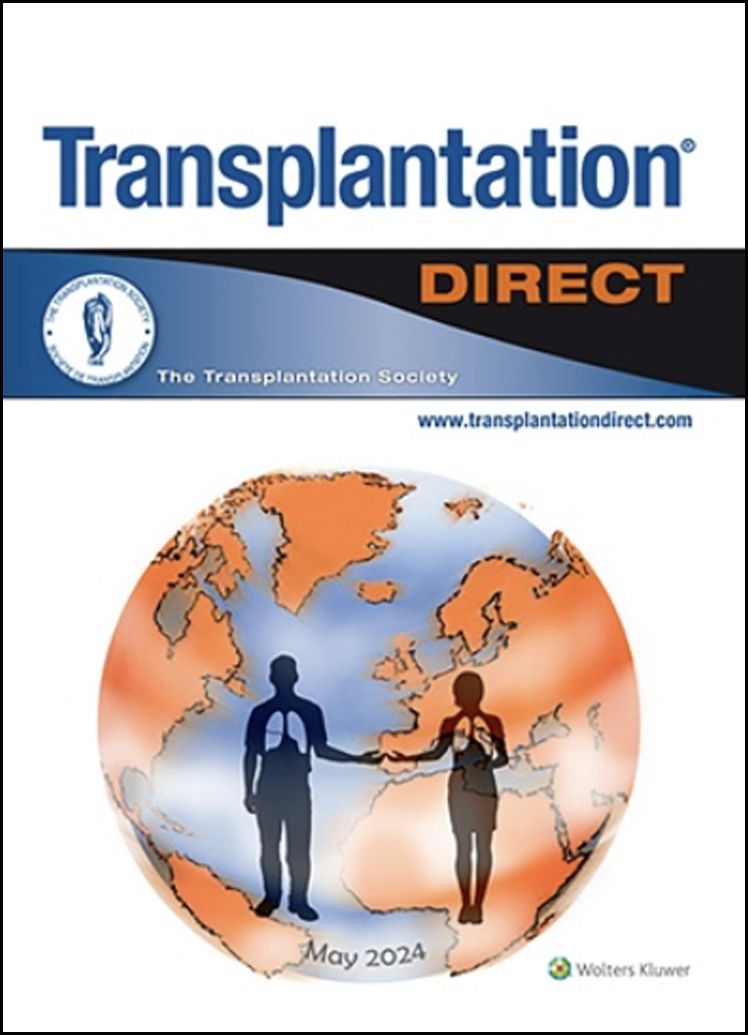TTS @ ATC 2024
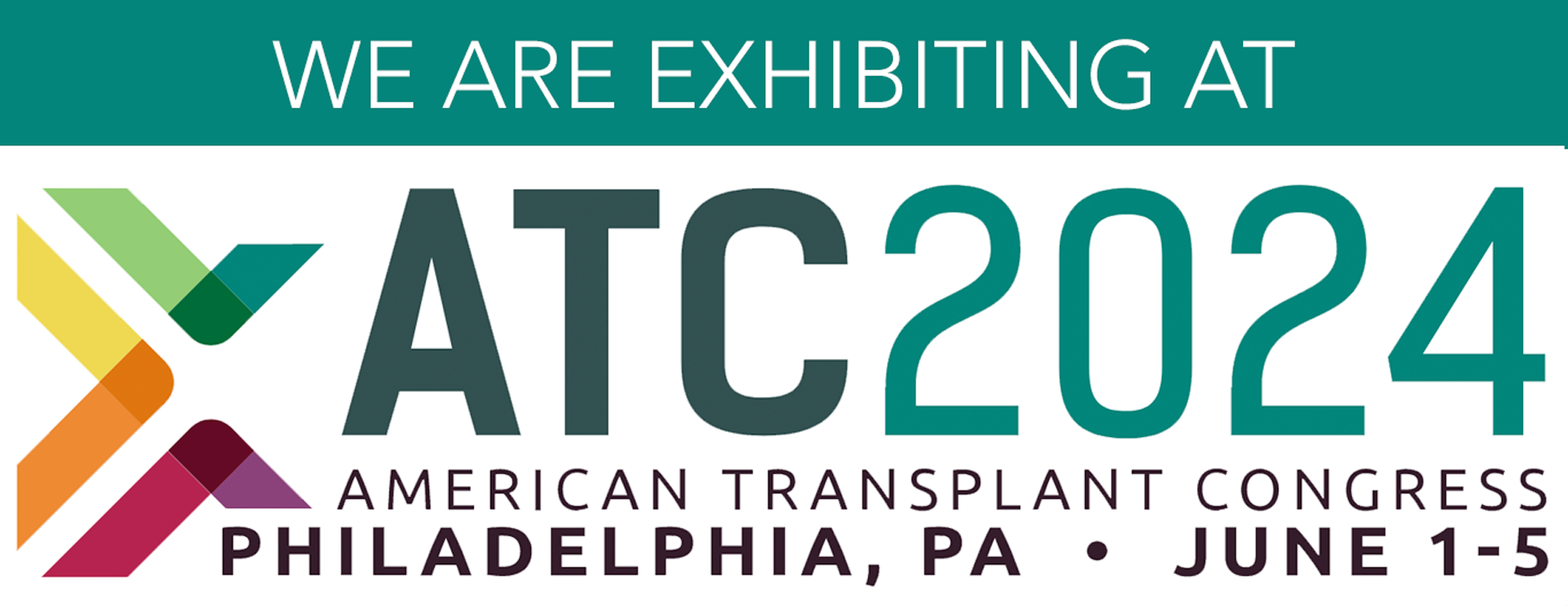
ATC participants who apply for TTS membership (new applicants only) prior to June 23 will qualify for a 50% disount on their 2024 dues!
THE TRANSPLANTATION SOCIETY
The principal requirement for membership is an active interest in basic science, clinical research and/or improving clinical practice in the field of transplantation. All members must display prior and sustained interest in the field.
All applicants must:
- Accept the policies of the Ethics Committee by signing the Society Ethics Statement.
- Provide a current CV with schooling, work experience and publications (if applicable).
- Provide two TTS Full Members to sponsor your application (list available when doing the online application).
Benefits:
List of Emerging Economy Nations
Full members shall be physicians, surgeons, scientists or other specialists, who are actively engaged in the science or clinical practice of organ, cell and tissue transplantation. Physicians and surgeons shall have advanced training or equivalent experience in the science and practice of organ and tissue transplantation. Non-physicians, including coordinators, statisticians, and policy makers who hold a doctoral degree, a Bachelor’s degree, or equivalent relevant certification must have professional experience in the field of transplantation with continuing and active involvement in clinical medicine or research, or transplantation public policy as determined by the Membership Committee.
Trainee members shall include individuals enrolled in pre- or postdoctoral training programs relevant to the science and clinical practice of organ, cell and tissue transplantation, and individuals who have completed their training but have not yet qualified for full membership. No individual may remain in this category more than eight years. Trainee members may not vote or hold office on the Council but may serve on committees.
Associate members shall include individuals who have demonstrated a sustained and continued interest in the field of transplantation but who do not qualify for full or trainee membership. These individuals may not vote, hold office, or serve on committees but will have all other societal privileges. Associate members would include, for example, representatives from the pharmaceutical industry.
The Transplantation Societyis the leading international society of physicians, surgeons and scientists involved in the transplanta¬tion of organs and tissues. The membership should be active in promoting organ donation from deceased as well as from live donors. The Society is proactive in the development of interna¬tional transplant policy, the monitoring of transplantation activities and in supervision of the adherence to proper principles of practice.
It is a fundamental principle for The Transplantation Society that donors of organs and tissues are not exploited and that consent for donation must be obtained without coercion. The Transplantation Society opposes the buying and selling of organs.
Two models of authorization for organ donation from the deceased donor, explicit consent or registered objection, are practiced. In countries using the system of registered objection, extensive efforts should be taken in order to ascertain that the public knows its right to object. Members of The Transplantation Society must not be involved in obtaining or transplanting organs from executed prisoners or other donors where there is a risk that an autonomous consent for donation is lacking.
Applicants for membership in The Transplantation Society should also be aware of the following positions of the Society:
- All countries with donation and organ and tissue transplantation activities should have relevant legislation ensuring transparency, safety and effective monitoring of the procedures.
- All countries should enact legislation prohibiting exploitation of donors by commercial trafficking in organs and tissues.
- All countries should have a system for approval and certification of transplant centres and physicians by relevant government and/or medical professional authorities.
- All countries should have methods for registration and tracking of all organ and tissue donors.
- All countries should have systems to ensure that the allocation of organs is transparent and governed by medical criteria.
- All countries obtaining organs from deceased individuals should legally define death and the criteria to diagnose death. The determination of death should be independent of a direct interest in a subsequent organ transplant procedure. No organs or tissues should be removed unless the individual is declared dead.
- In the case of live donation, all countries should be guided by relevant legislation and monitoring to ensure that:
a) only individuals with the cognitive capacity to understand the risks and benefits of being a live donor are accepted as donors;
b) potential donors receive the relevant and sufficient information about the procedure to make an autonomous decision;
c) the decision to donate is voluntary, free of exploitation and coercion;
d) all donors receive a complete medical and psychosocial evaluation and are cared for throughout the postoperative recovery period;
e) donor’s access to long-term follow-up is promoted.
Scientific studies and clinical activities should be performed in keeping with the ethical principles delineated in the following policy documents:
- The Declaration of Istanbul on Organ Trafficking and Transplant Tourism Lancet. 2008 Jul 5;372 (9632):5-6.
- For Live Kidney Donation - The Consensus Statement of the Amsterdam Forum (Transplantation 79(6): S53-S66, 2005)
- For Live Donation of Extrarenal Organs -The consensus Statement of the Vancouver Forum (Transplantation 81(4): 1373-1385, 2006)
- For Studies of Xenotransplantation -The International Xenotransplantation Association Ethics Committee Position Paper on “The Ethics of Xenotransplantation” (Xenotransplantation 10:194-203, 2003)
- For research involving human subjects -The Helsinki Declaration of The World Medical Association.
CELL TRANSPLANT AND REGENERATIVE MEDICINE SOCIETY (CTRMS)
The Cell Transplant and Regenerative Medicine Society exists to be the leader in developing and translating, safe cellular and regenerative therapies to patients. The Society will promote research, collaboration and focus on regulatory matters, as they relate to clinical translation.
INTERNATIONAL INTESTINAL REHABILITATION AND TRANSPLANT ASSOCIATION (IIRTA)
The mission of the Intestinal Rehabilitation and Transplant Association is to save and enhance the lives of patients with intestinal failure using innovative nutritional, medical, surgical and transplant therapies through education, policy development and research.
INTERNATIONAL SOCIETY OF VASCULARIZED COMPOSITE ALLOTRANSPLANTATION (ISVCA)
The objectives of the Society are:
- To promote and encourage research and training relevant to the transplantation of vascularized peripheral tissues as a functional unit (a.k.a. composite tissue allotransplantation (CTA) or vascularized composite allografts (VCA)).
- To provide a scientific forum for the exchange and discussion of clinical and experimental results and experiences relevant to transplantation of composite tissue allotransplantation or vascularized composite allotransplantation.
- To promote and encourage contacts between clinical and experimental researchers from different institutions all pertinent disciplines irrespective of their country of origin.
- To promote and facilitate support in the planning and execution of collaborative studies, and pursue collaboration with other associations, societies, and/or organizations serving similar purposes.
INTERNATIONAL PANCREAS AND ISLET TRANSPLANT ASSOCIATION (IPITA)
The International Pancreas and Islet Transplant Association is a scientific forum for the exchange and discussion of clinical and experimental results and experiences relevant to the transplantation of insulin producing tissue in the treatment and cure of diabetes mellitus.
THE INTERNATIONAL PEDIATRIC TRANSPLANT ASSOCIATION (IPTA)
The International Pediatric Transplant Association (IPTA) is a professional organization of individuals in the field of pediatric transplantation. The purpose of the Association is to advance the science and practice of pediatric transplantation worldwide in order to improve the health of all children who require such treatment. The Association is dedicated to promoting technical and scientific advances in pediatric transplantation and to advocating for the rights of all children who need transplantation.
INTERNATIONAL SOCIETY FOR ORGAN DONATION AND PROCUREMENT (ISODP)
The mission of the ISODP can be accomplished by focusing on:
- Societal attitudes and legislative requirements
- Perfecting the process of donation and procurement
- Ways of expanding the donor pool
- measures to minimize donor organ injury
- The development and facilitation of educational programs
- Ethical matters related to organ and tissue donation and procurement.
INTERNATIONAL XENOTRANSPLANTATION ASSOCIATION (IXA)
The principal aim of this section is to provide a forum for those with a special interest in xenotransplantation. All membership categories require sponsorship by a full member of the IXA in good standing.
Membership includes reduced registration fee at international congresses, online subscription to Xenotransplantation Journal, and a subscription to the print edition for an additional minimal charge.
SOCIETY OF PEDIATRIC LIVER TRANSPLANTATION (SPLIT)
SPLIT is a community of physicians, surgeons, nurses and other allied health professionals whose mission is to improve the outcomes in children receiving liver transplantation through research, improving care, training and mentoring, and supporting children and families.
TRANSPLANT INFECTIOUS DISEASE SOCIETY (TID)
The mission of this section is to promote research and education in the prevention, diagnosis, clinical consequences, and management of infectious disease problems of the transplant recipient.
| Yearly Membership Fee (in USD) | ||||
| Category | Members | Members of a TTS Section or a TTS Affiliated Society | Members residing in an Emerging Economy Nation | Members of a TTS Section or a TTS Affiliated Society who reside in an Emerging Economy Nation |
| Full Member | 140.00 | 90.00 | 70.00 | 45.00 |
| Trainee Member | 70.00 | 45.00 | 35.00 | 22.50 |
| Associate Member | 70.00 | 45.00 | 35.00 | 22.50 |
Cell Transplant and Regenerative Medicine Society
- Emeritus Membership - Free
- Full Membership - 1 Year - $75.00 or 2 Years - $130.00
- Trainee Membership - 1 Year - $50.00 or 2 Years - $80.00
- Allied Health Professional Membership - 1 Year - $50.00 or 2 Years - $80.00
- Technical Membership - 1 Year - $50.00 or 2 Years - $80.00
International Pancreas & Islet Transplant Association
- Emeritus Membership - Free
- Full Membership - 1 Year - $100.00 or 2 Years - $150.00
- Trainee Membership - 1 Year - $35.00 or 2 Years - $55.00
- Allied Health Professional Membership - 1 Year - $35.00 or 2 Years - $55.00
International Pediatric Transplant Association
- Emeritus Membership - Free
- Regular Membership - 1 Year - $200.00 or 2 Years - $380.00 (Includes online journal access)
- Trainee Membership - 1 Year - $75.00 or 2 Years - $140.00
- Allied Health Membership - 1 Year - $100.00 or 2 Years - $190.00
- Emerging Economy Membership - 1 Year - $55.00 or 2 Years - $100.00
Intestinal Rehabilitation and Transplant Association
- Emeritus Membership - Free
- Full Membership - 1 Year - $75.00 or 2 Years - $150.00
- Trainee Membership - 1 Year - $50.00 or 2 Years - $100.00
- Allied Health Professional Membership - 1 Year - $50.00 or 2 Years - $90.00
International Society for Organ Donation and Procurement
- Emeritus Membership - Free
- Full Membership - 1 Year - $60.00 or 2 Years - $100.00
- Trainee Membership - 1 Year - $45.00 or 2 Years - $75.00
- Full Emerging Economy - 1 Year - $30.00 or 2 Years - $50.00
- Trainee Emerging Economy - 1 Year - $22.50 or 2 Years - $40.00
International Society of Vascularized Composite Allotransplantation
- Full Membership - 1 Year - $50.00 or 2 Years - $95.00
- Trainee Membership - 1 Year - $25.00 or 2 Years - $45.00
International Xenotransplantation Association
- Emeritus Membership - Free
- Full Membership (must also be a TTS member) - 1 Year - $85.00 or 2 Years - $150.00 (Includes online journal access)
- Associate Membership - 1 Year - $50.00 or 2 Years - $80.00
- Trainee Membership - 1 Year - $35.00 or 2 Years - $60.00
Transplant Infectious Disease
- Emeritus Membership - Free
- Full Membership - 1 Year - $85.00 or 2 Years - $150.00 Year (Includes online journal access)
- Associate Membership - 1 Year - $75.00 or 2 Years - $130.00
- Trainee Membership - 1 Year - $75.00 or 2 Years - $130.00
Society of Pediatric Liver Transplantation
- Full Membership - 1 Year - $75.00
- Associate Membership - 1 Year - $30.00
- Trainee Membership - 1 Year - $30.00
TTS Congresses
Transplantation
Transplantation Direct
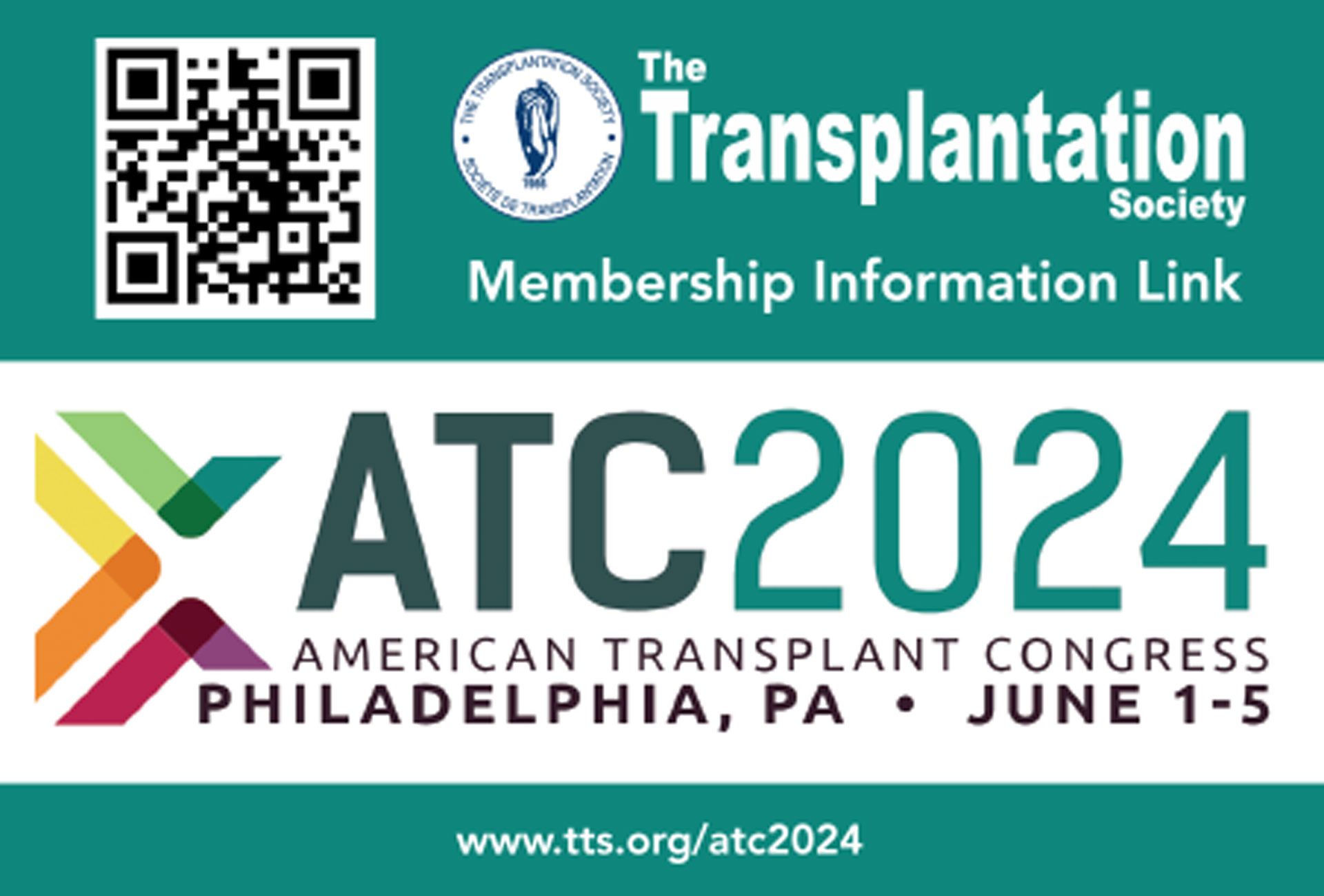
Contact
Address
The Transplantation Society
International Headquarters
740 Notre-Dame Ouest
Suite 1245
Montréal, QC, H3C 3X6
Canada
Используйте Вавада казино для игры с бонусом — активируйте промокод и начните выигрывать уже сегодня!


